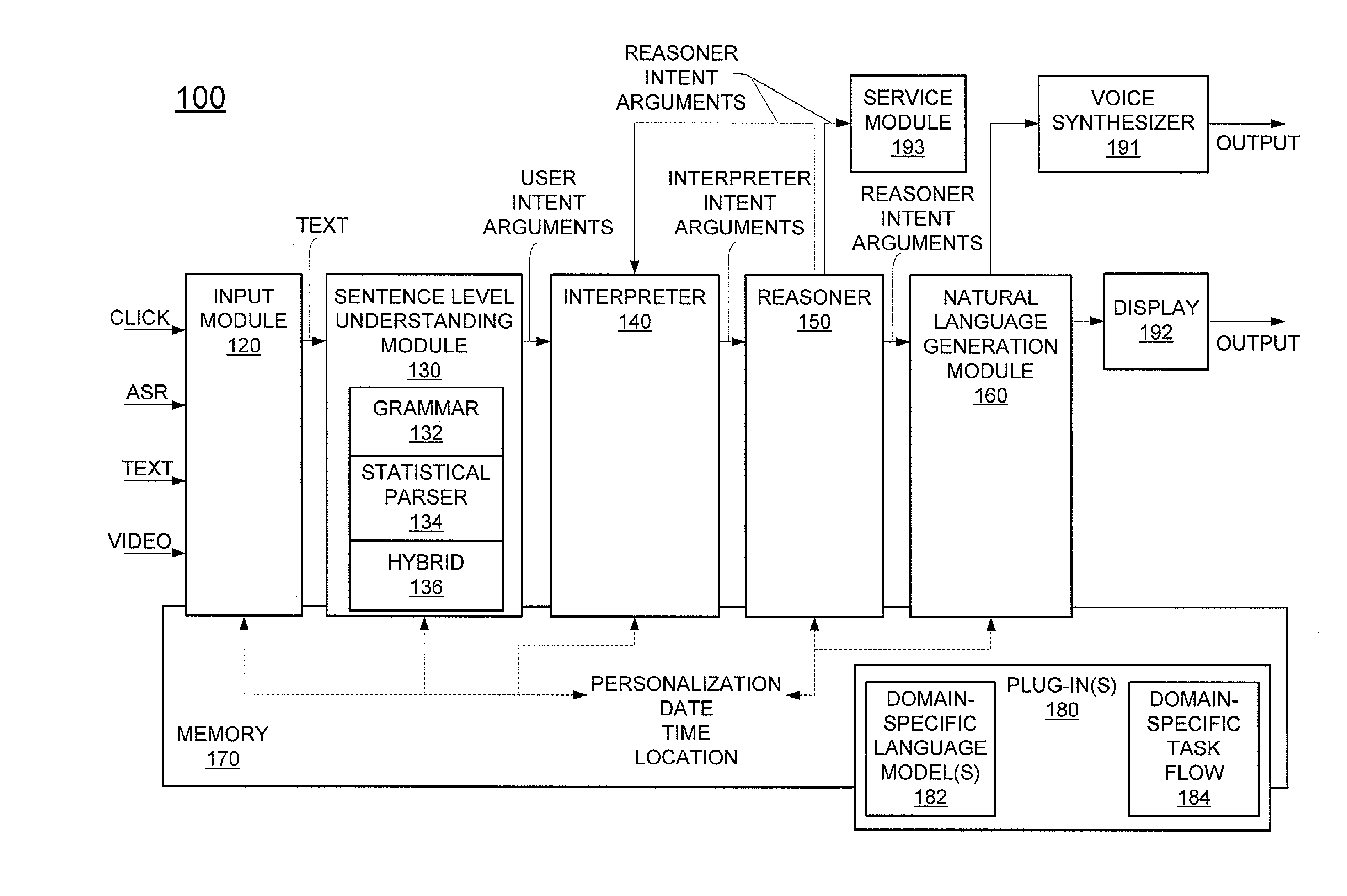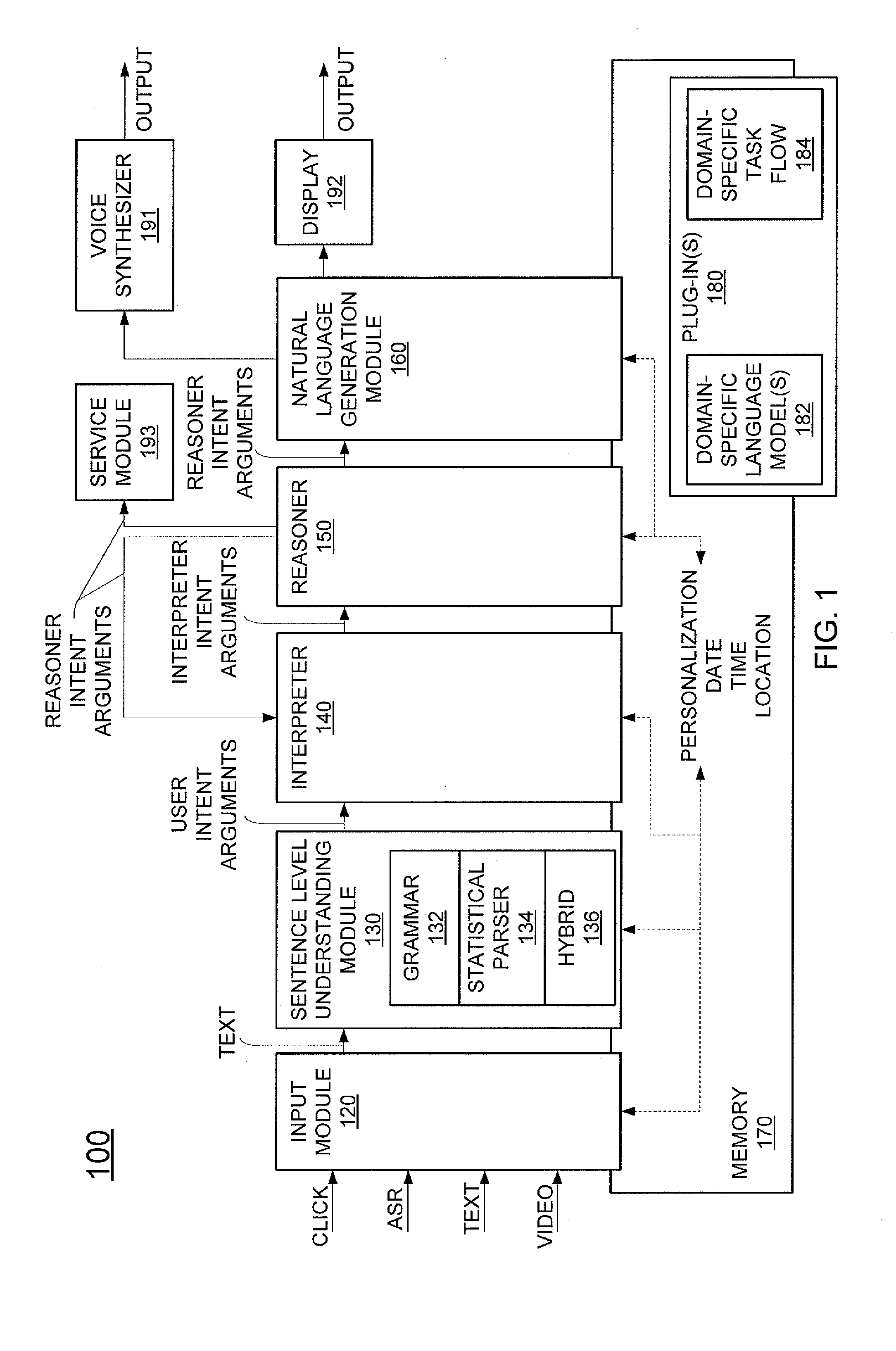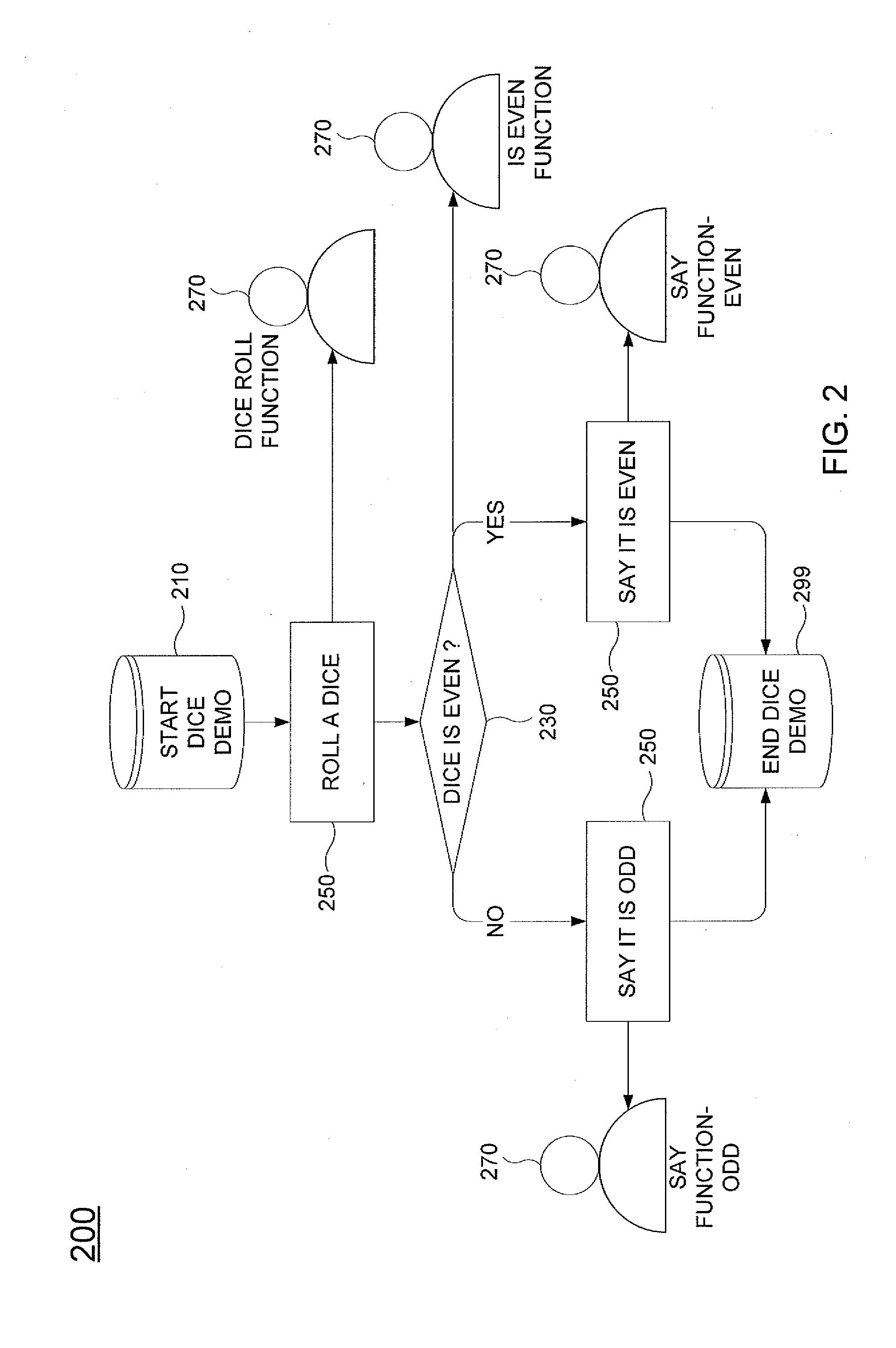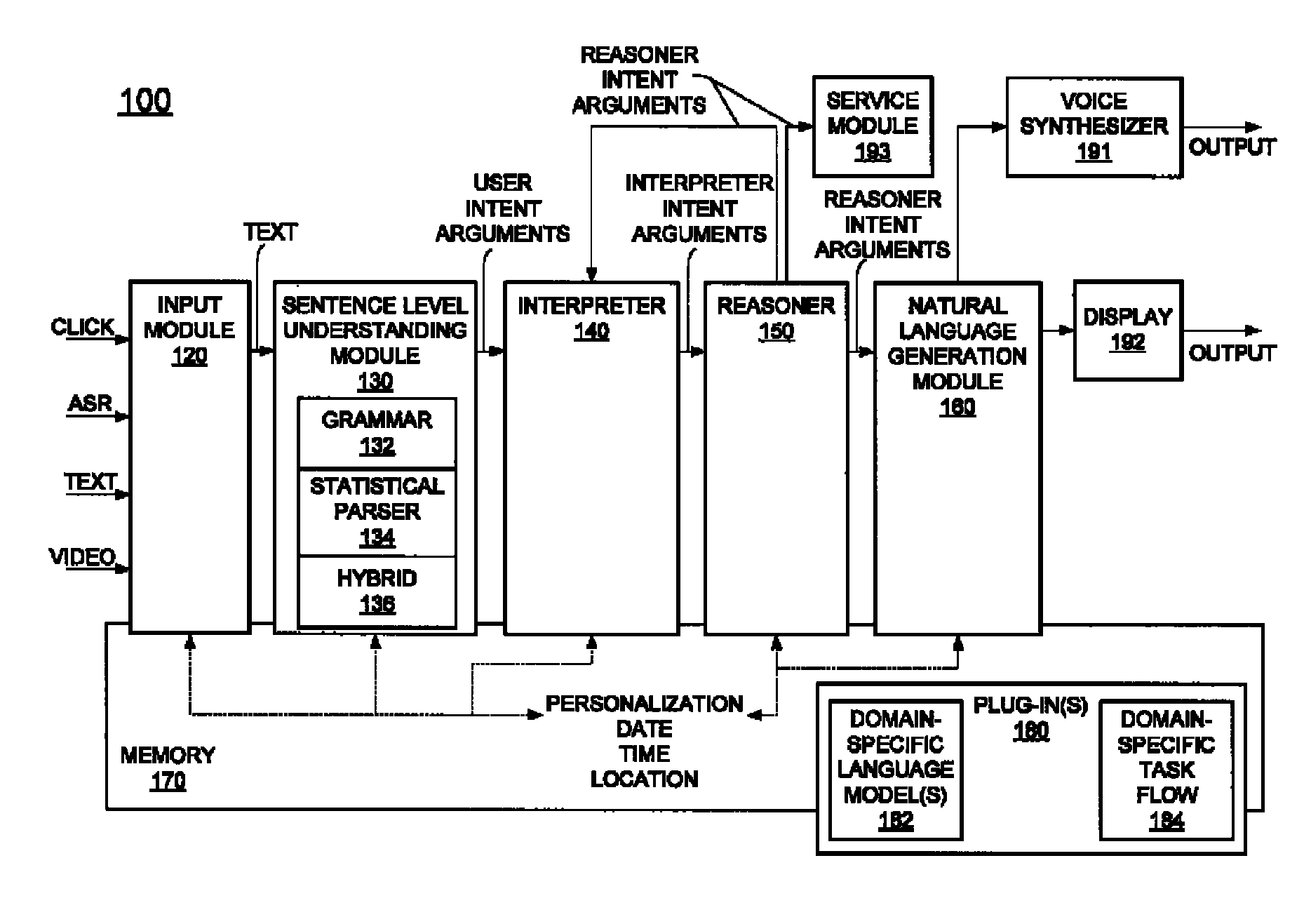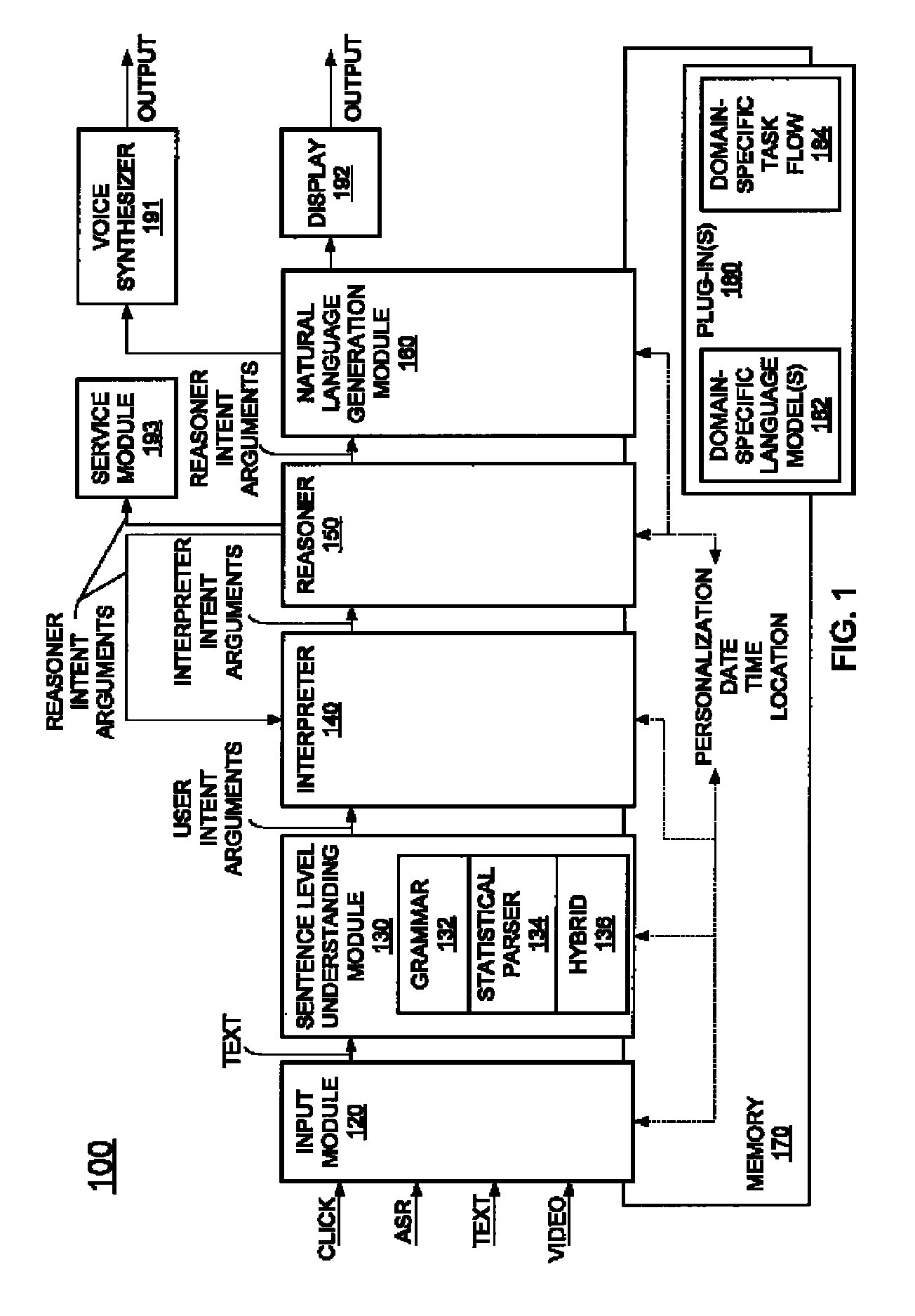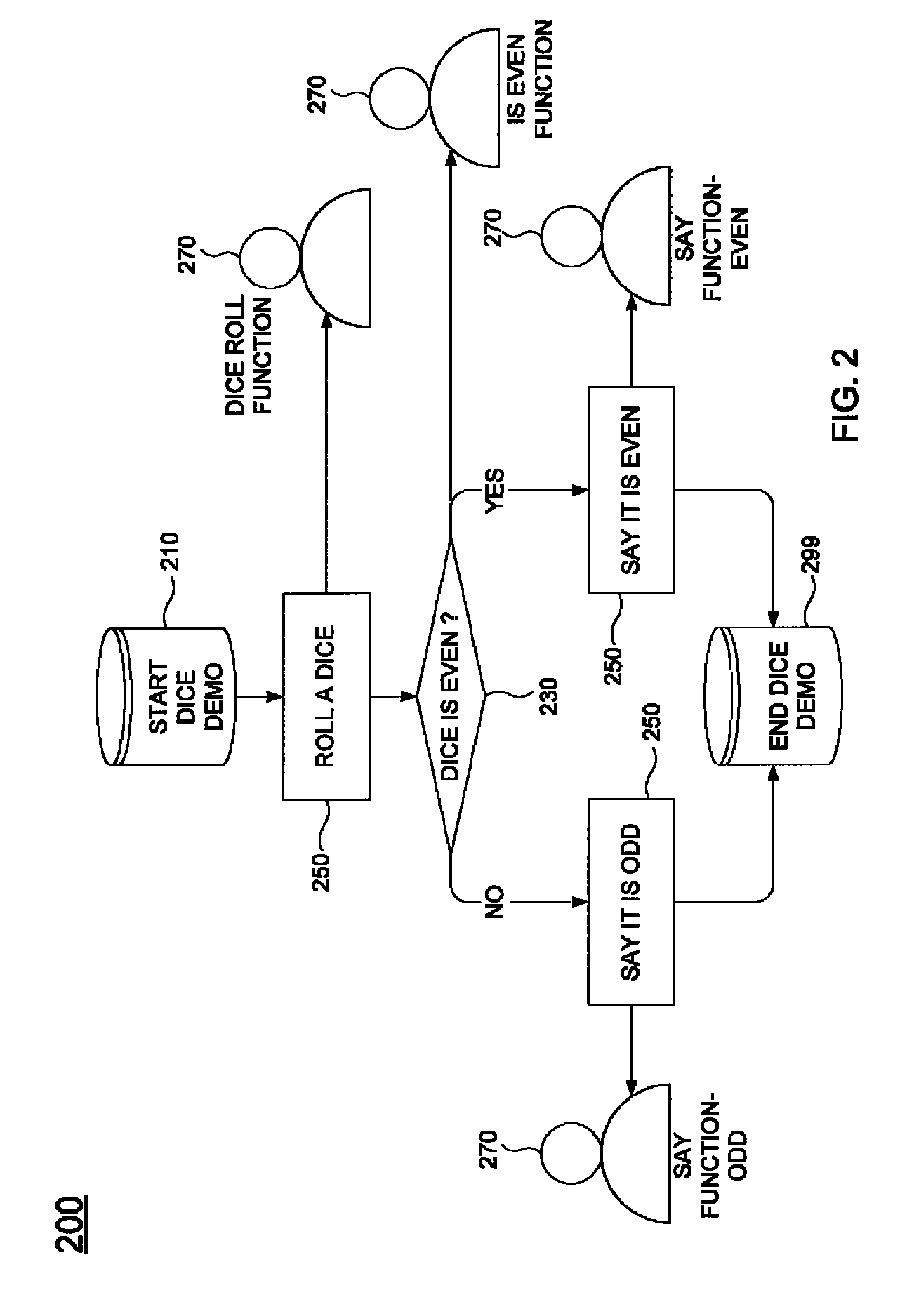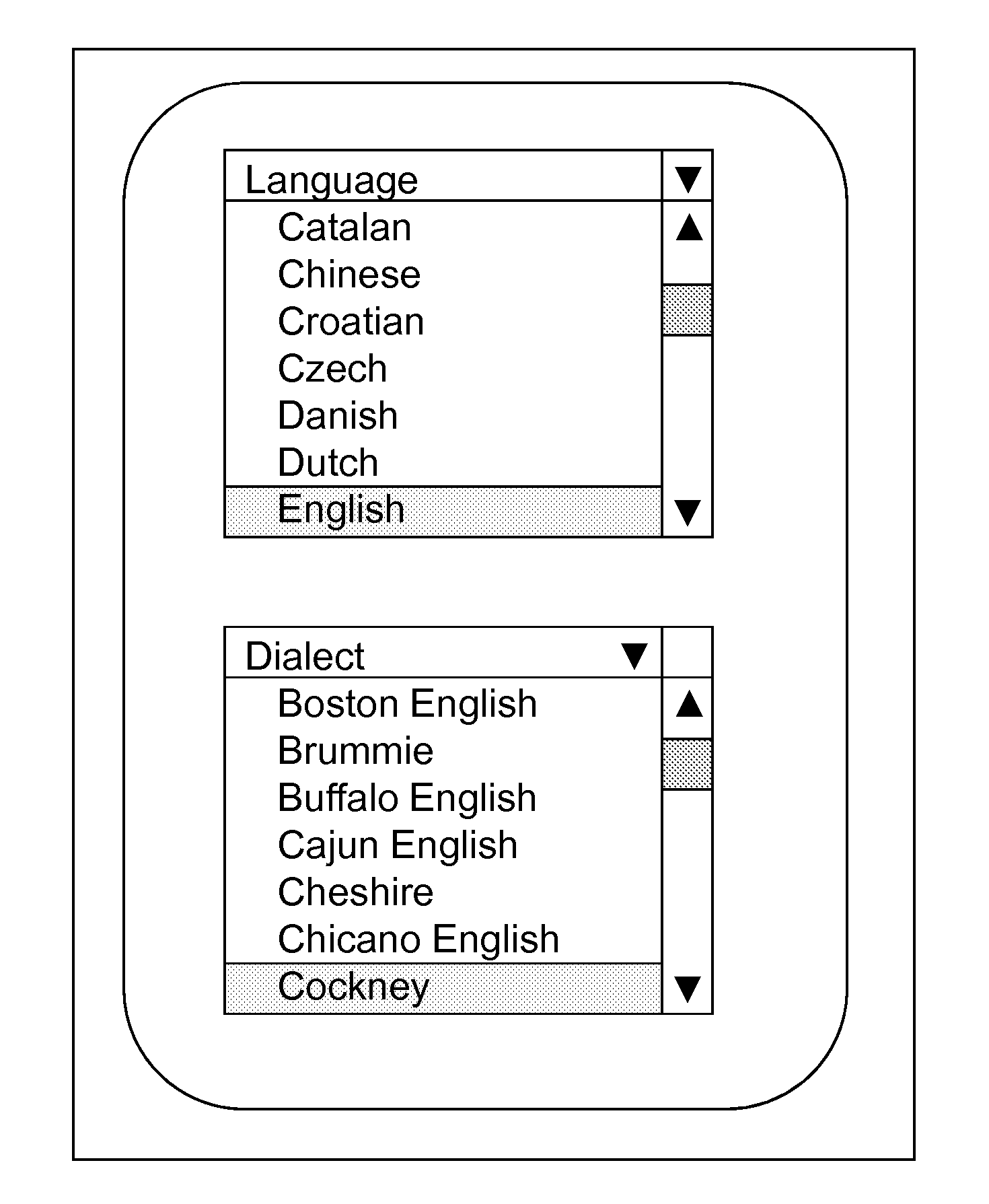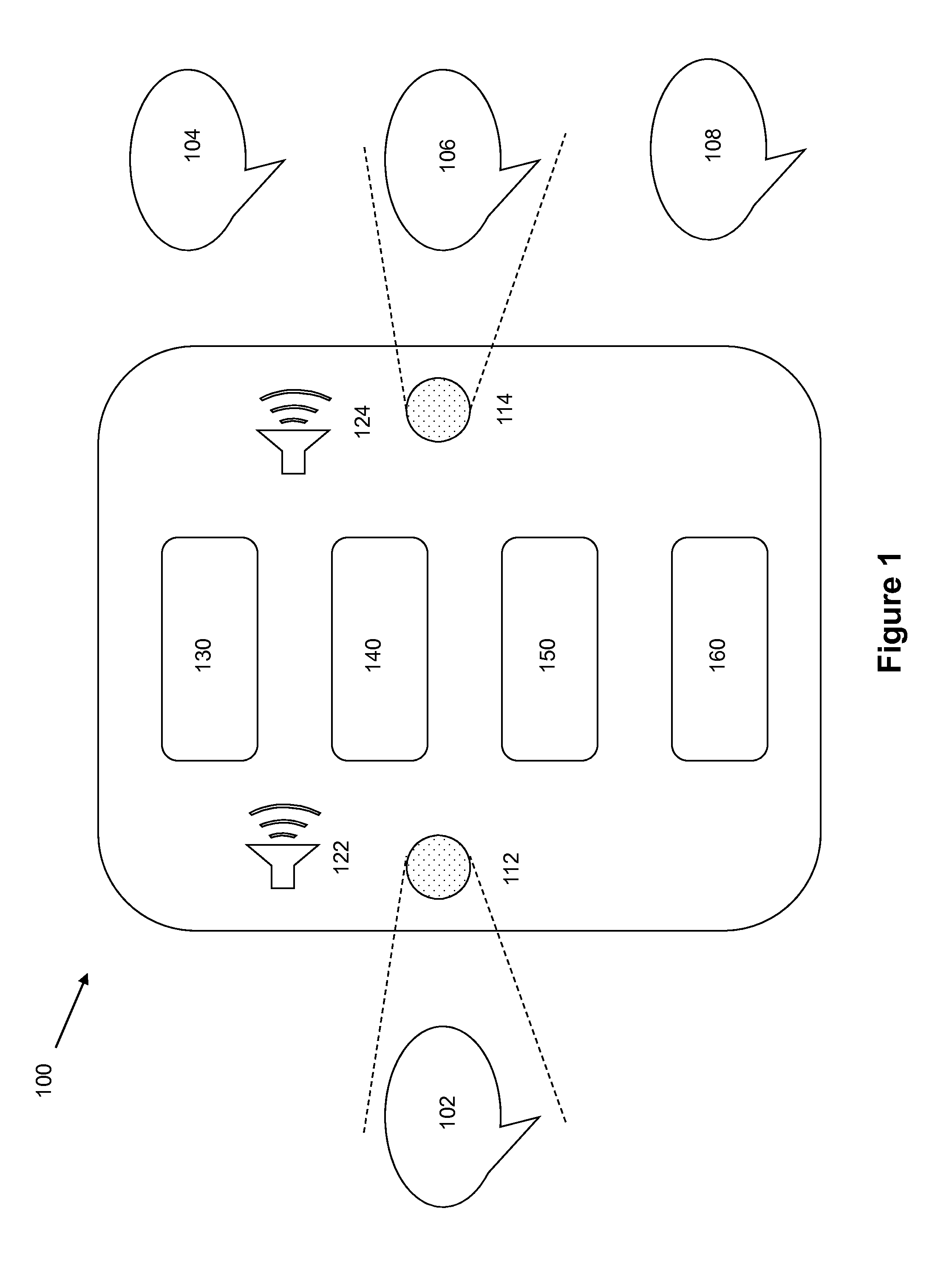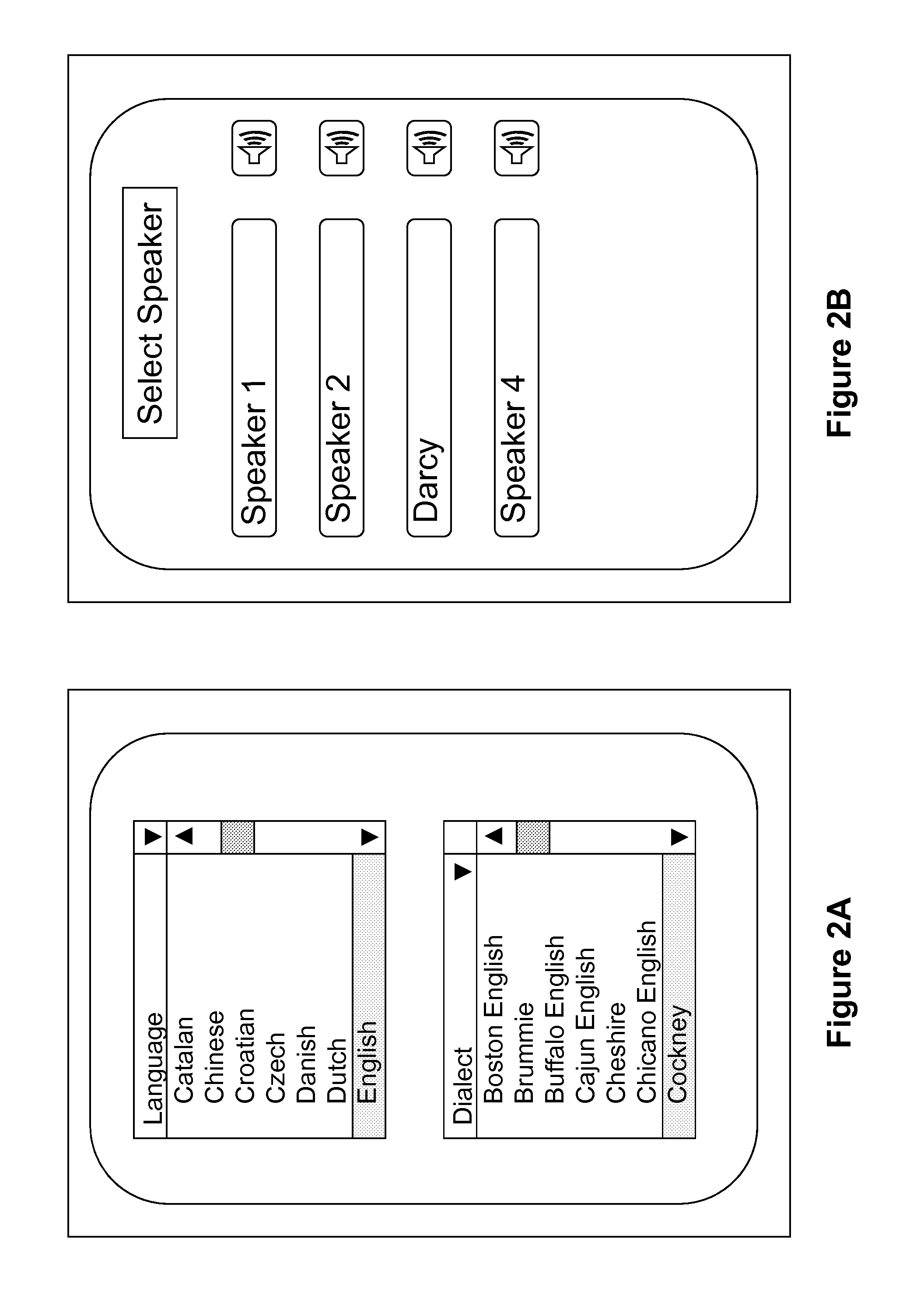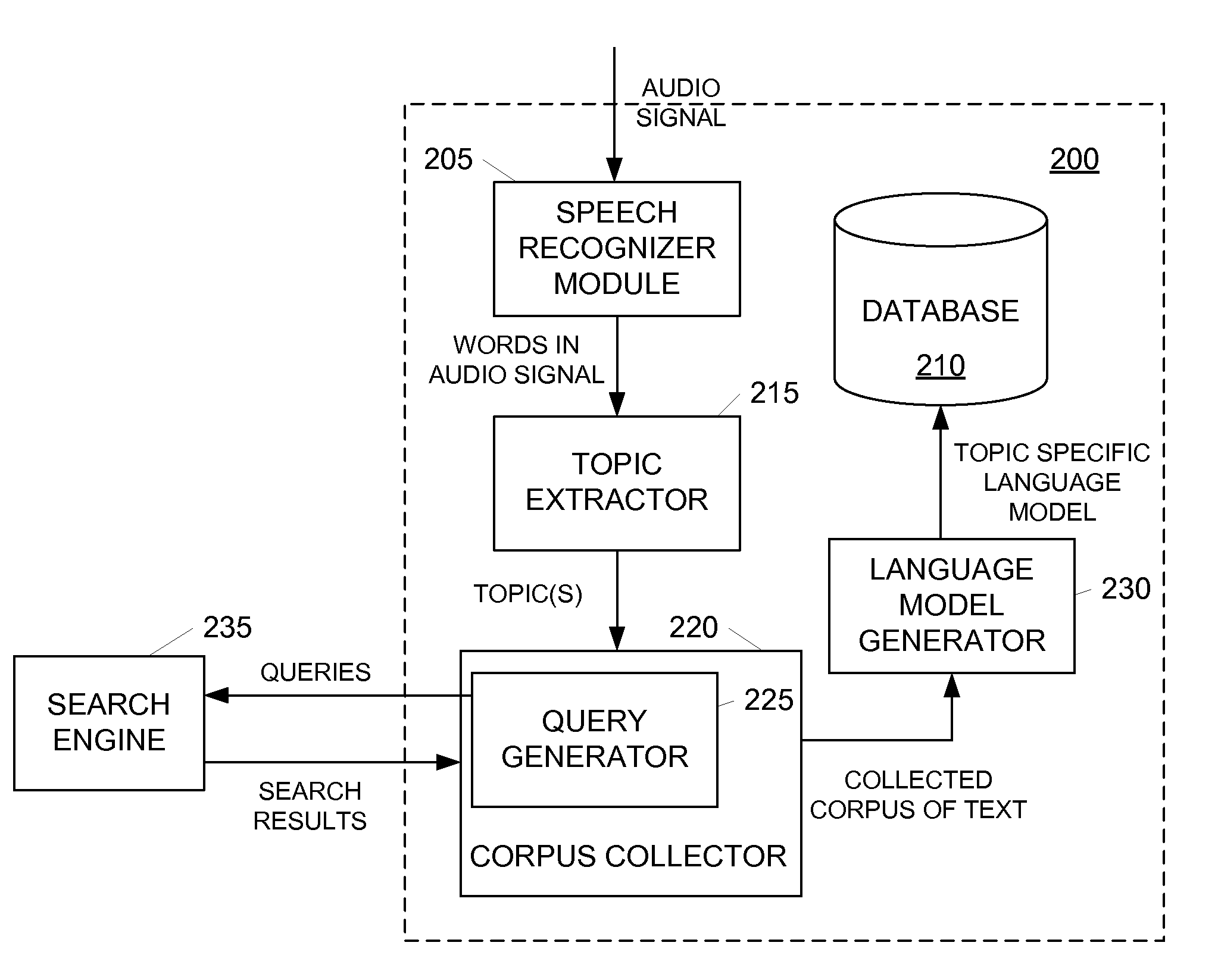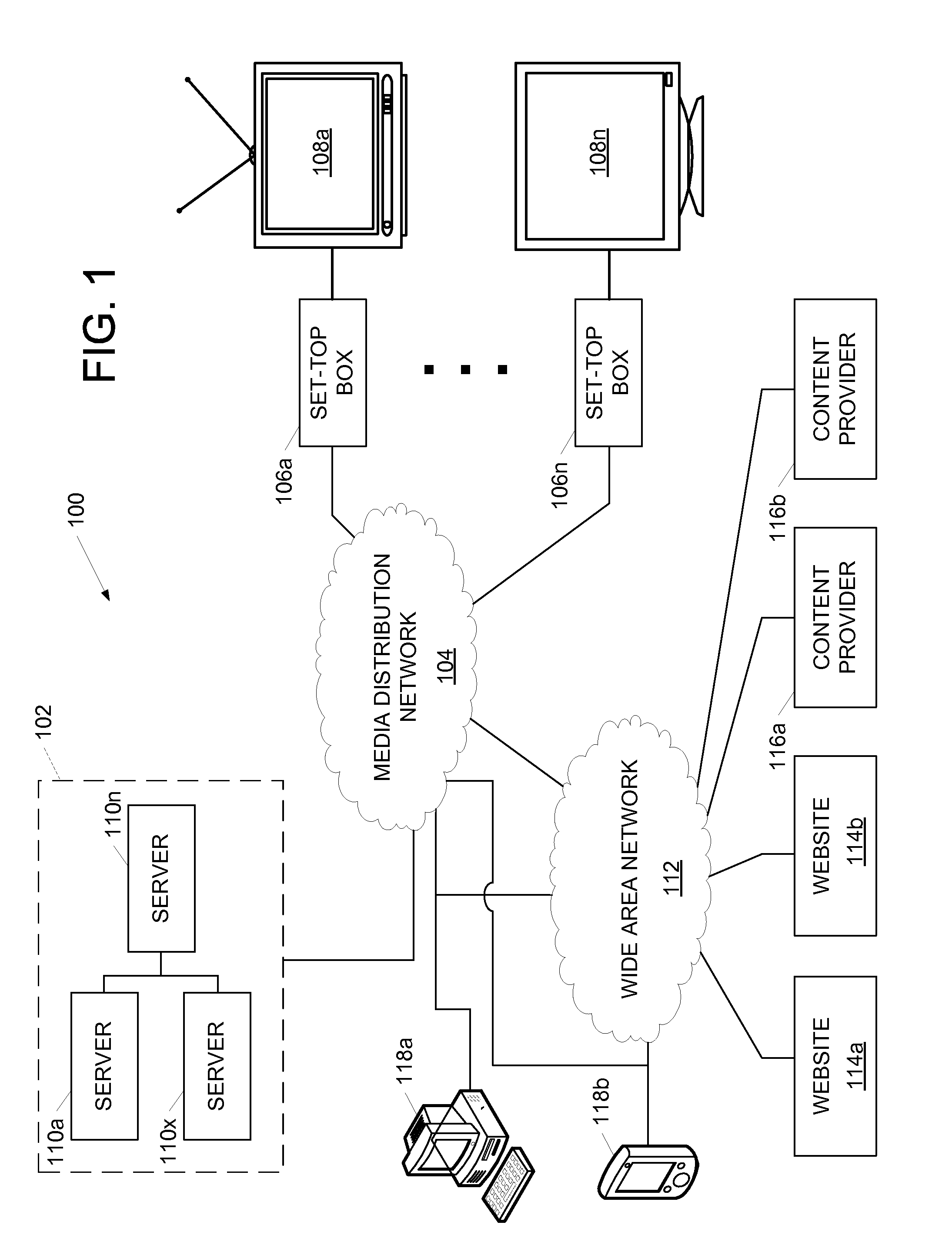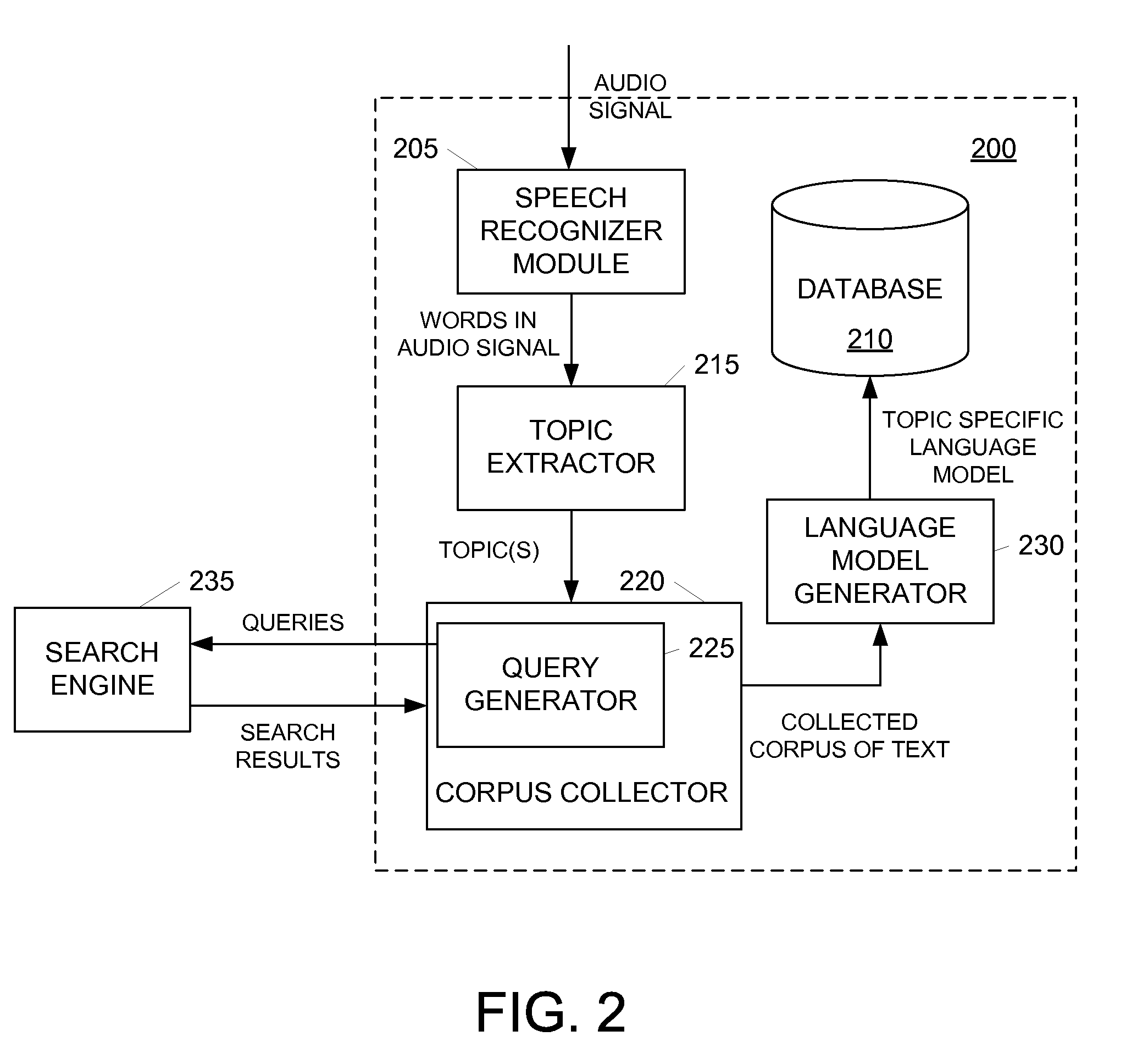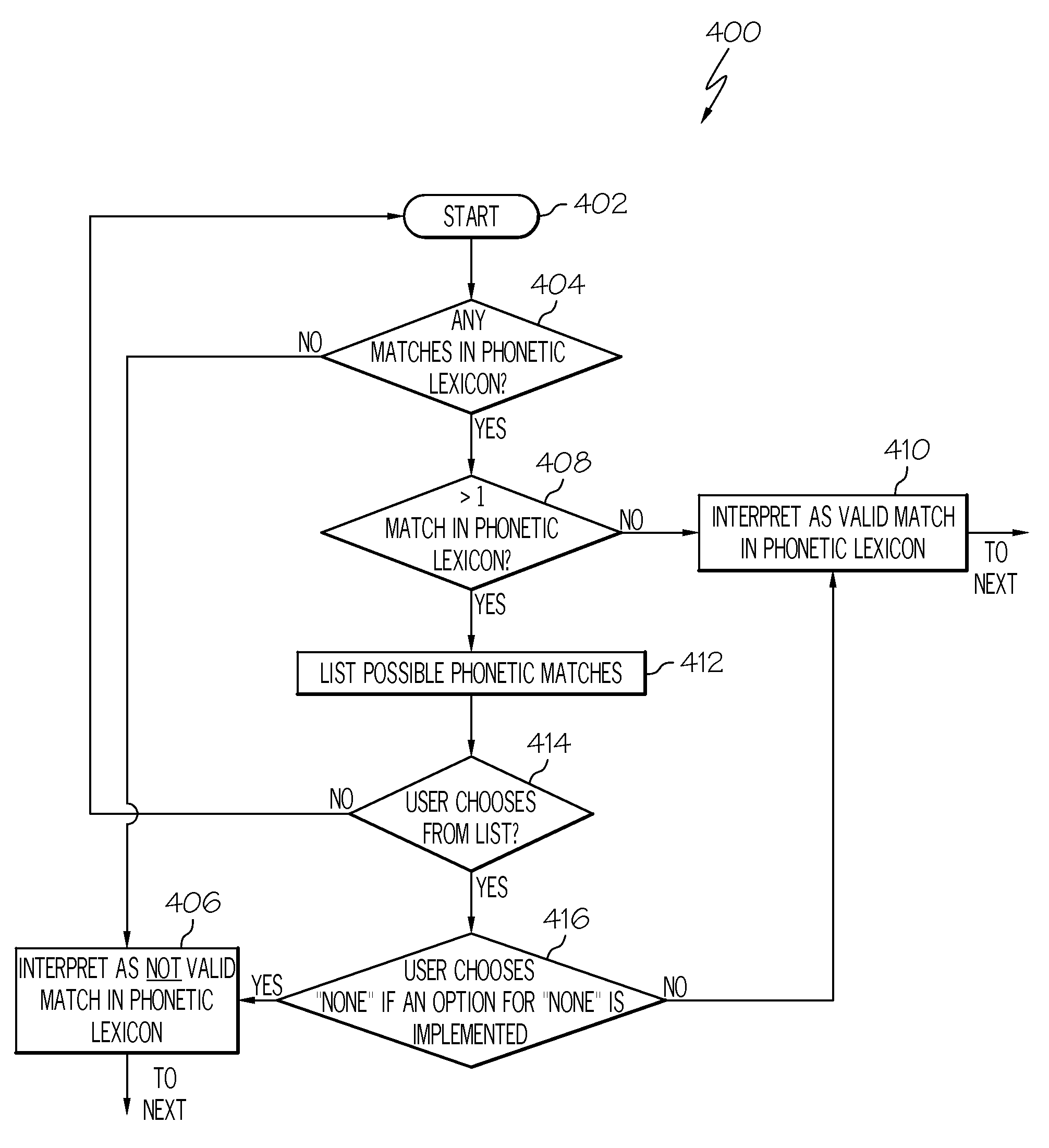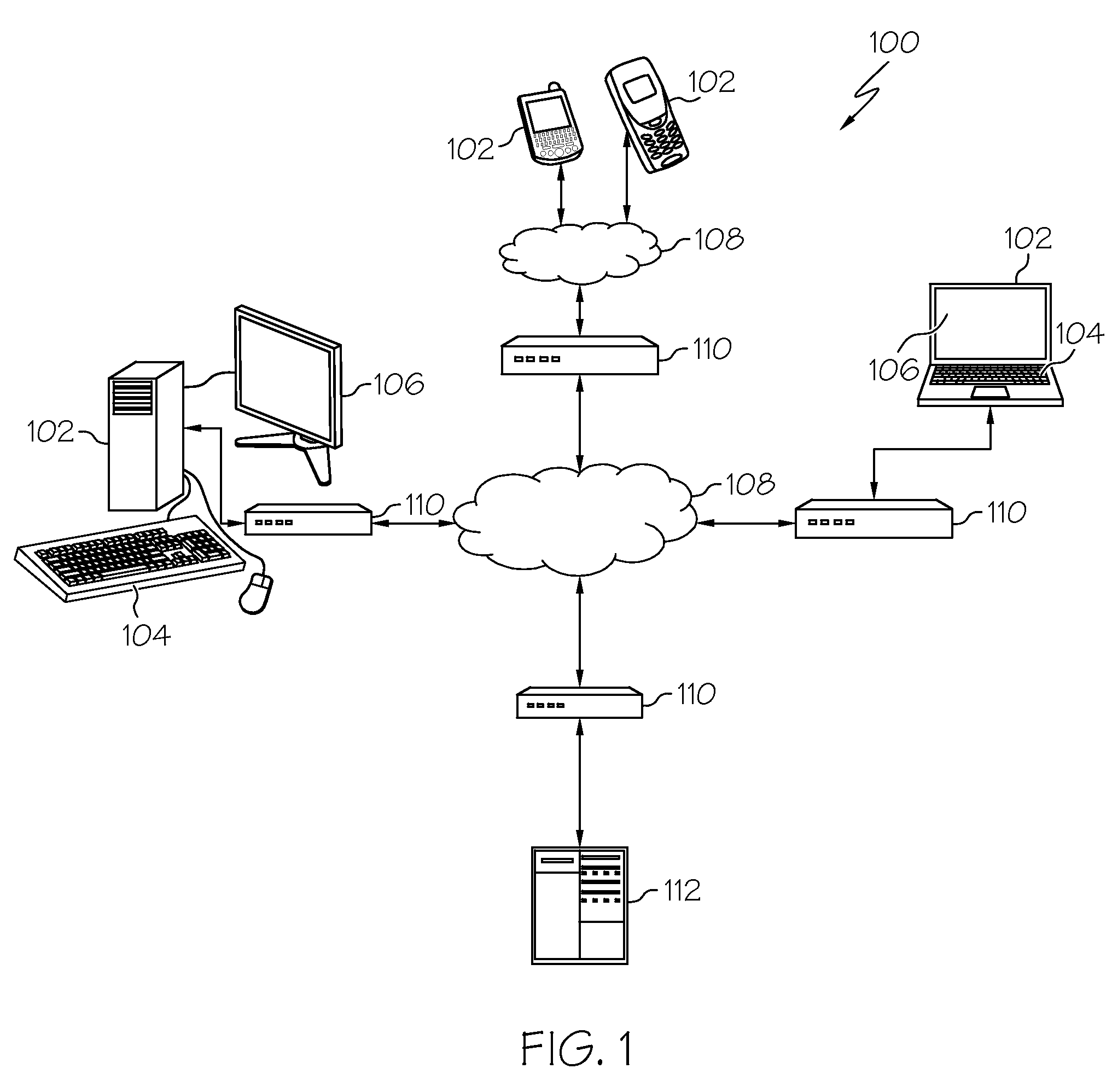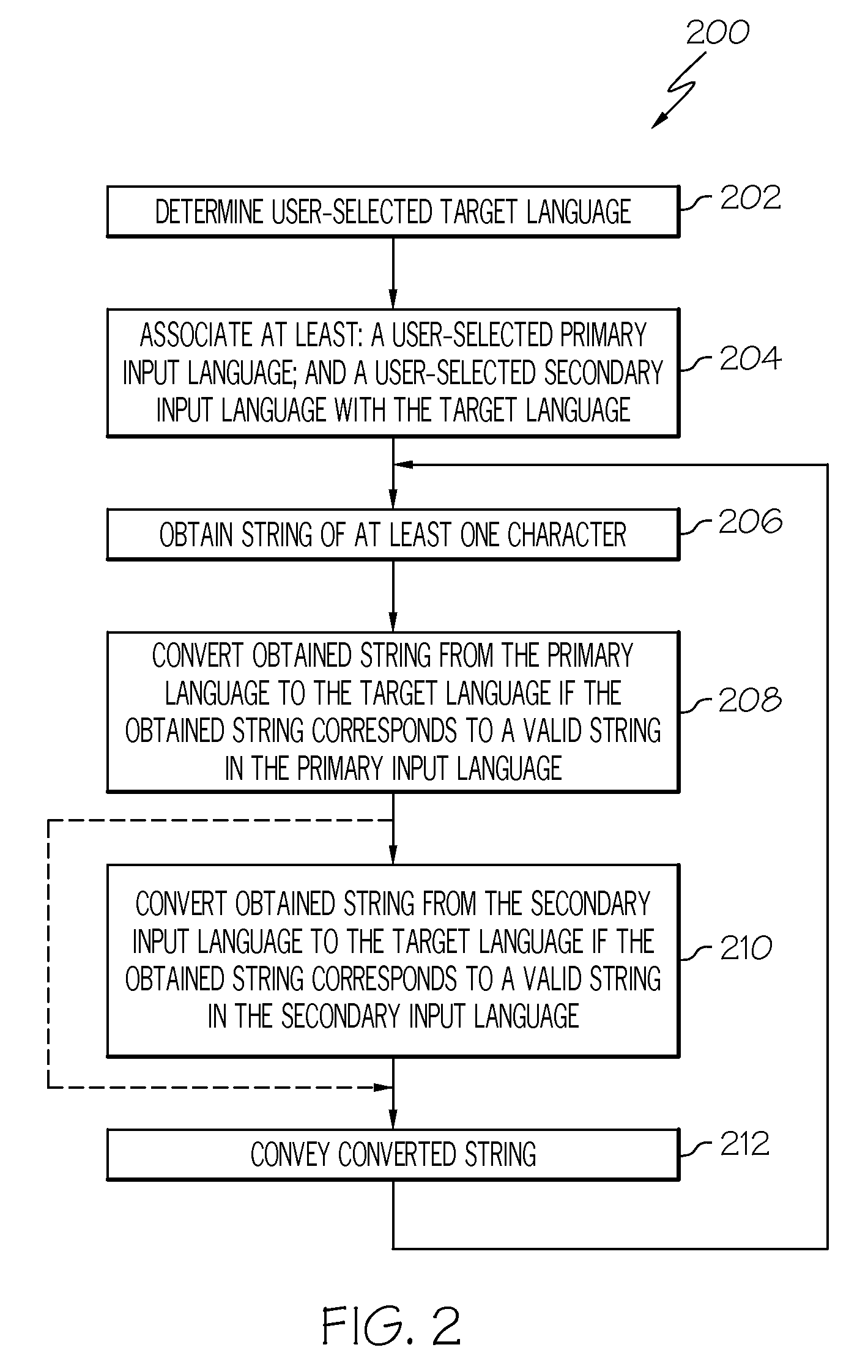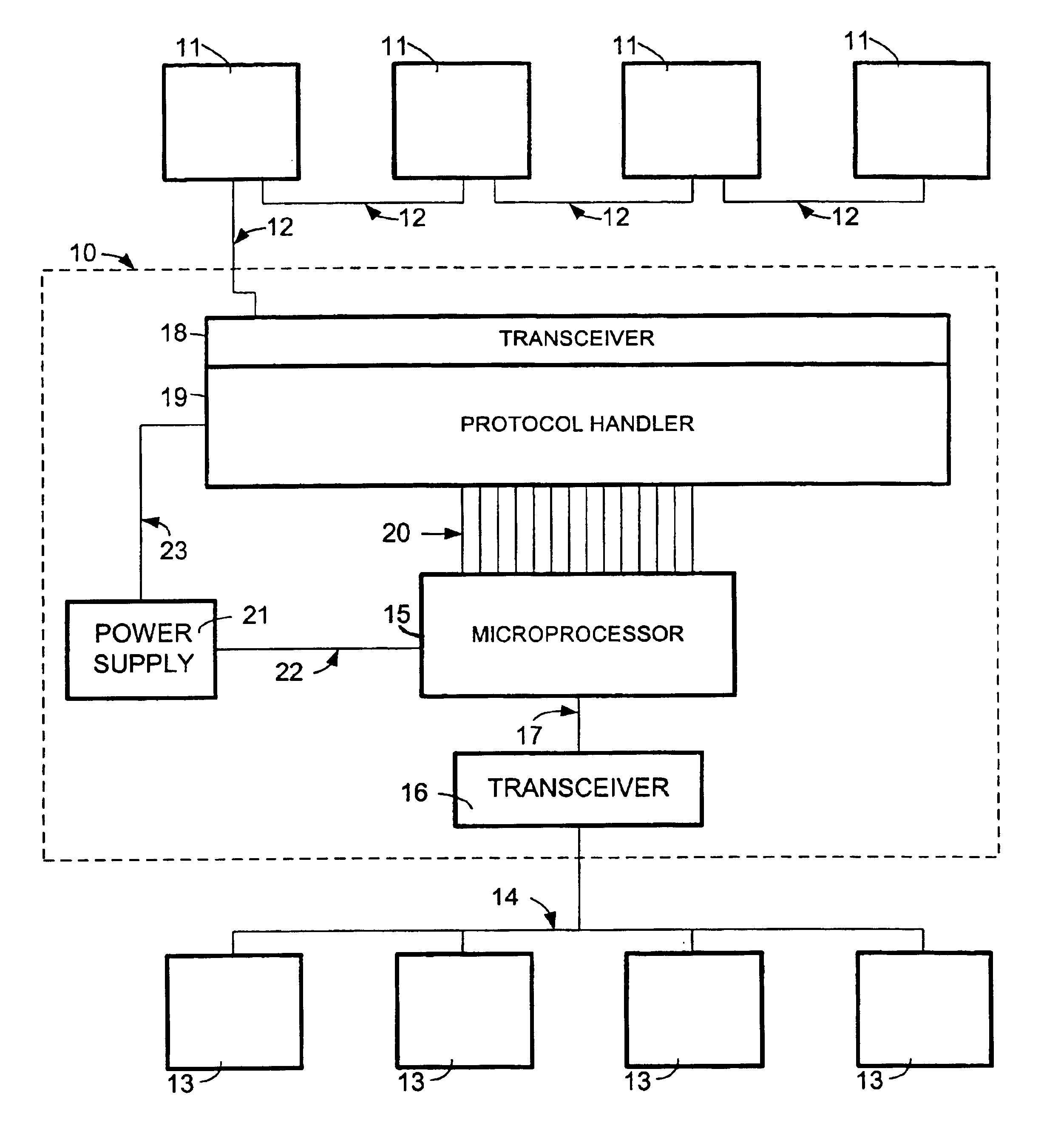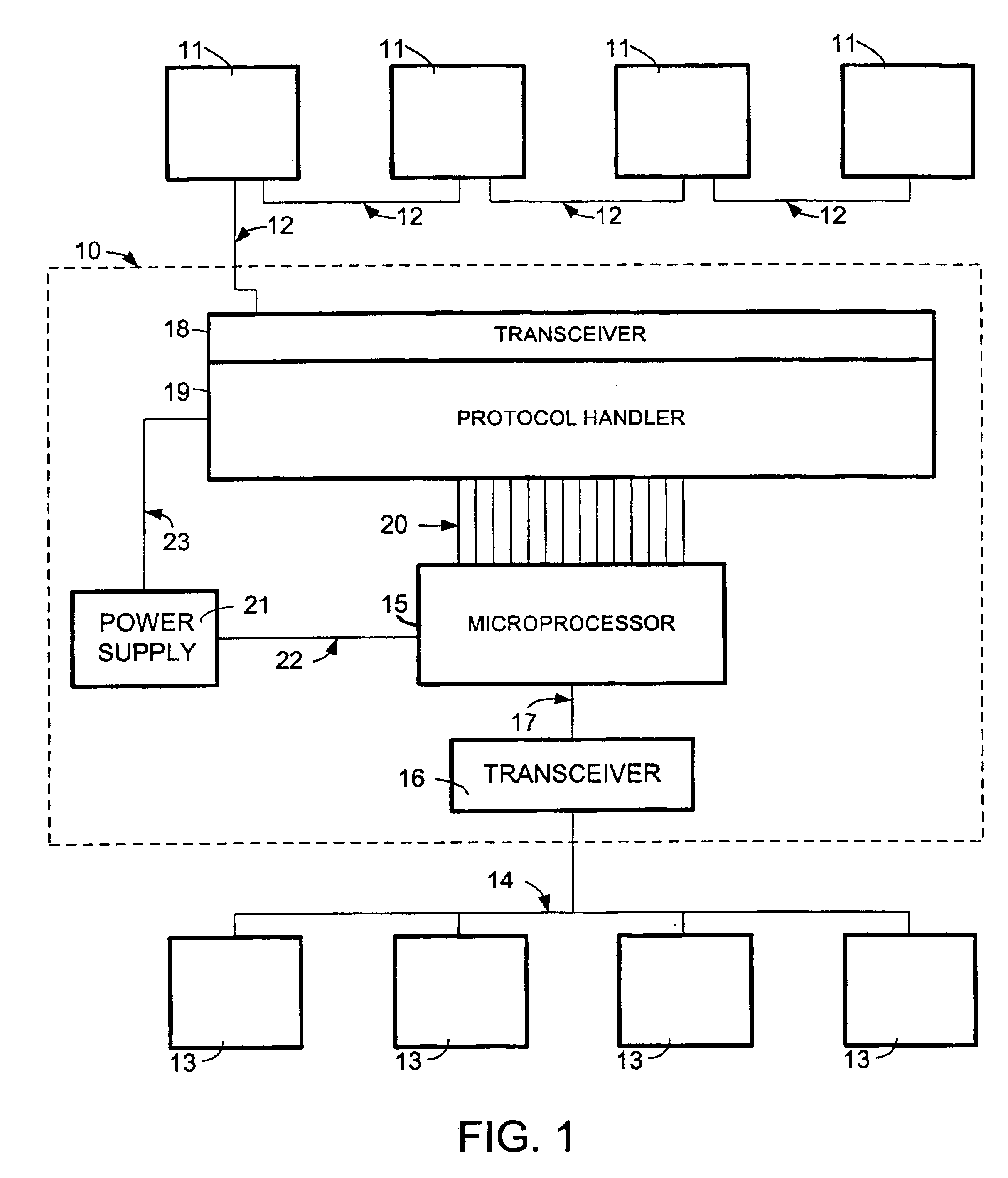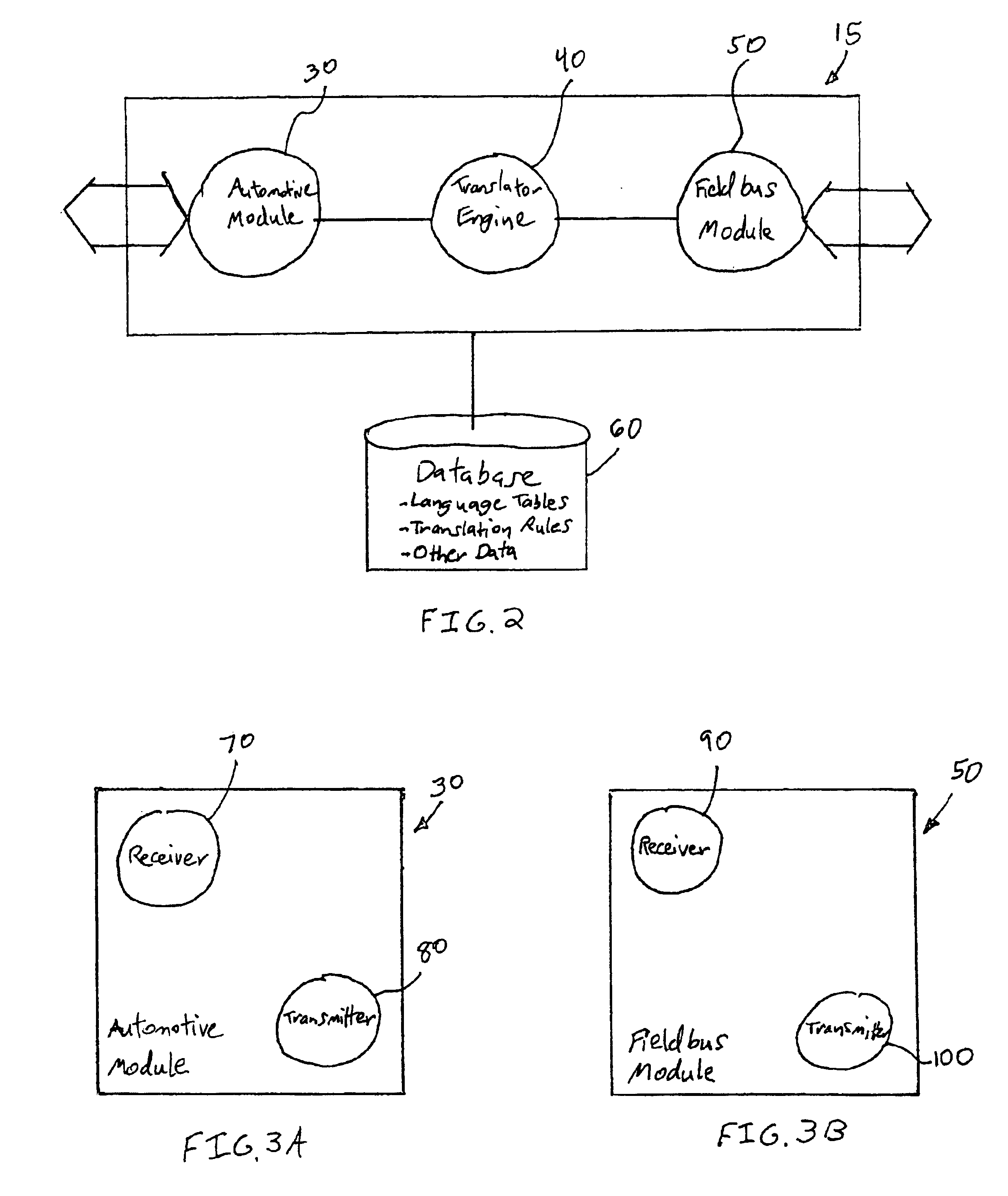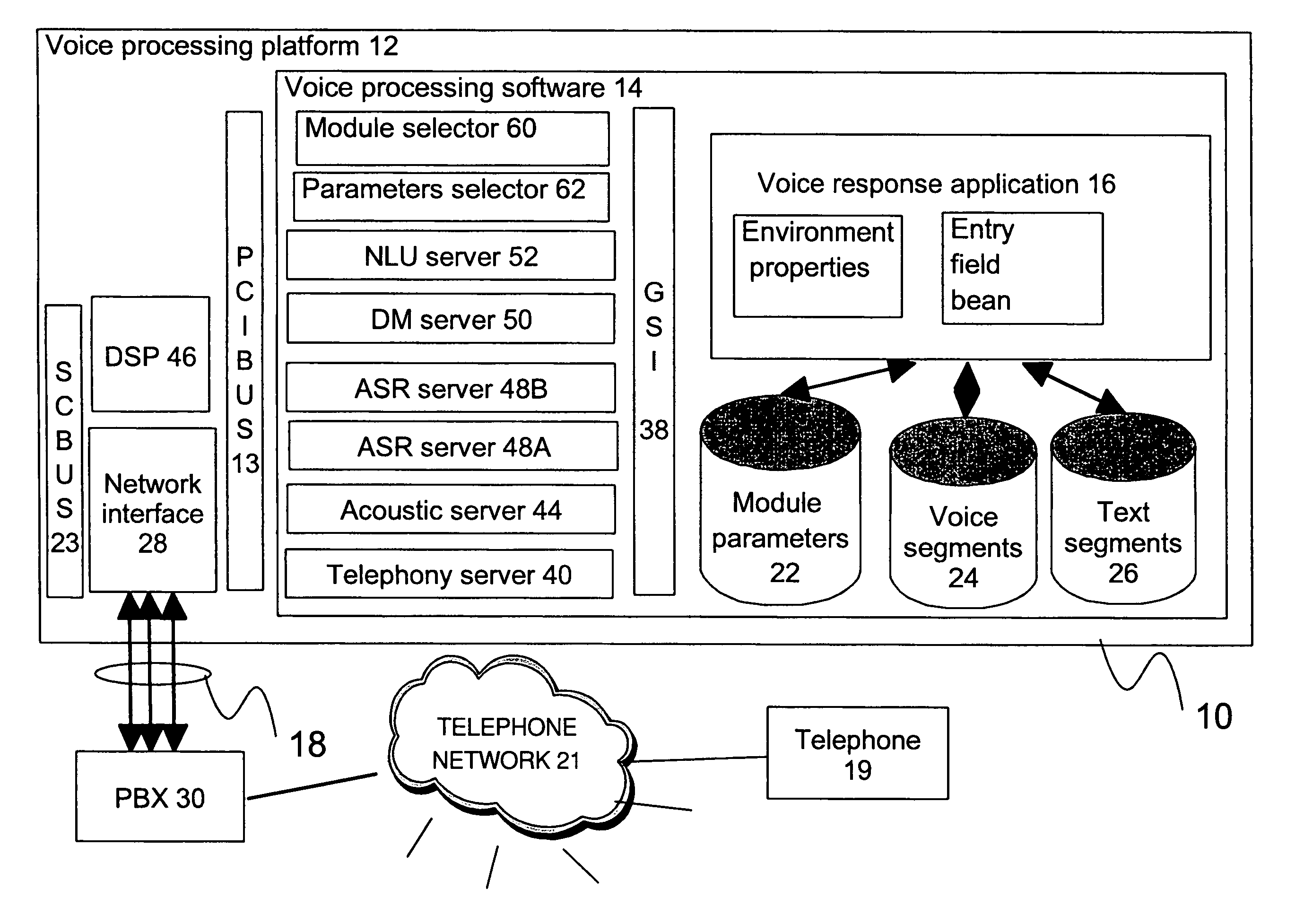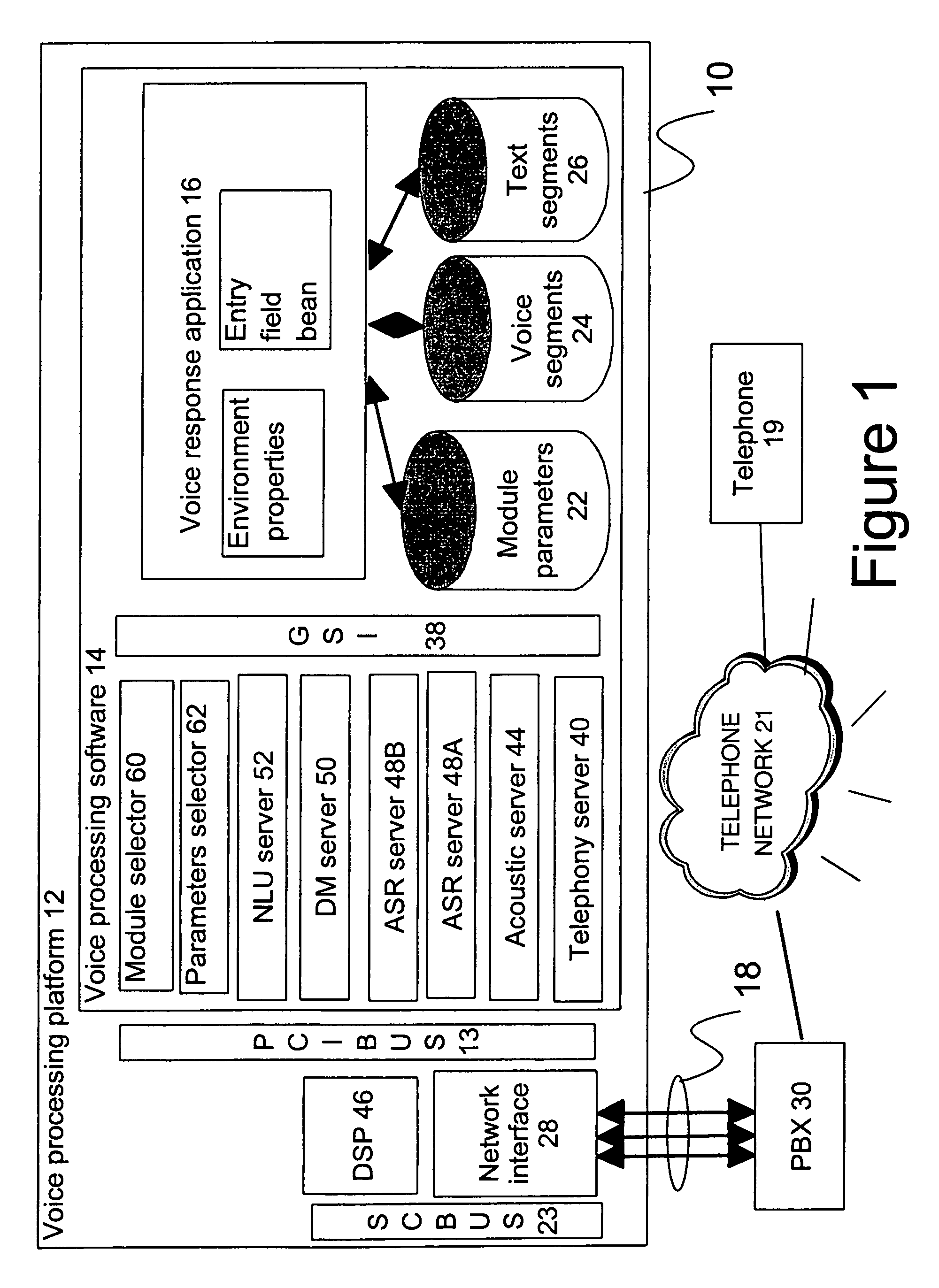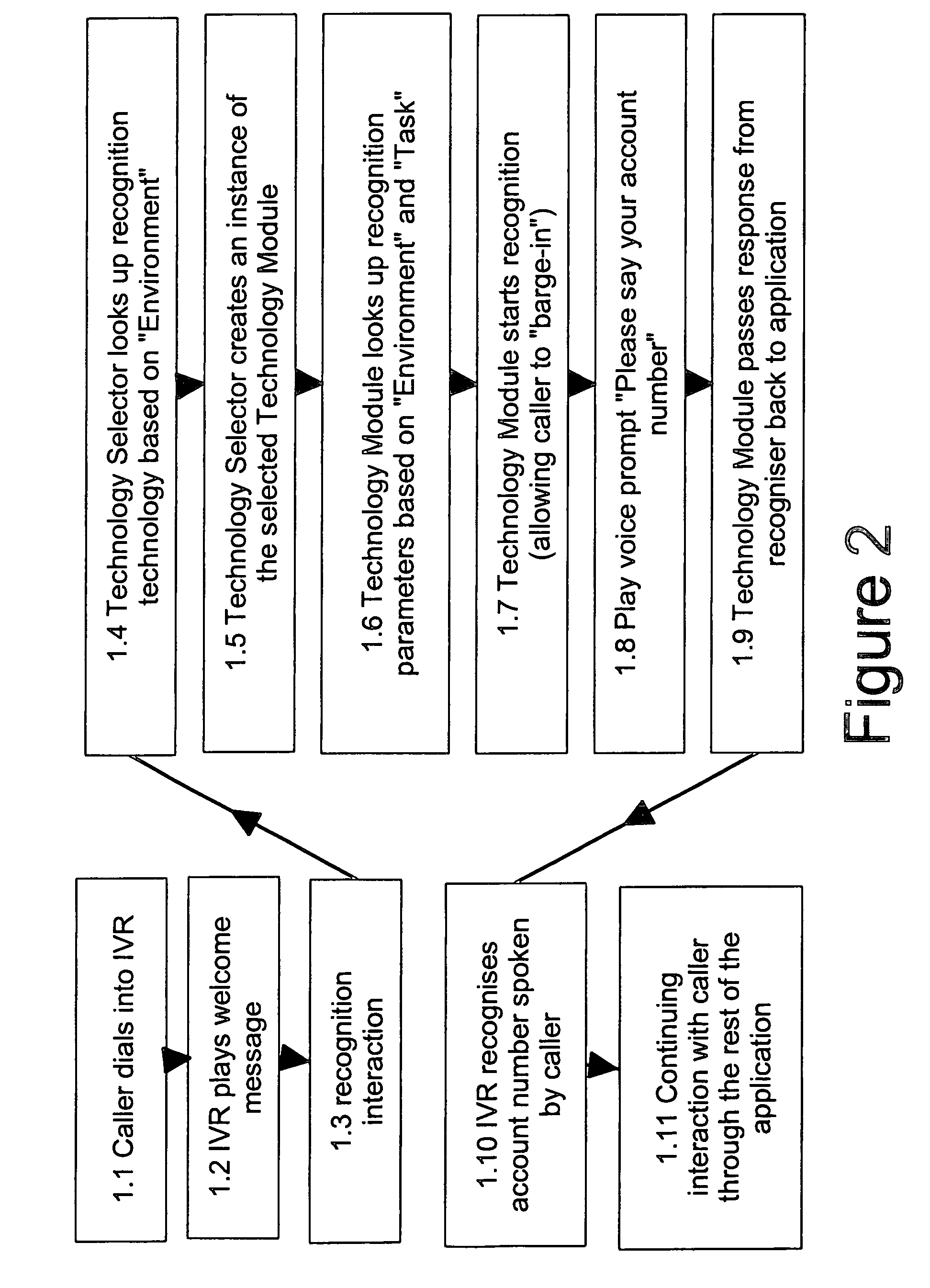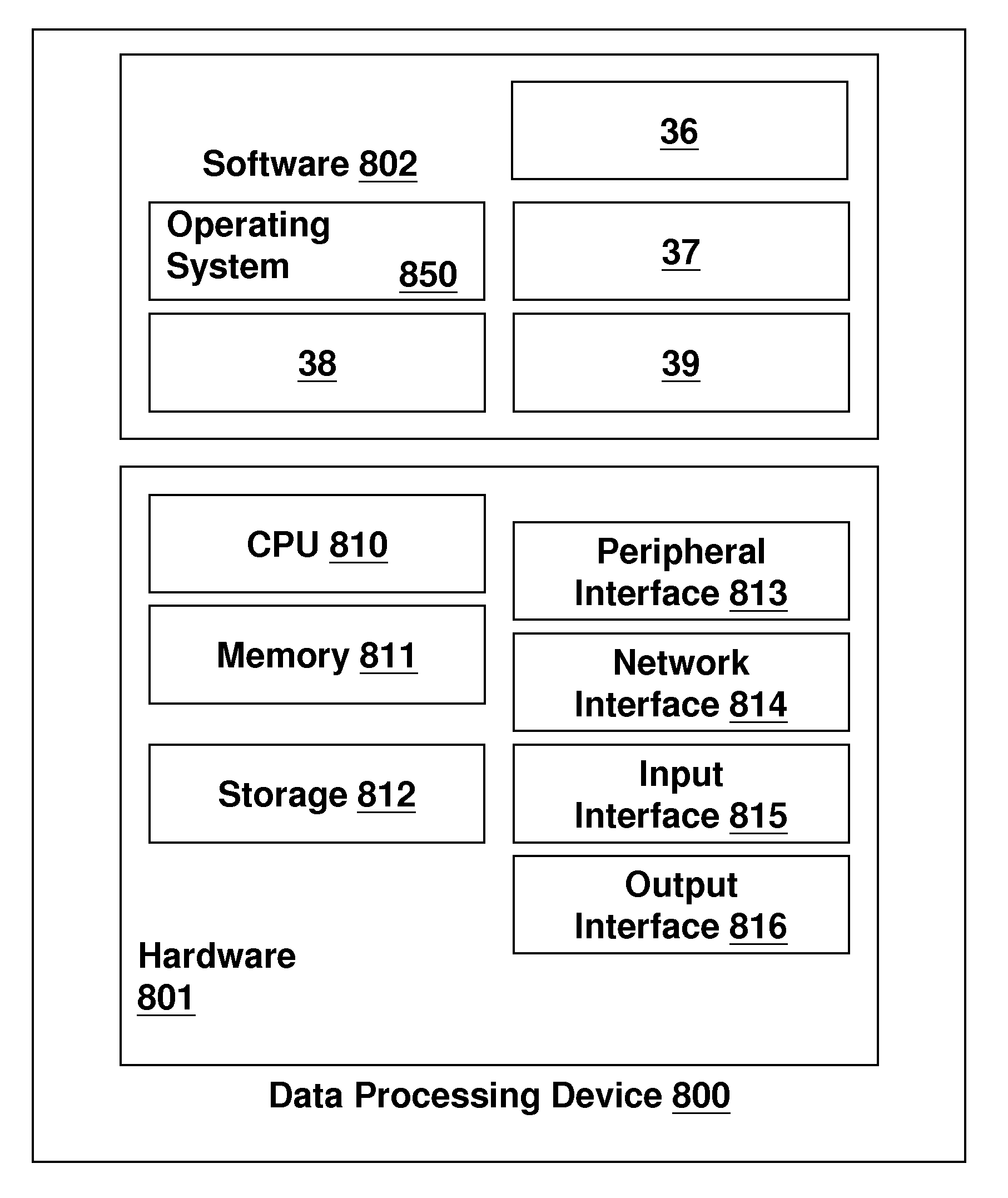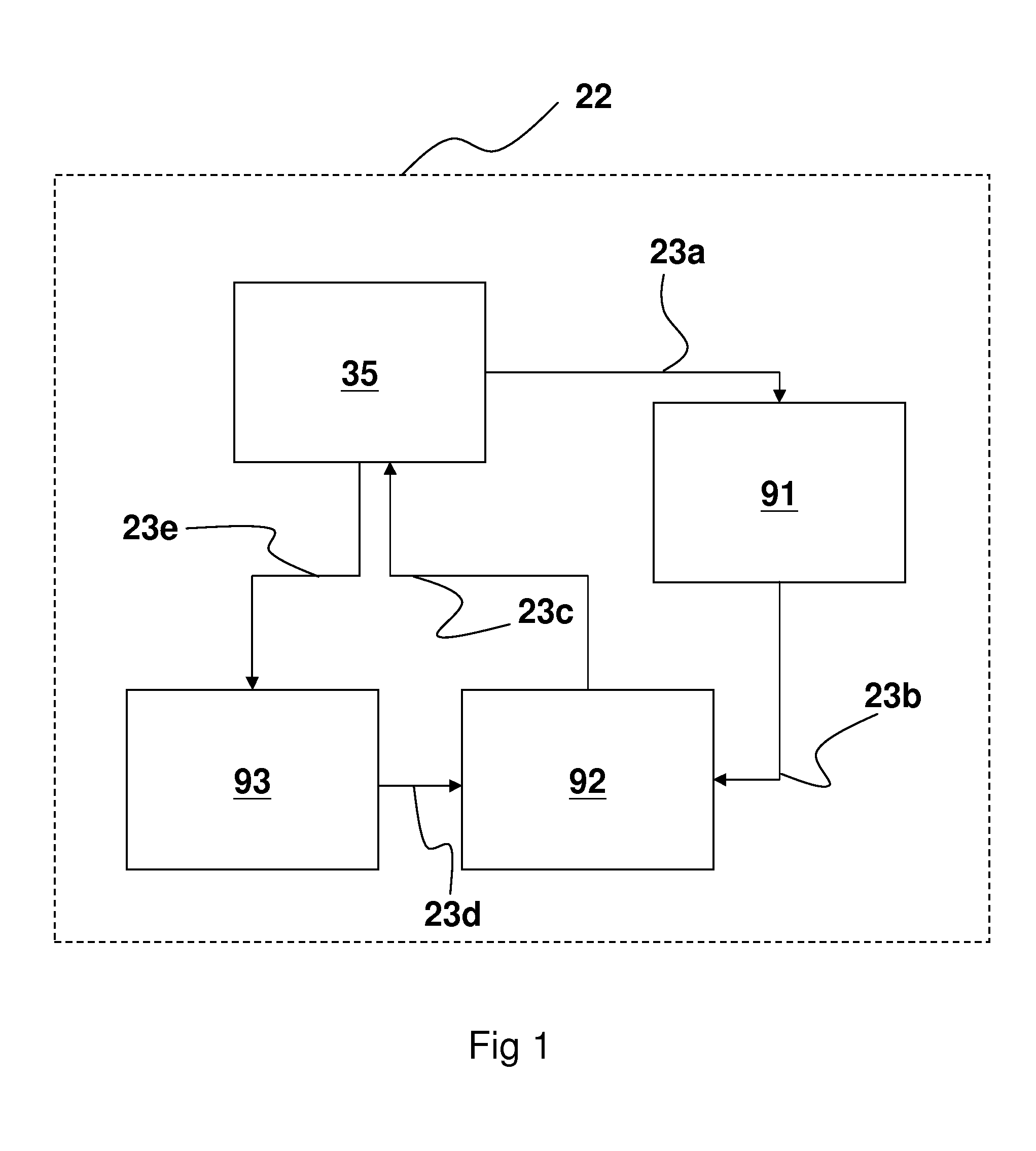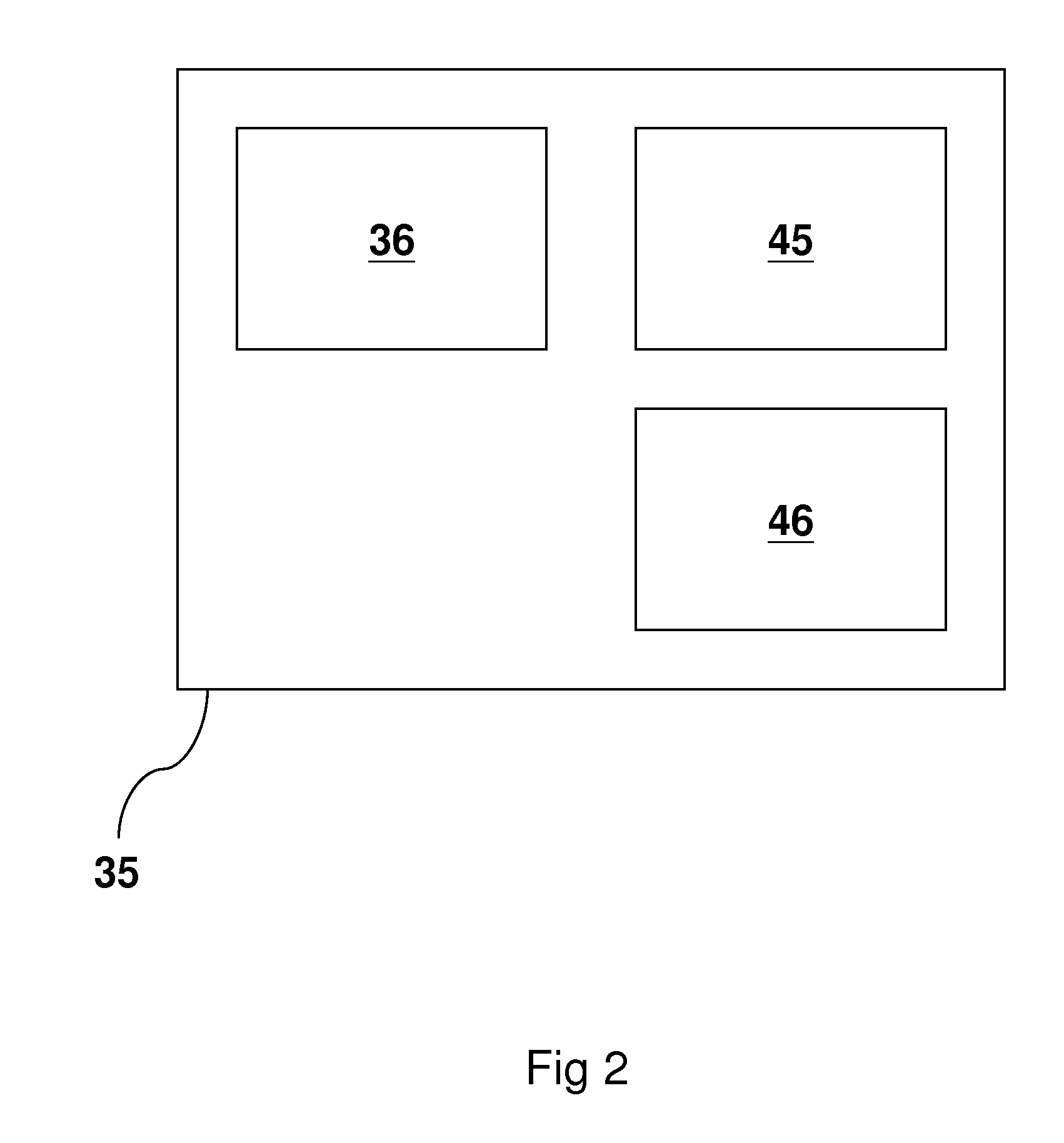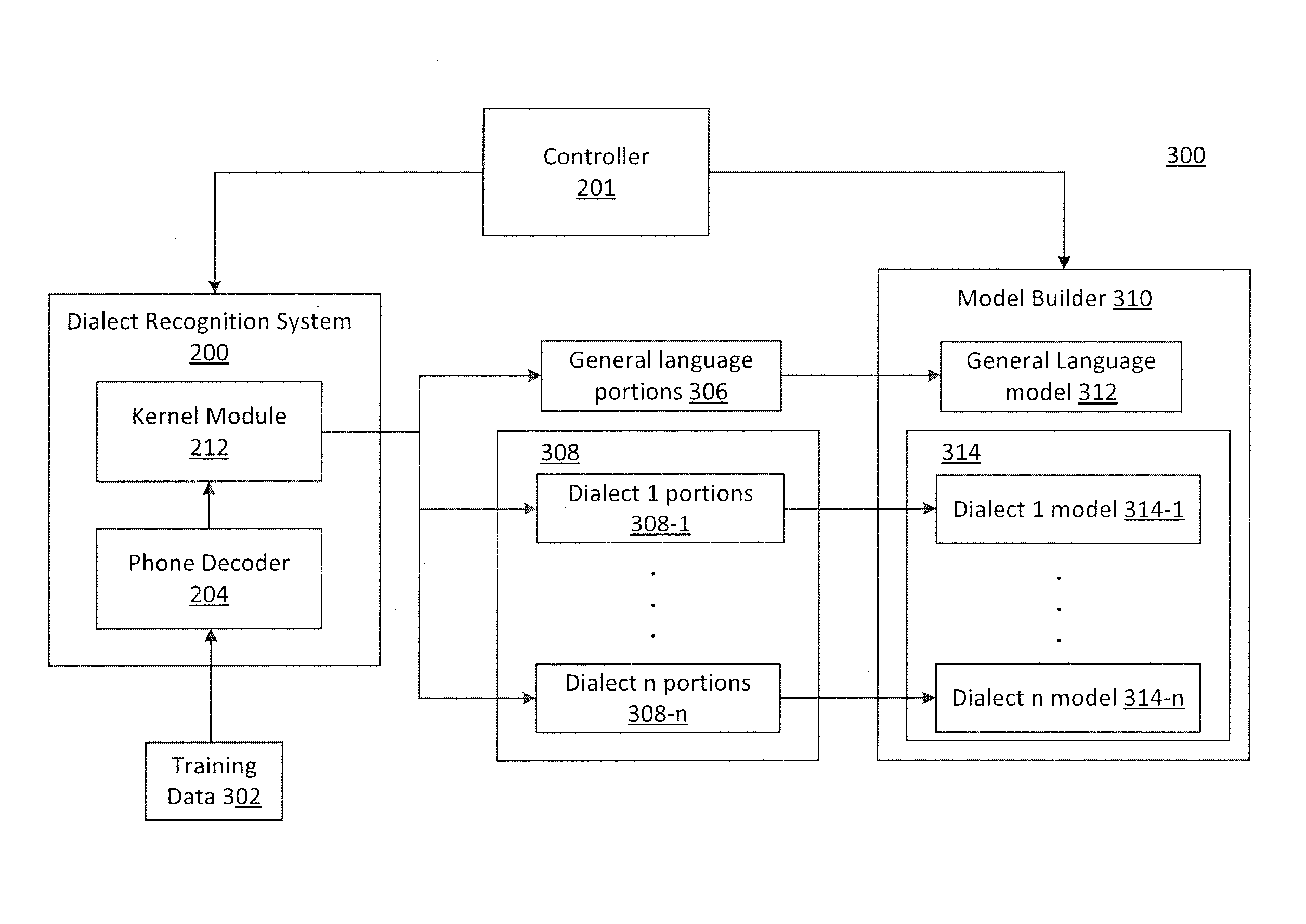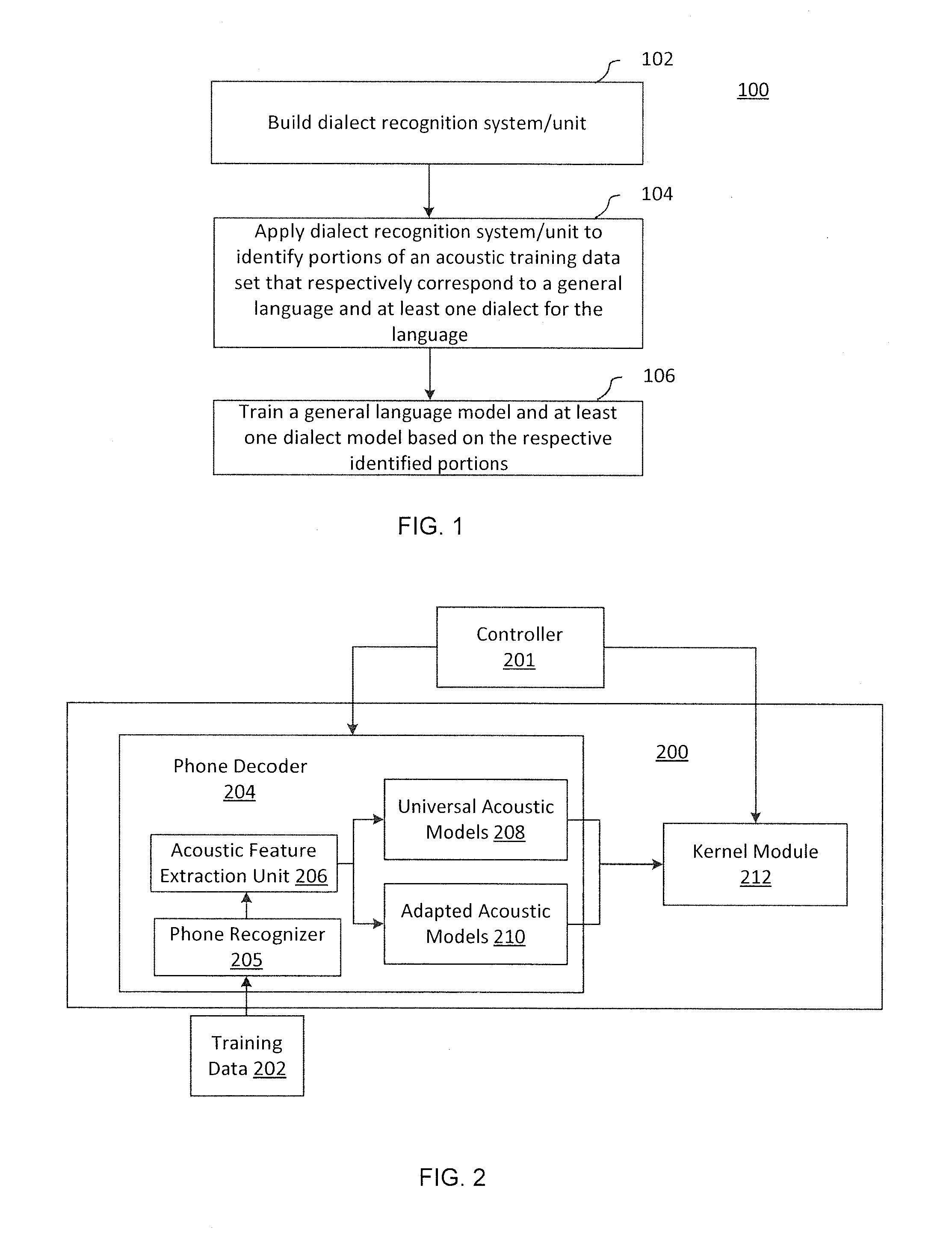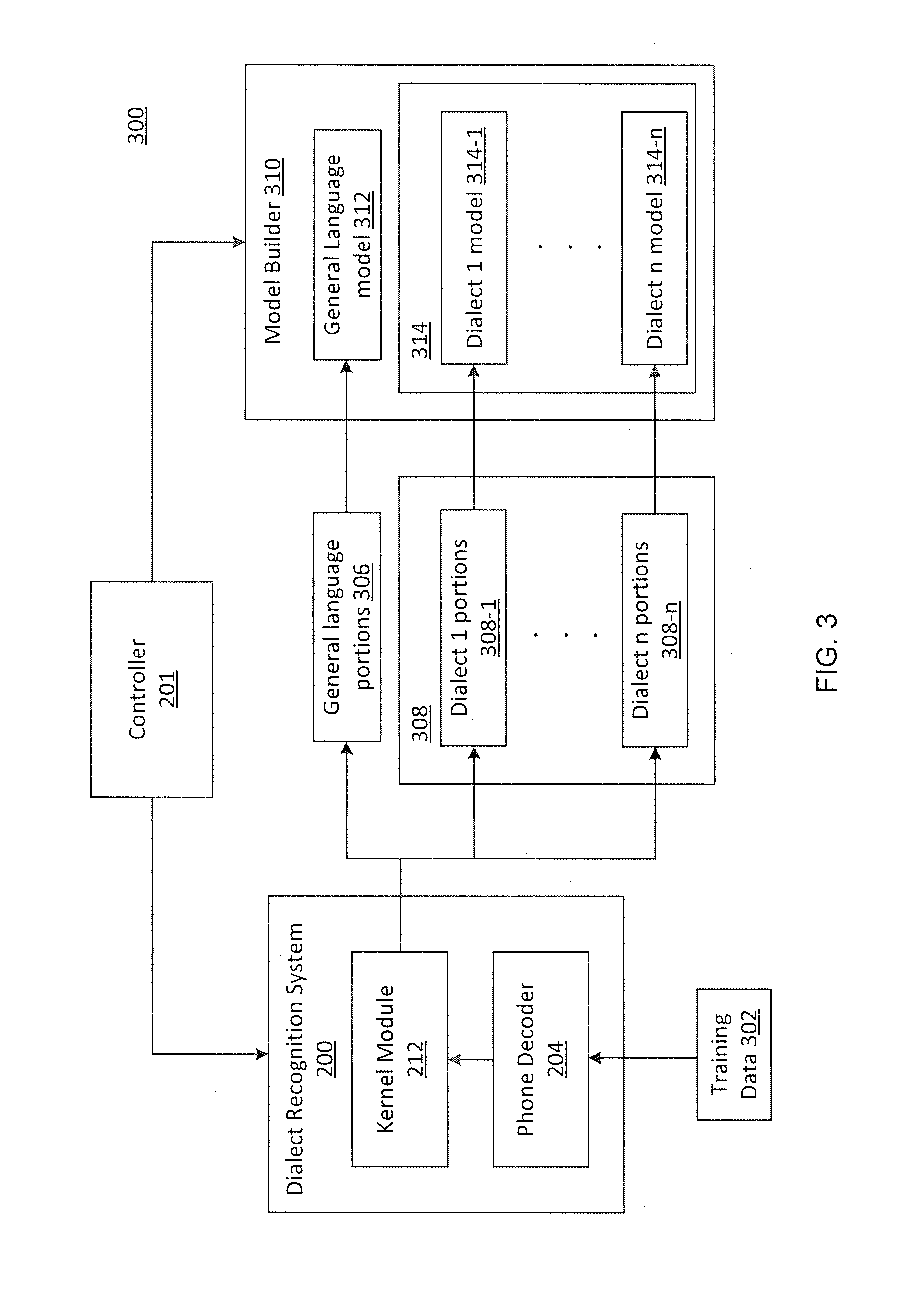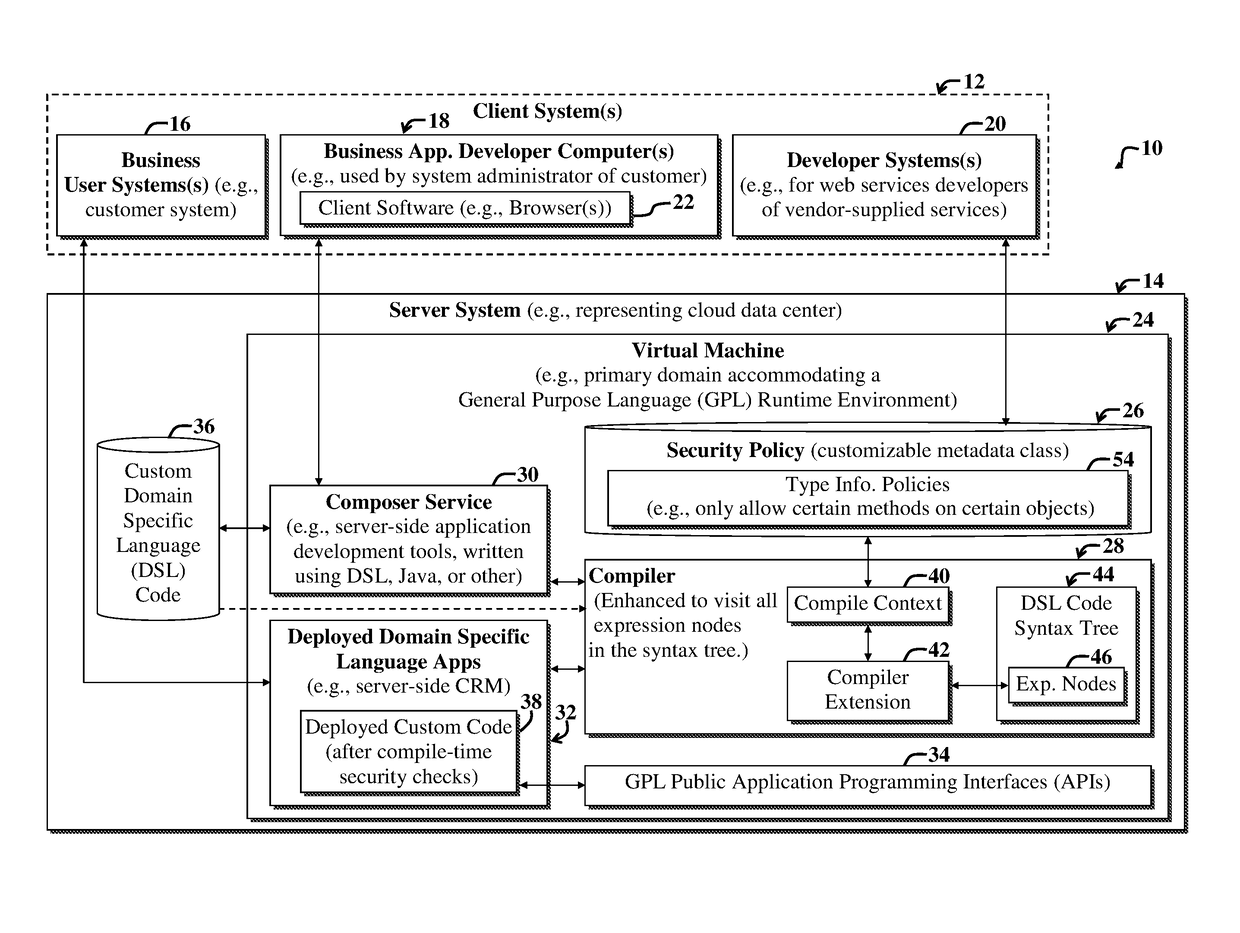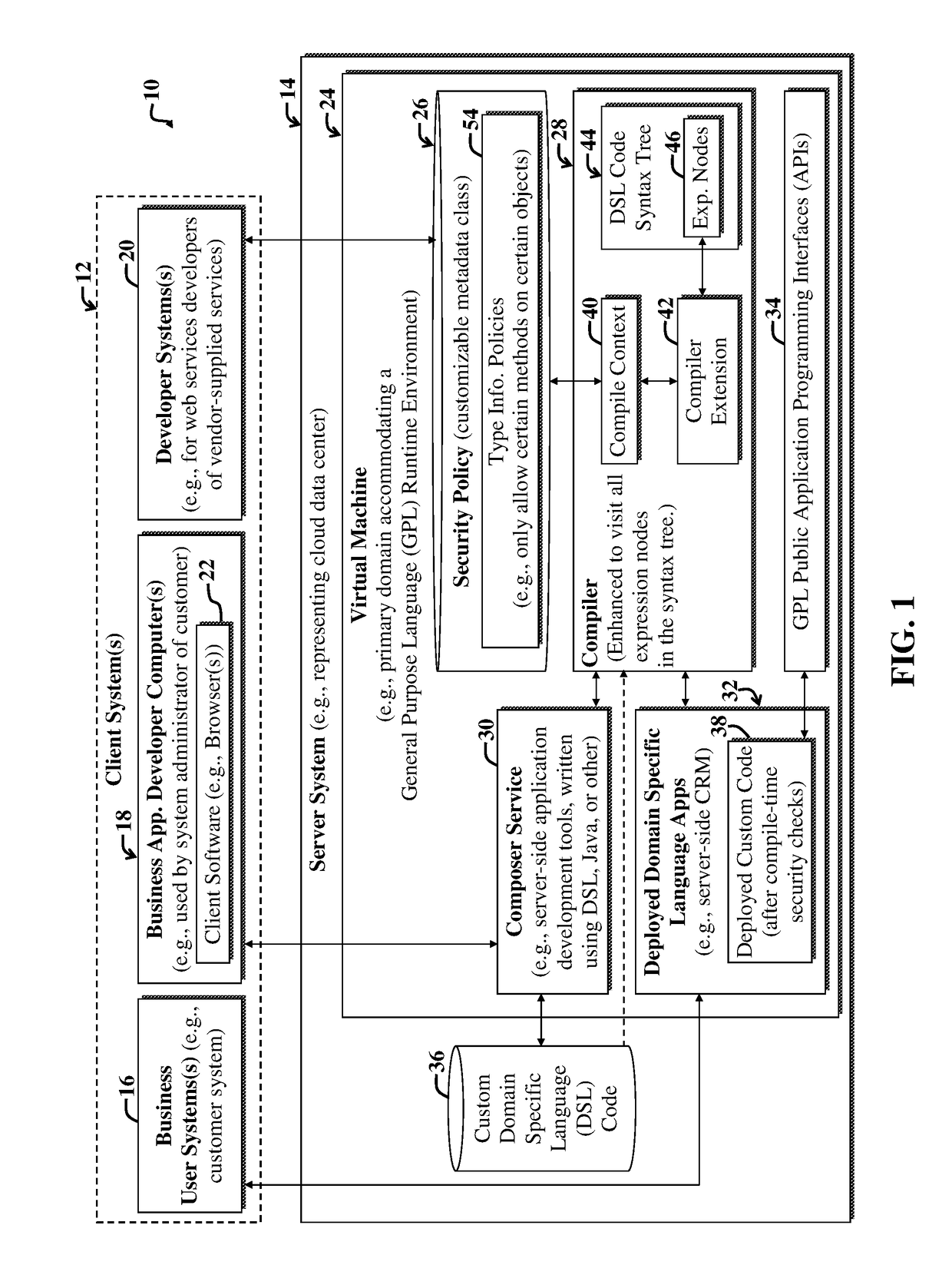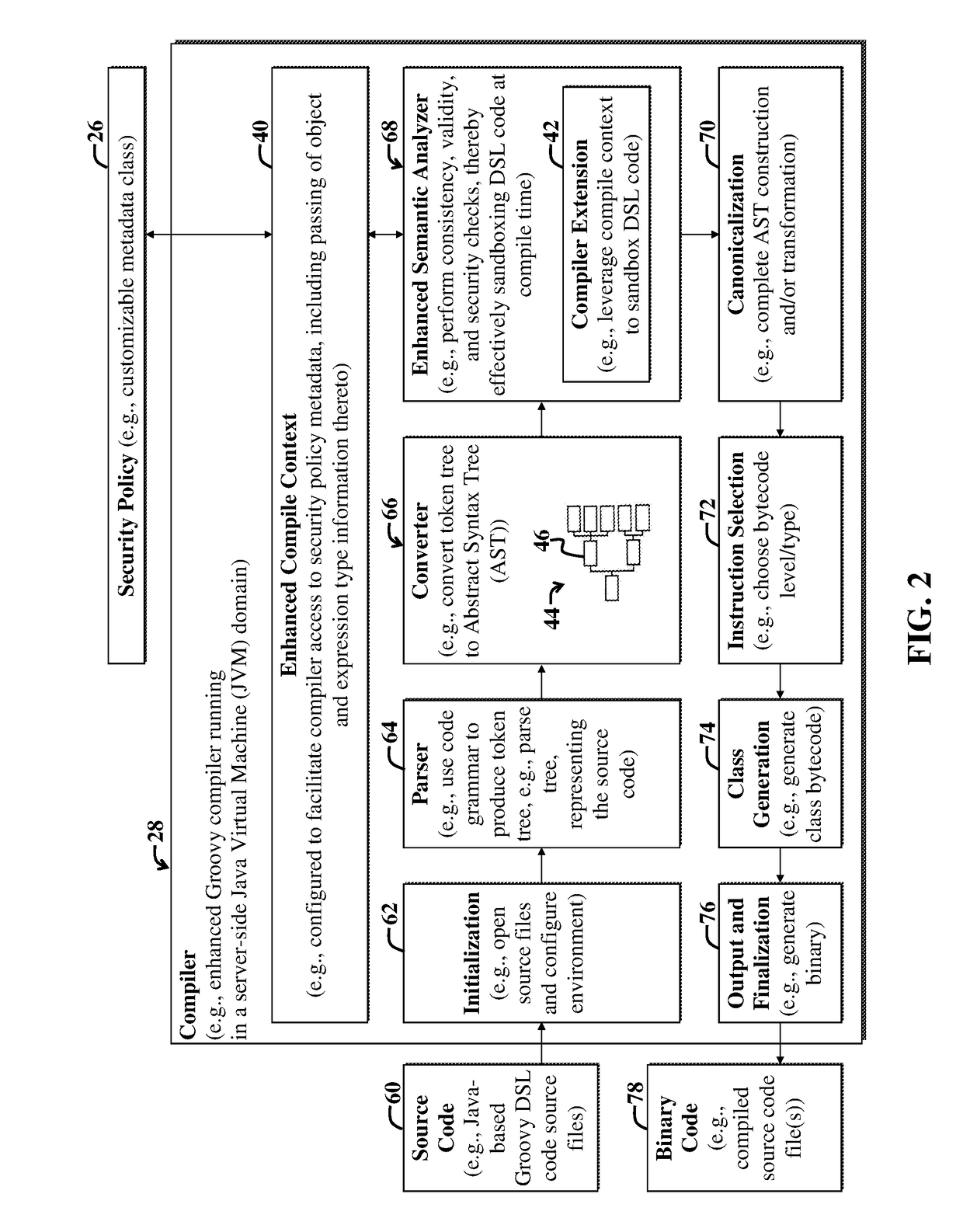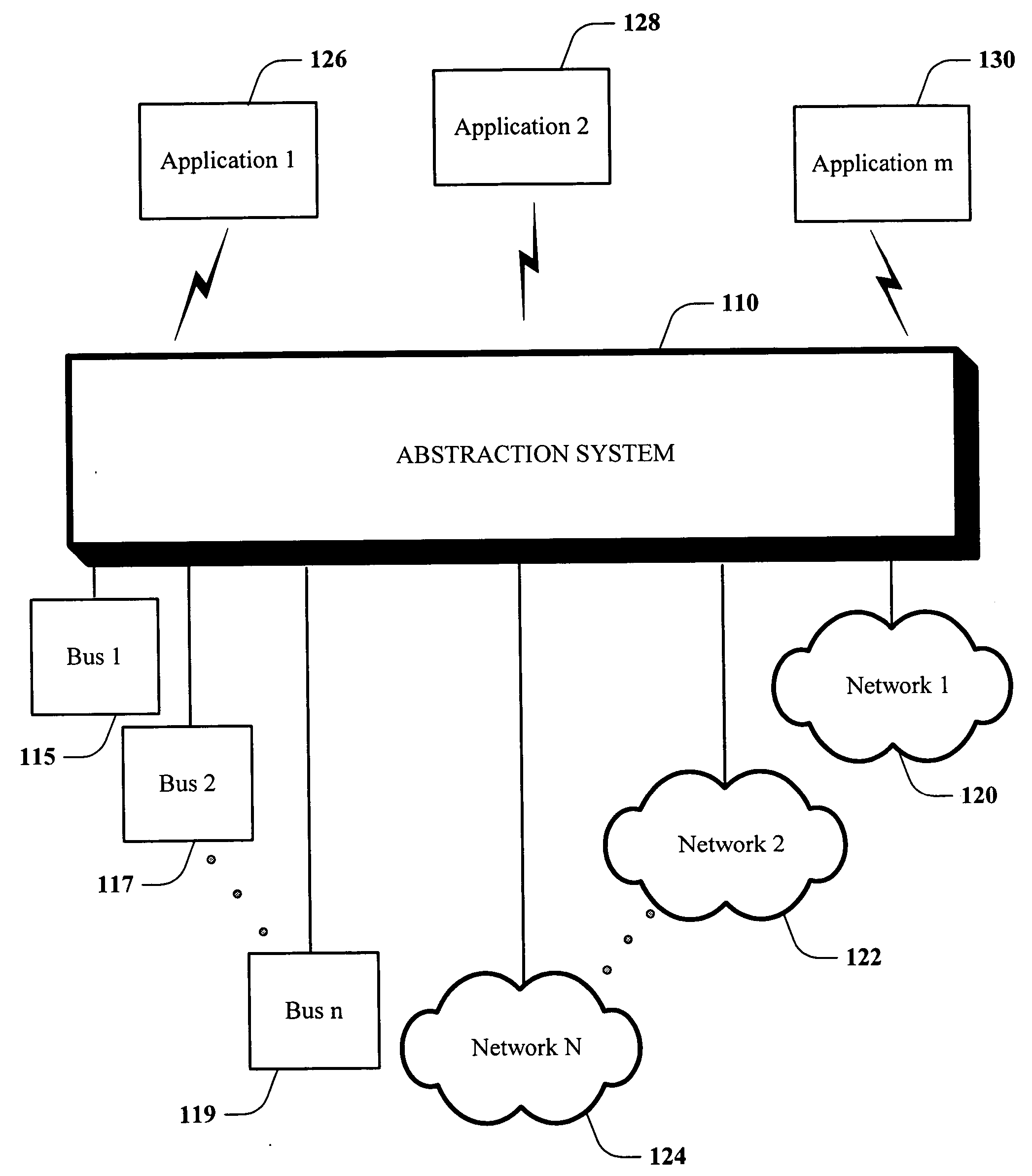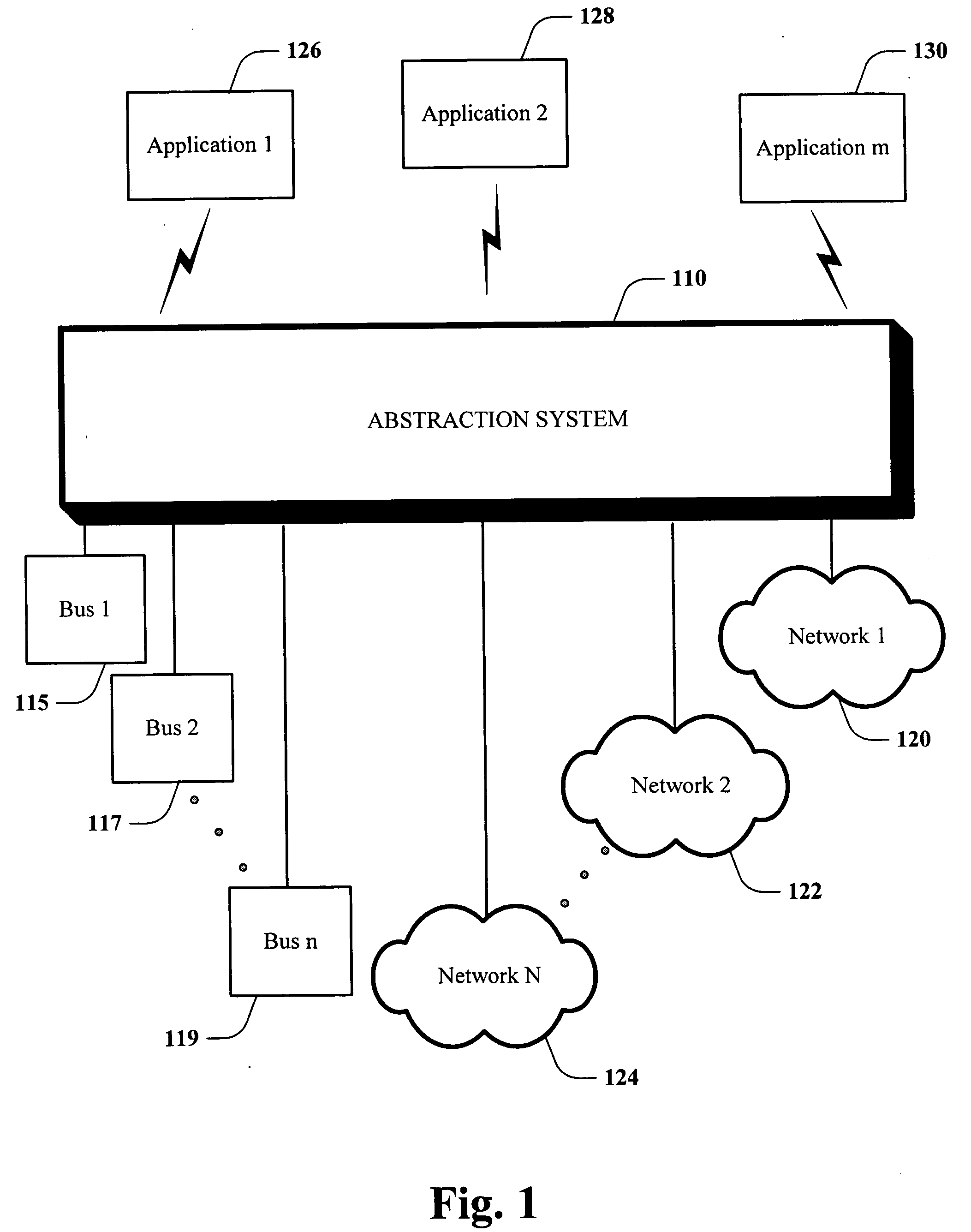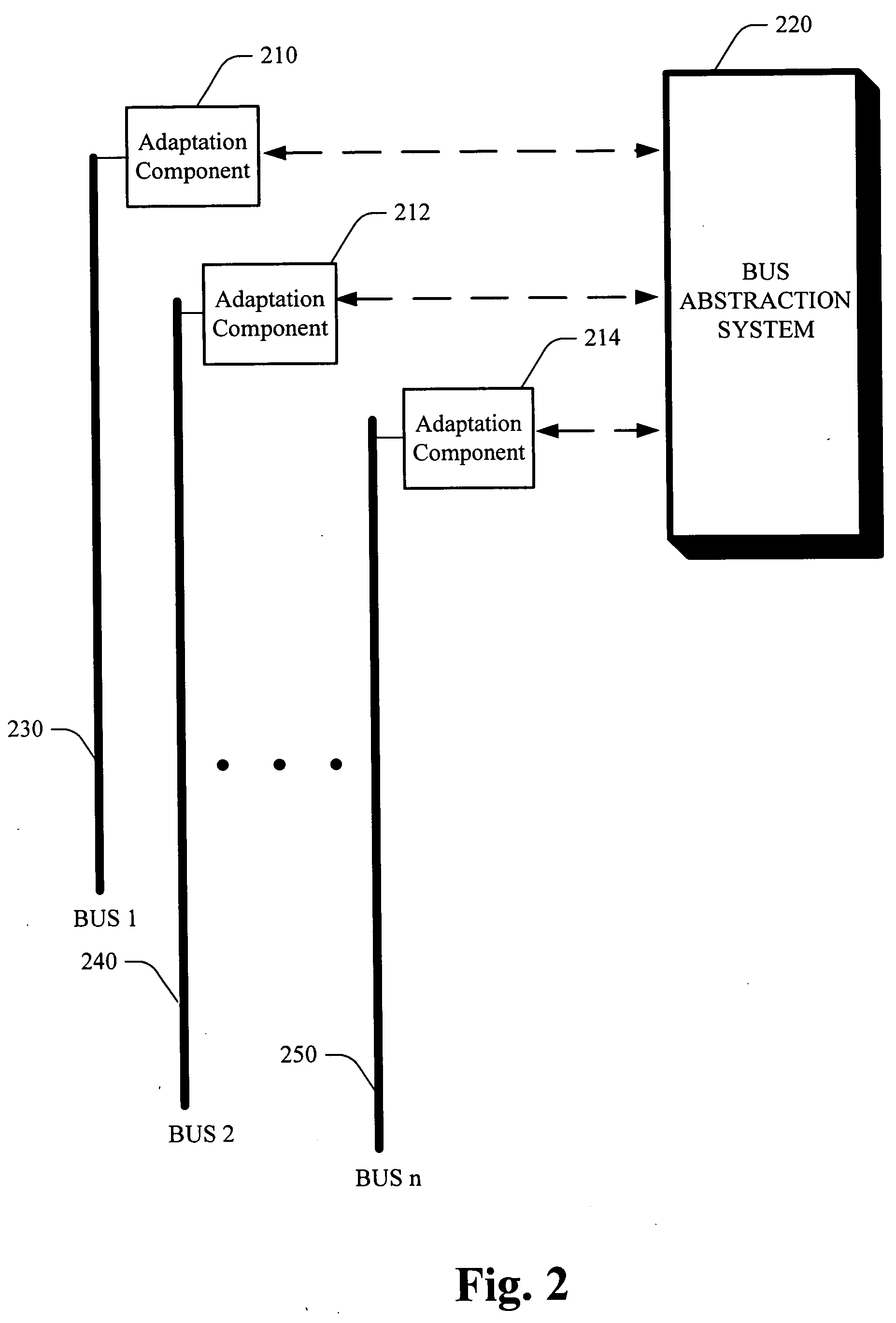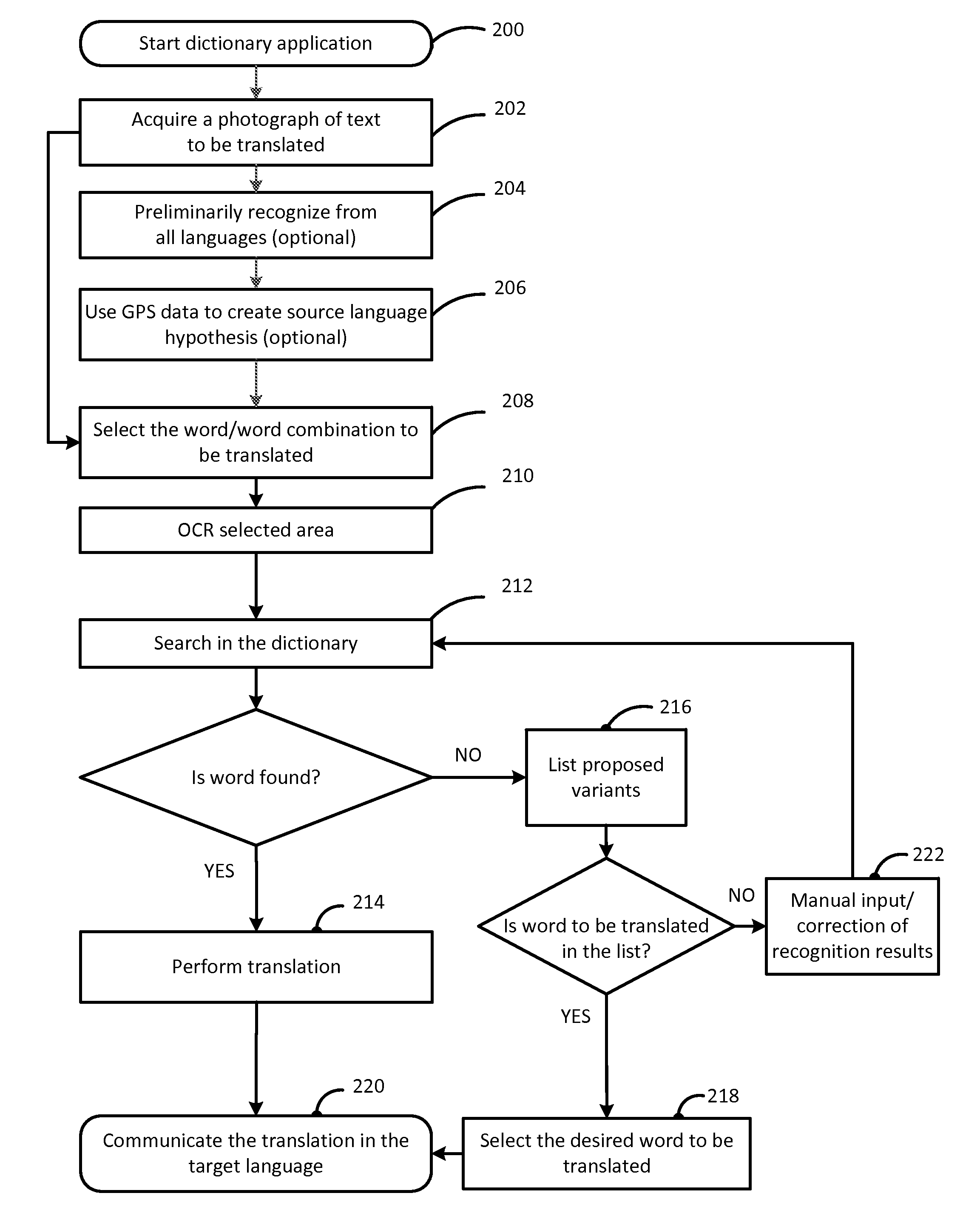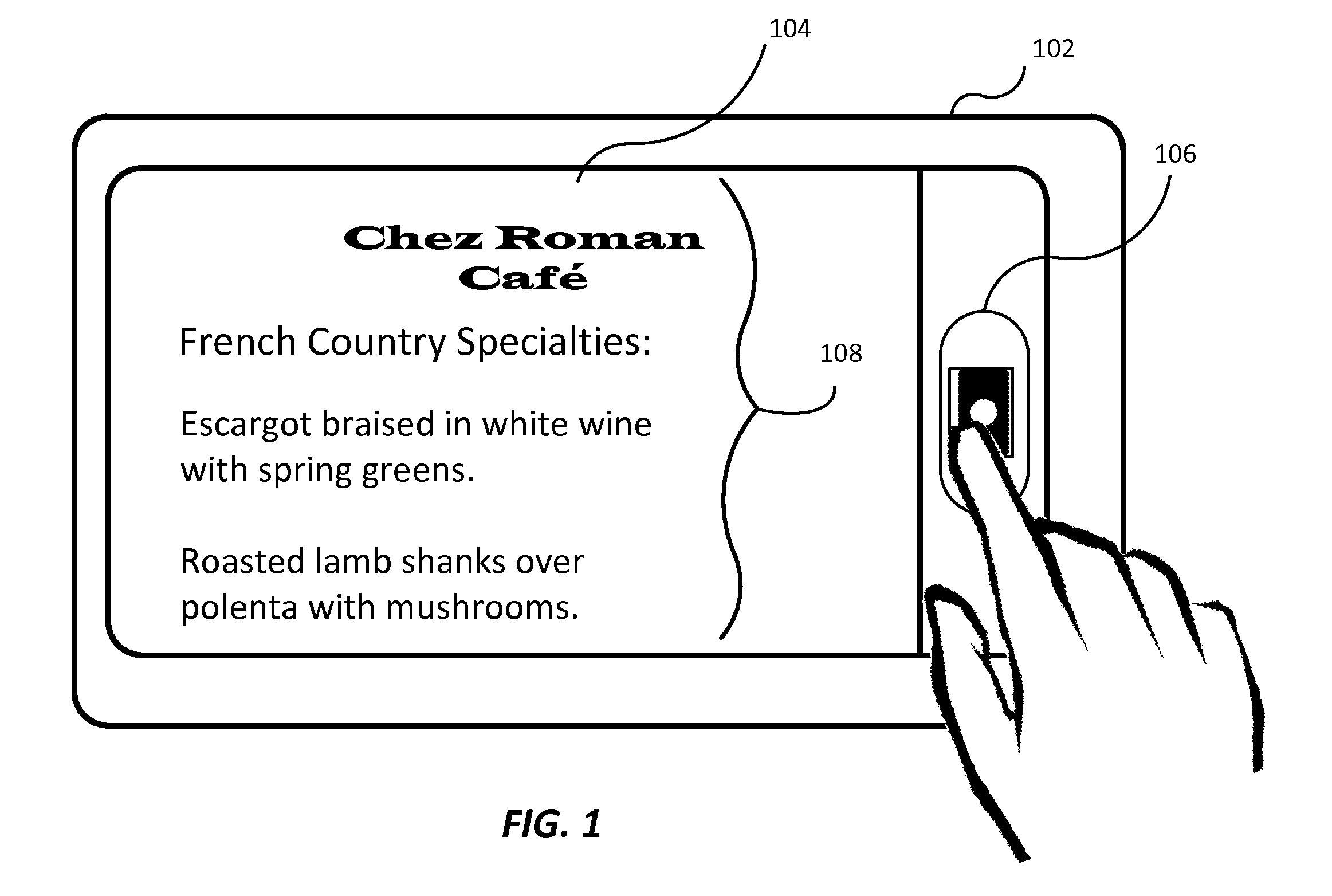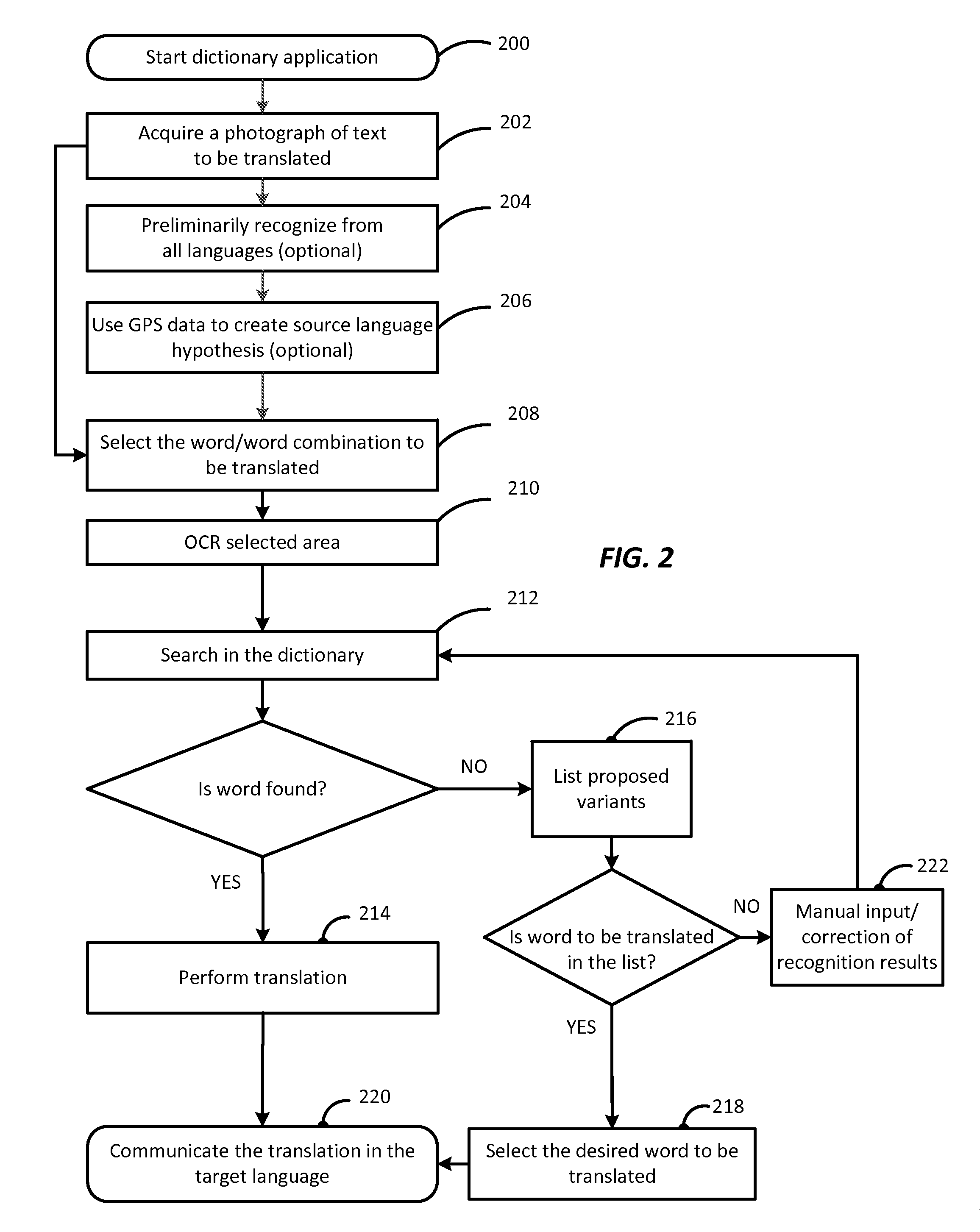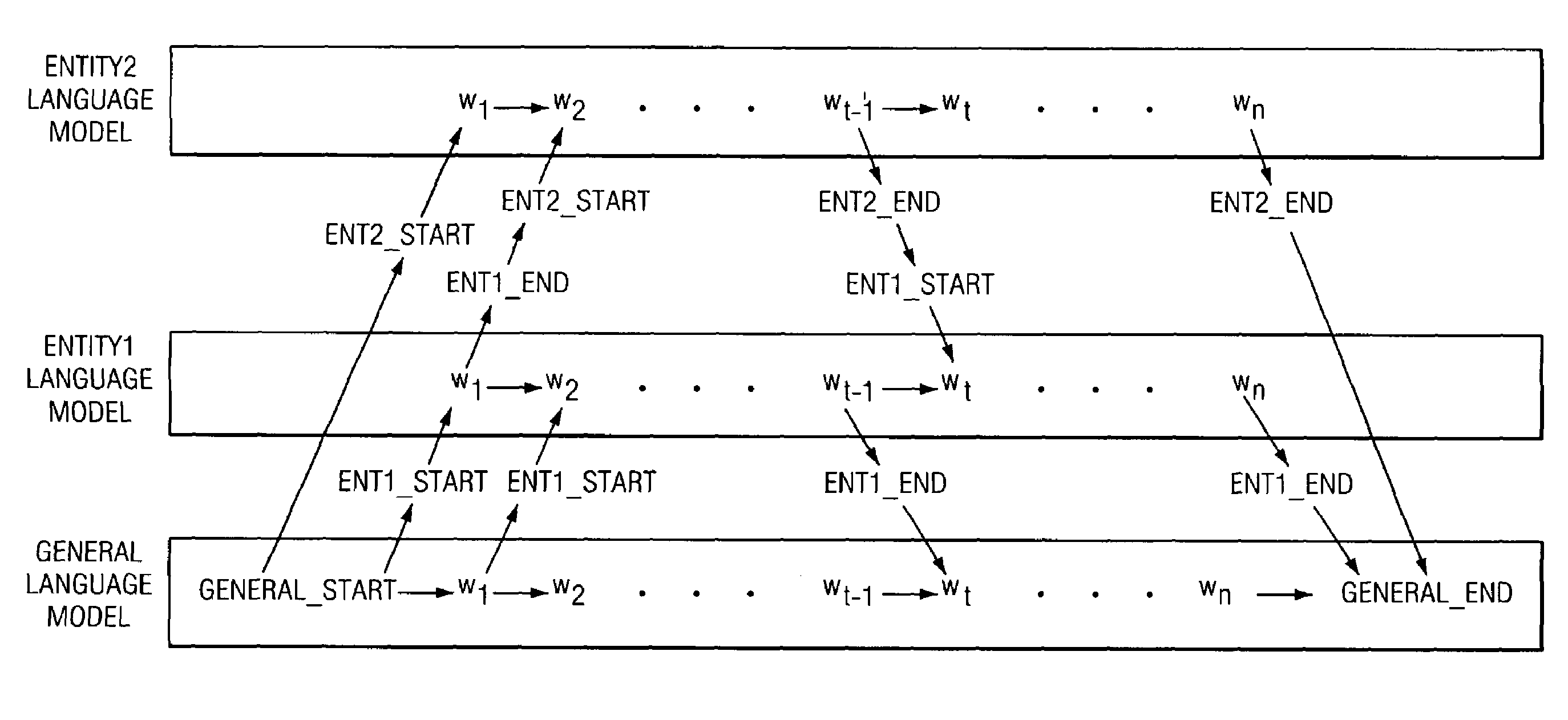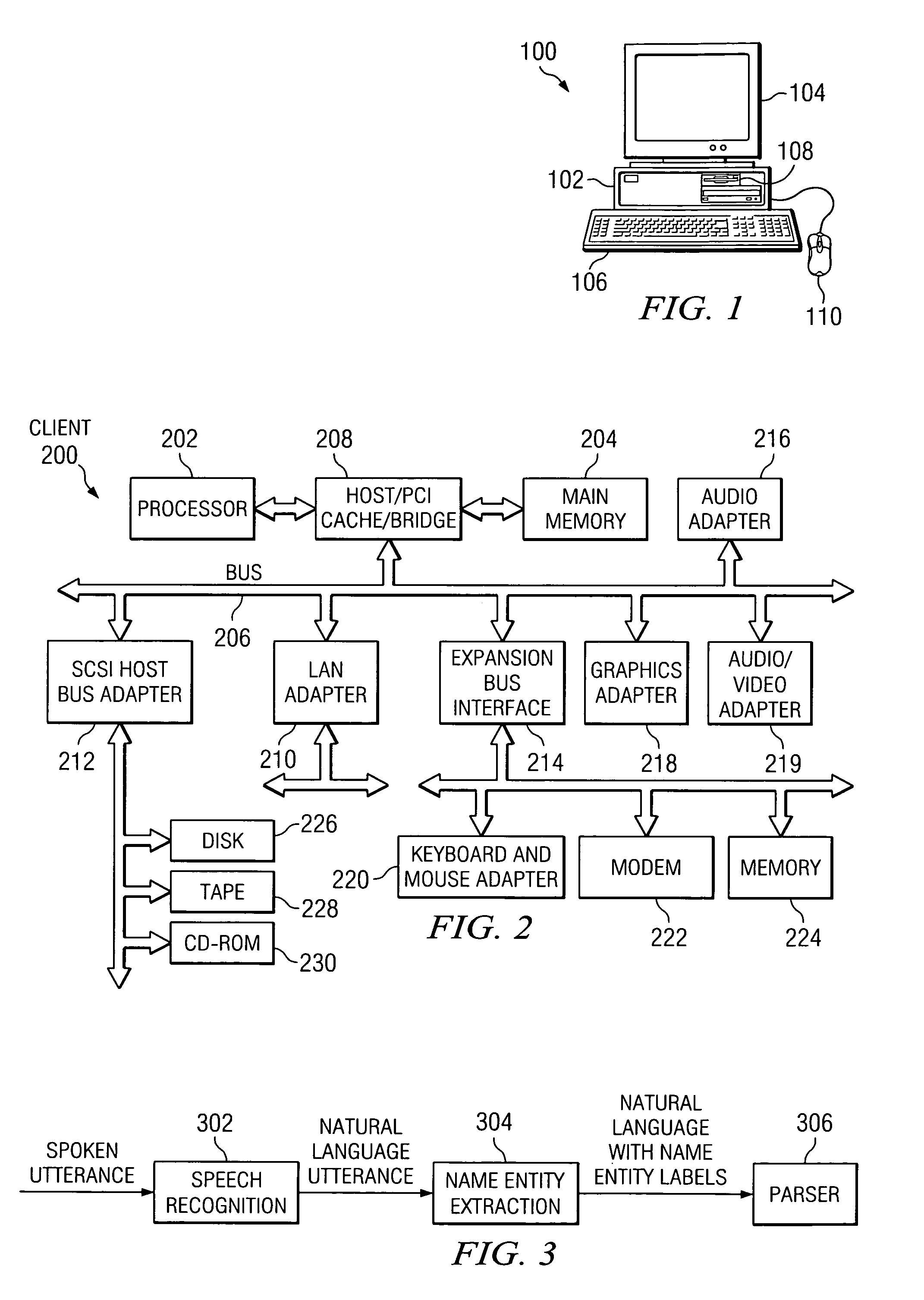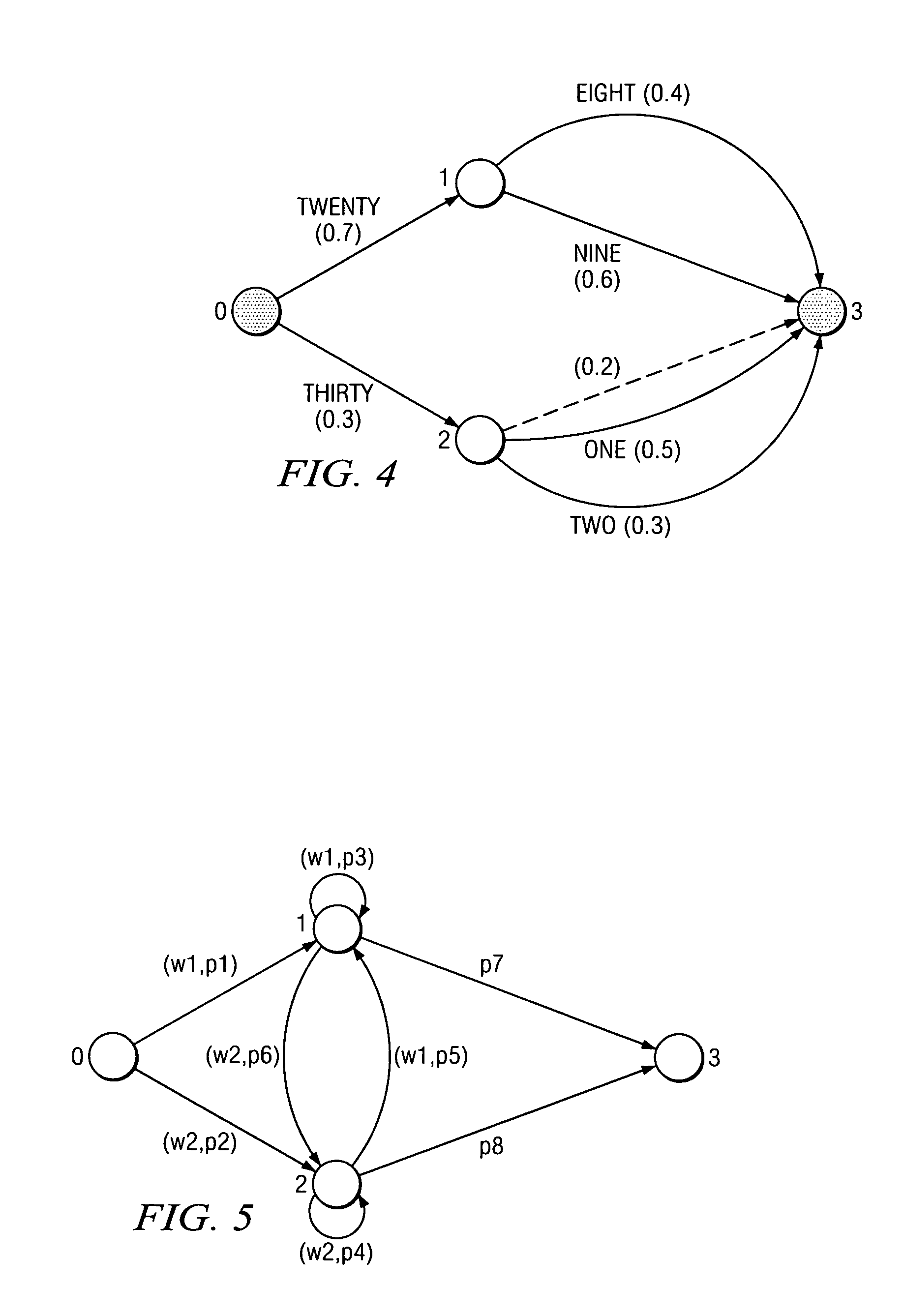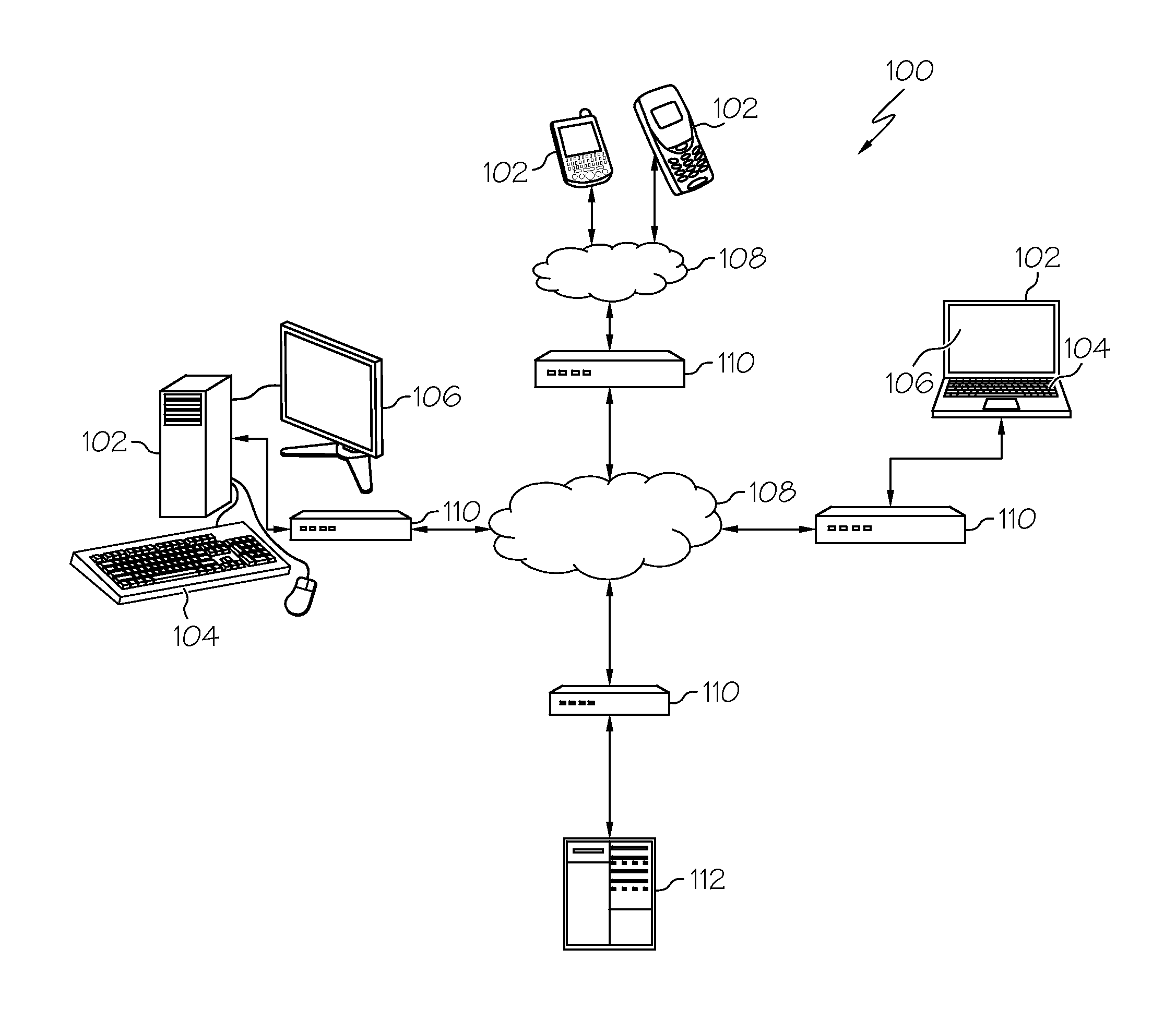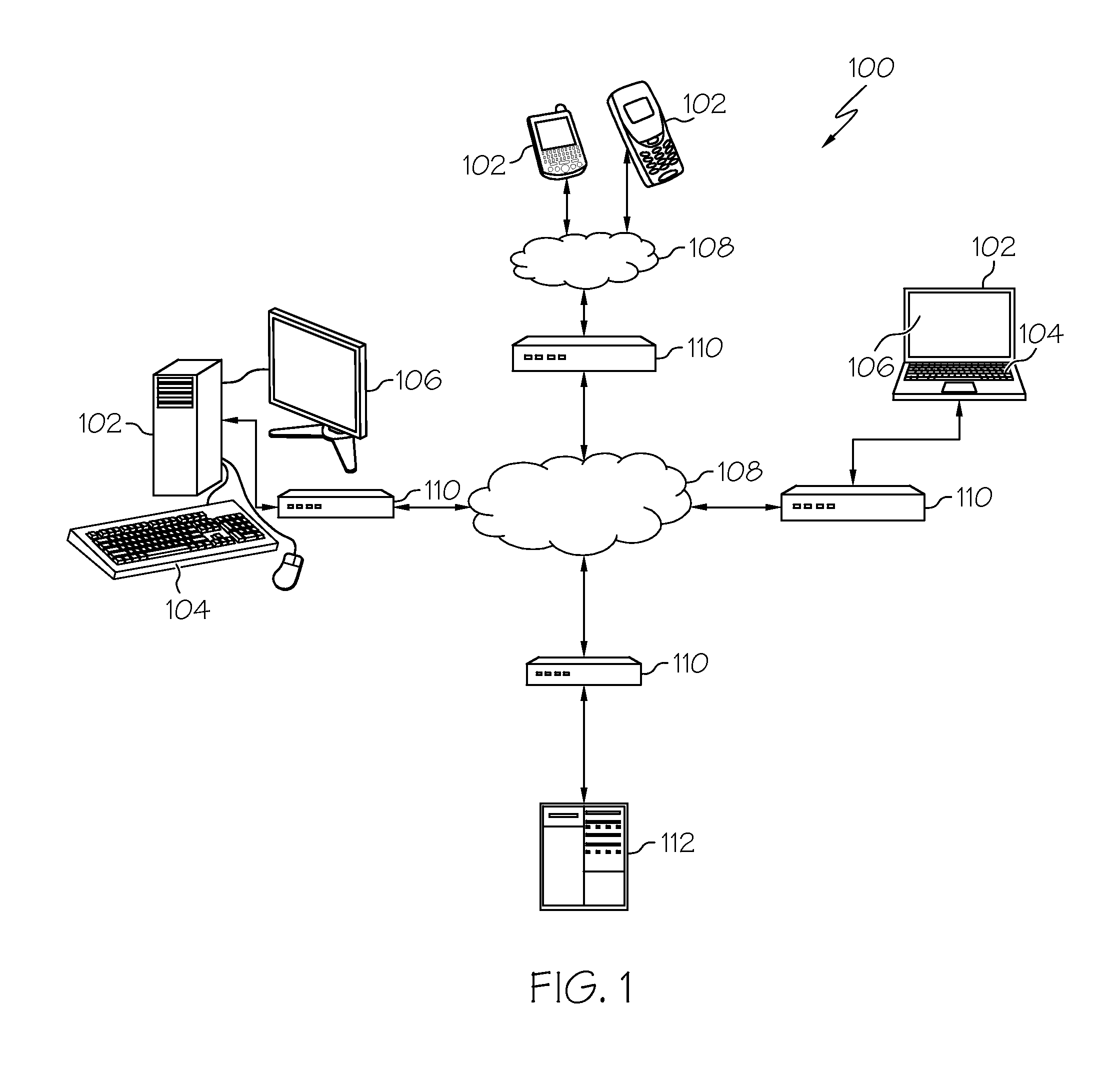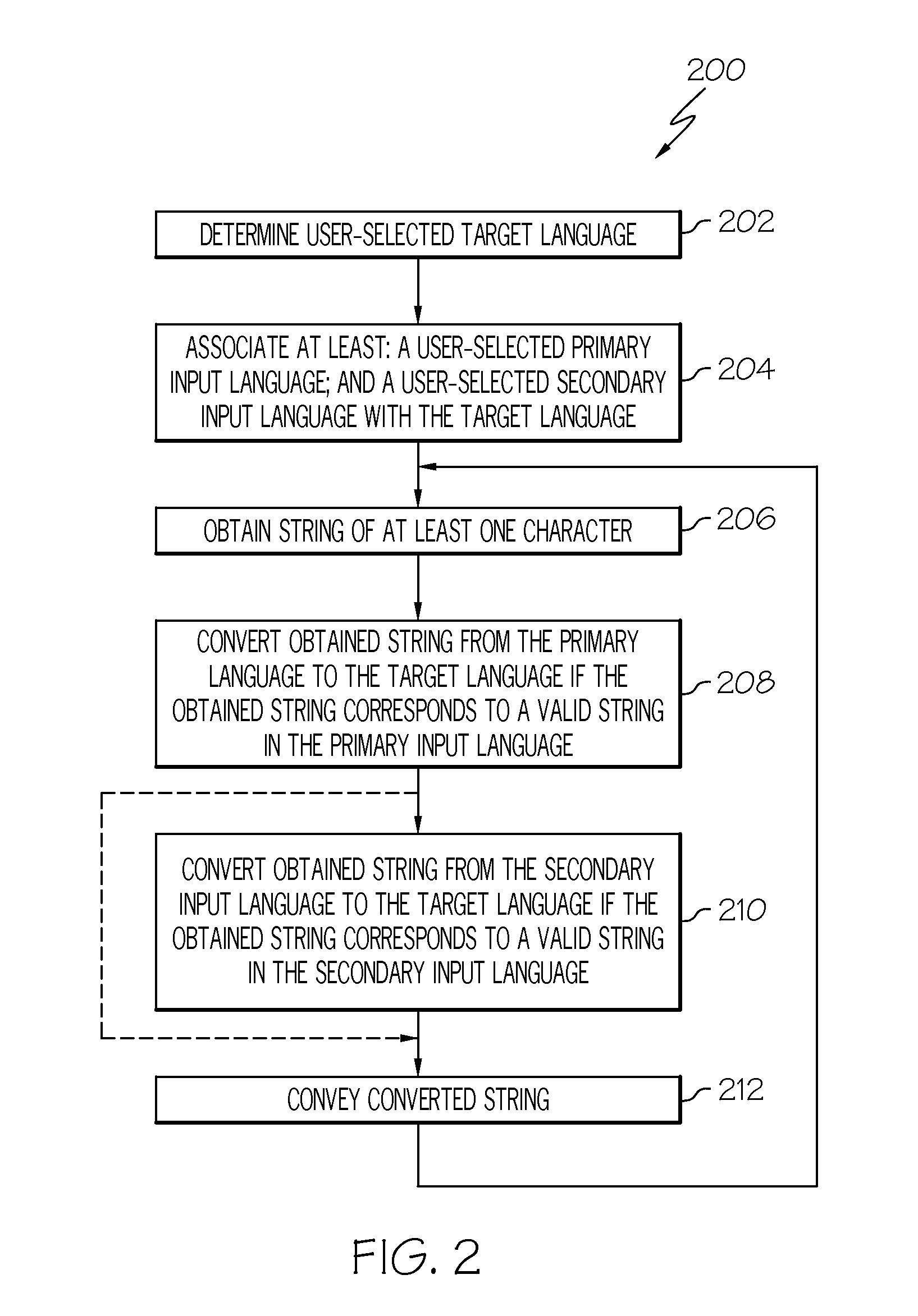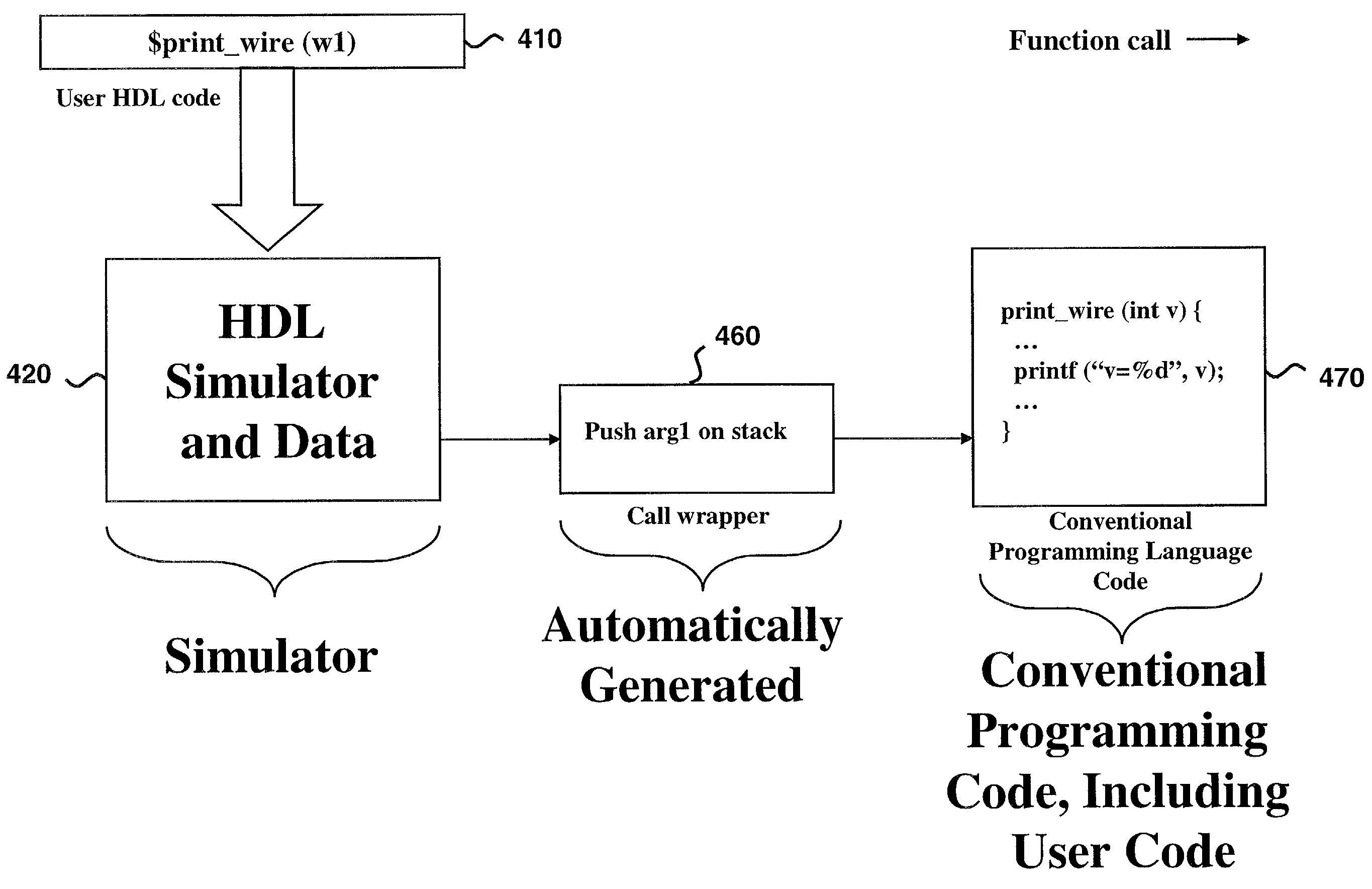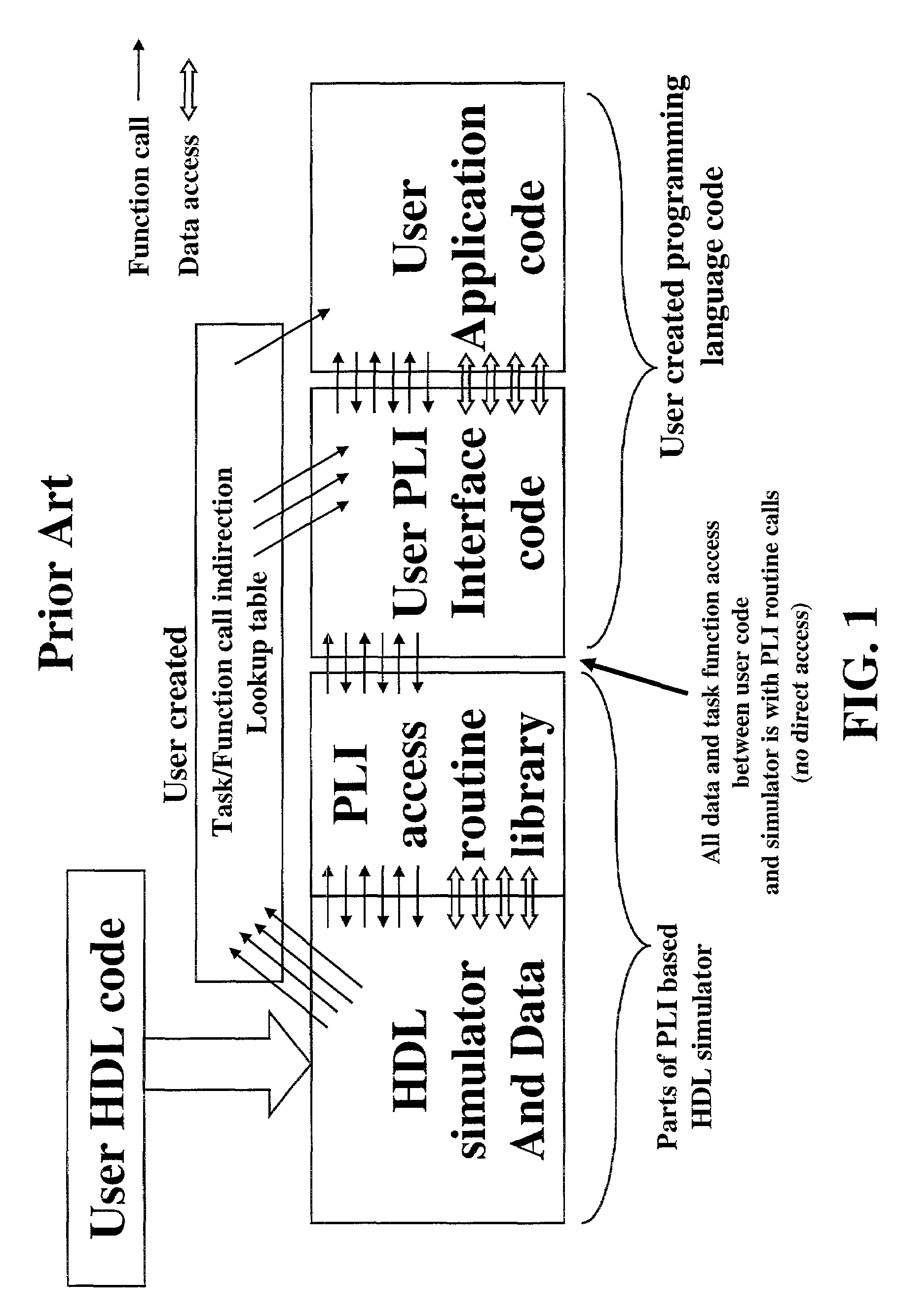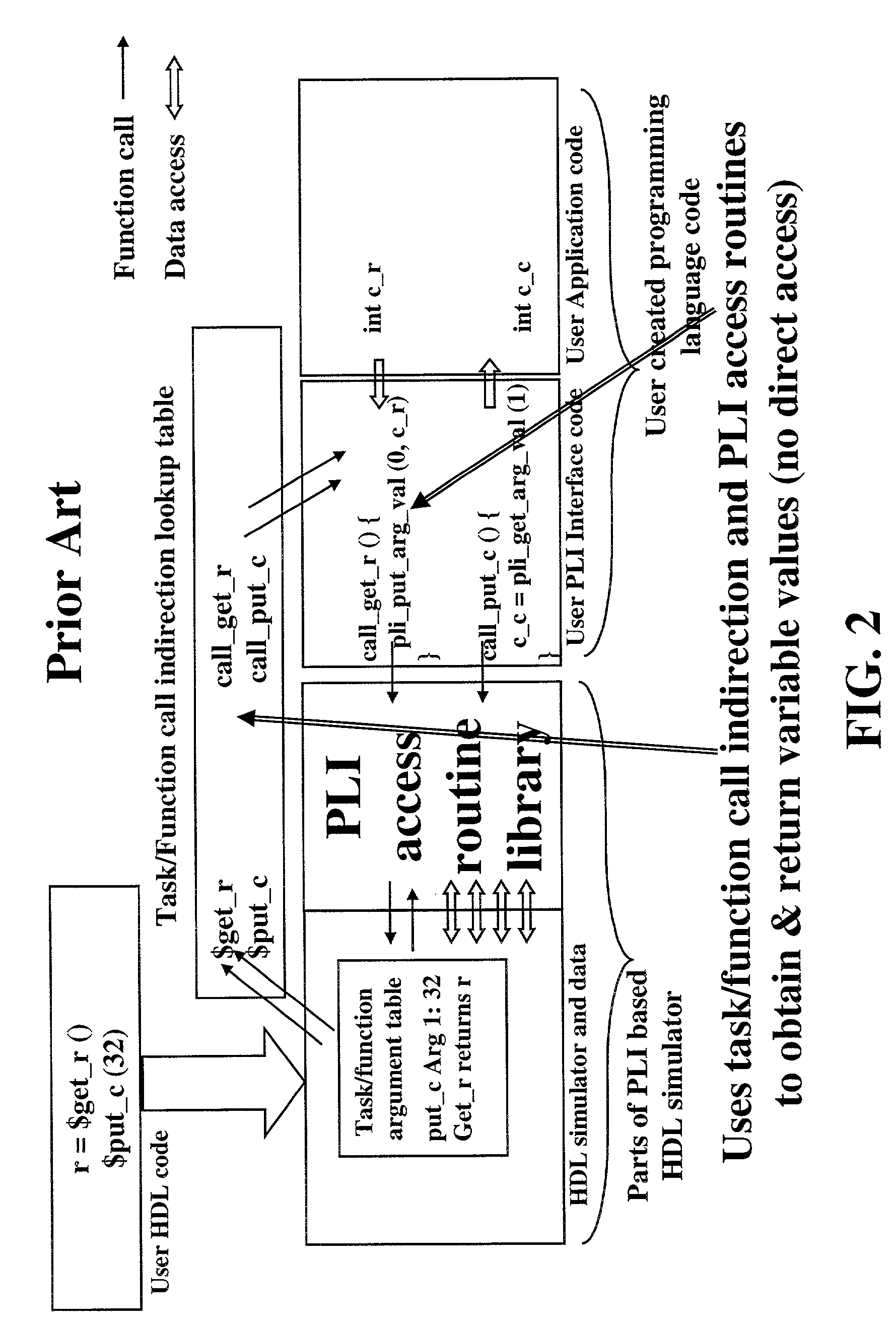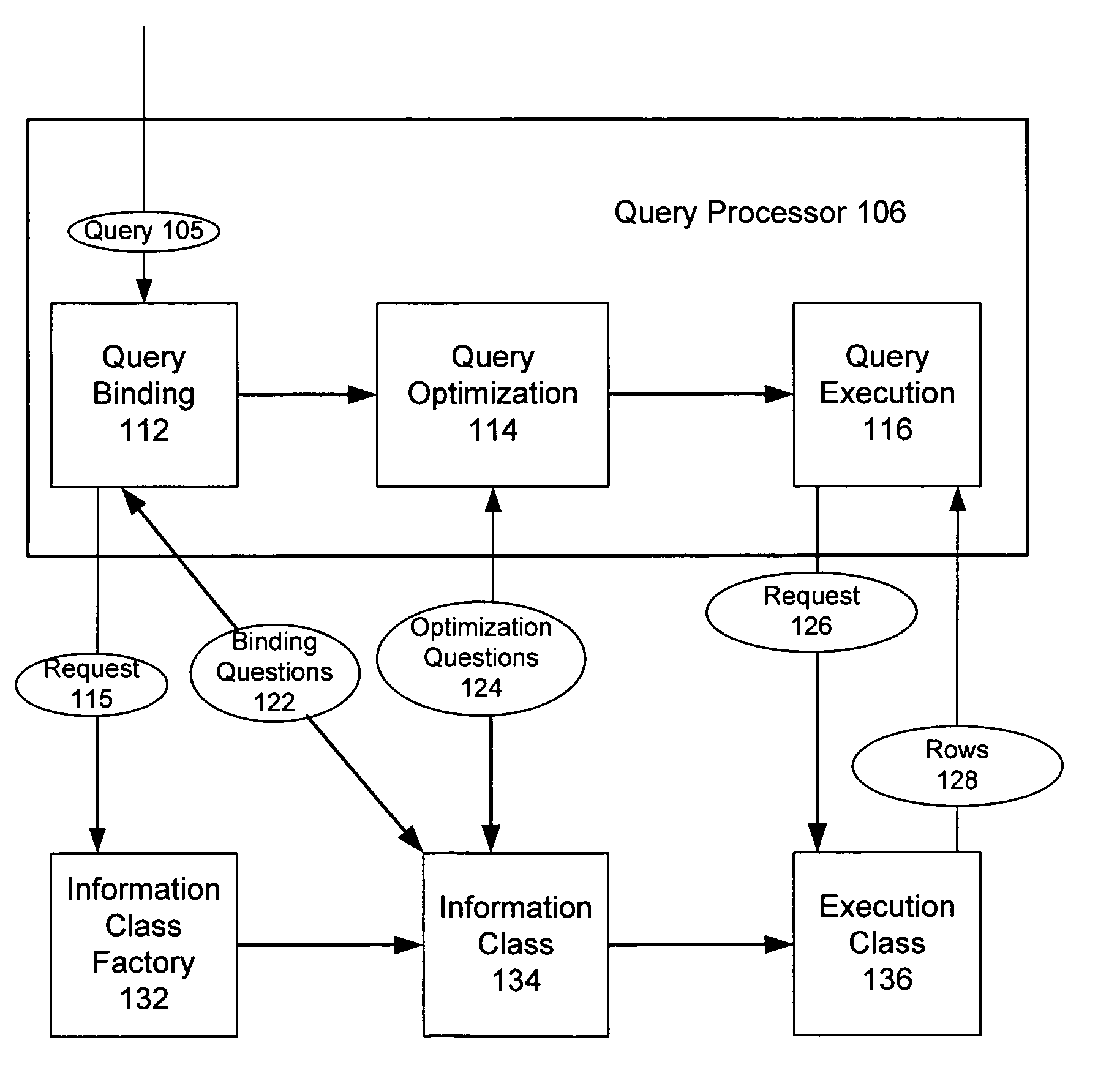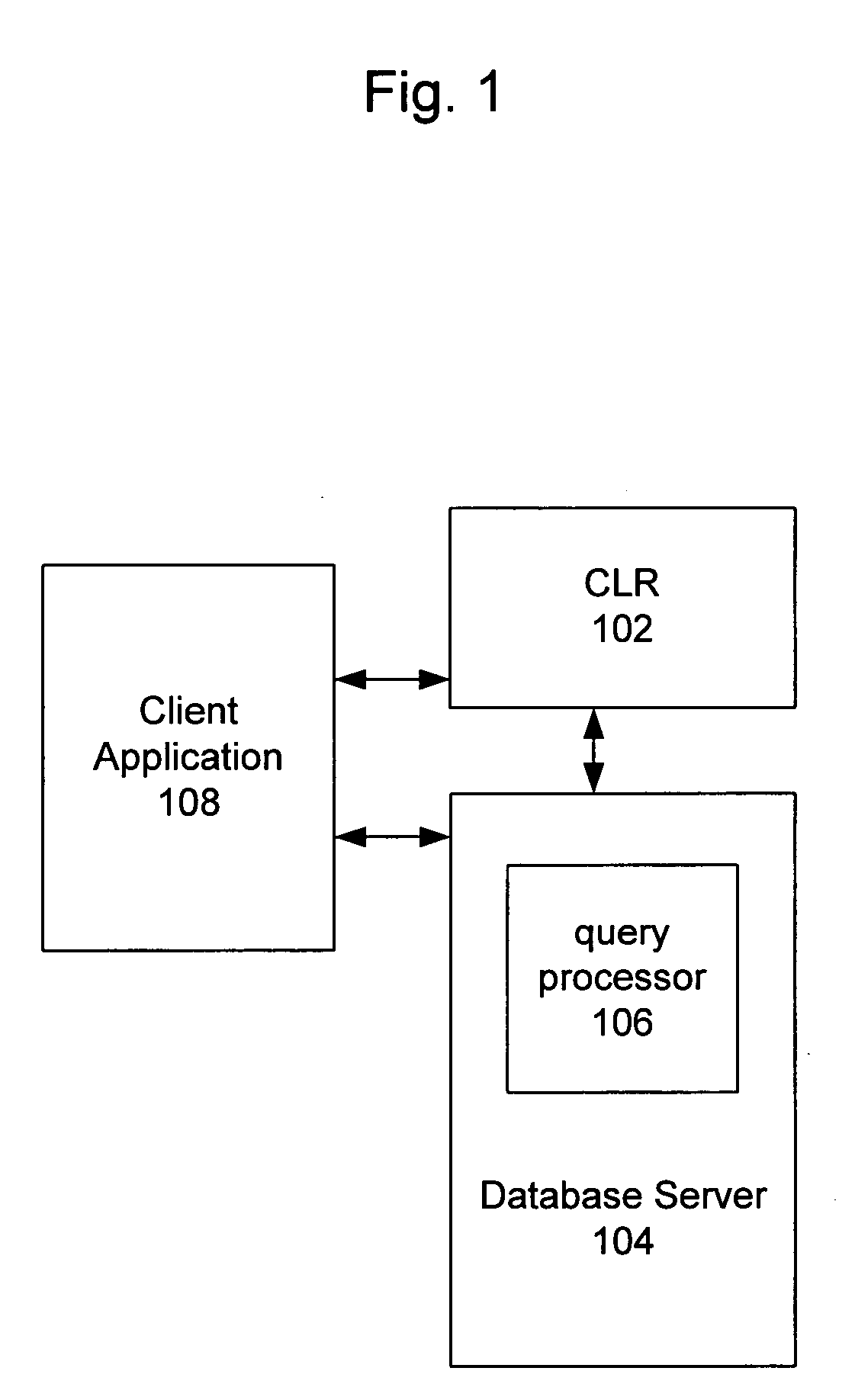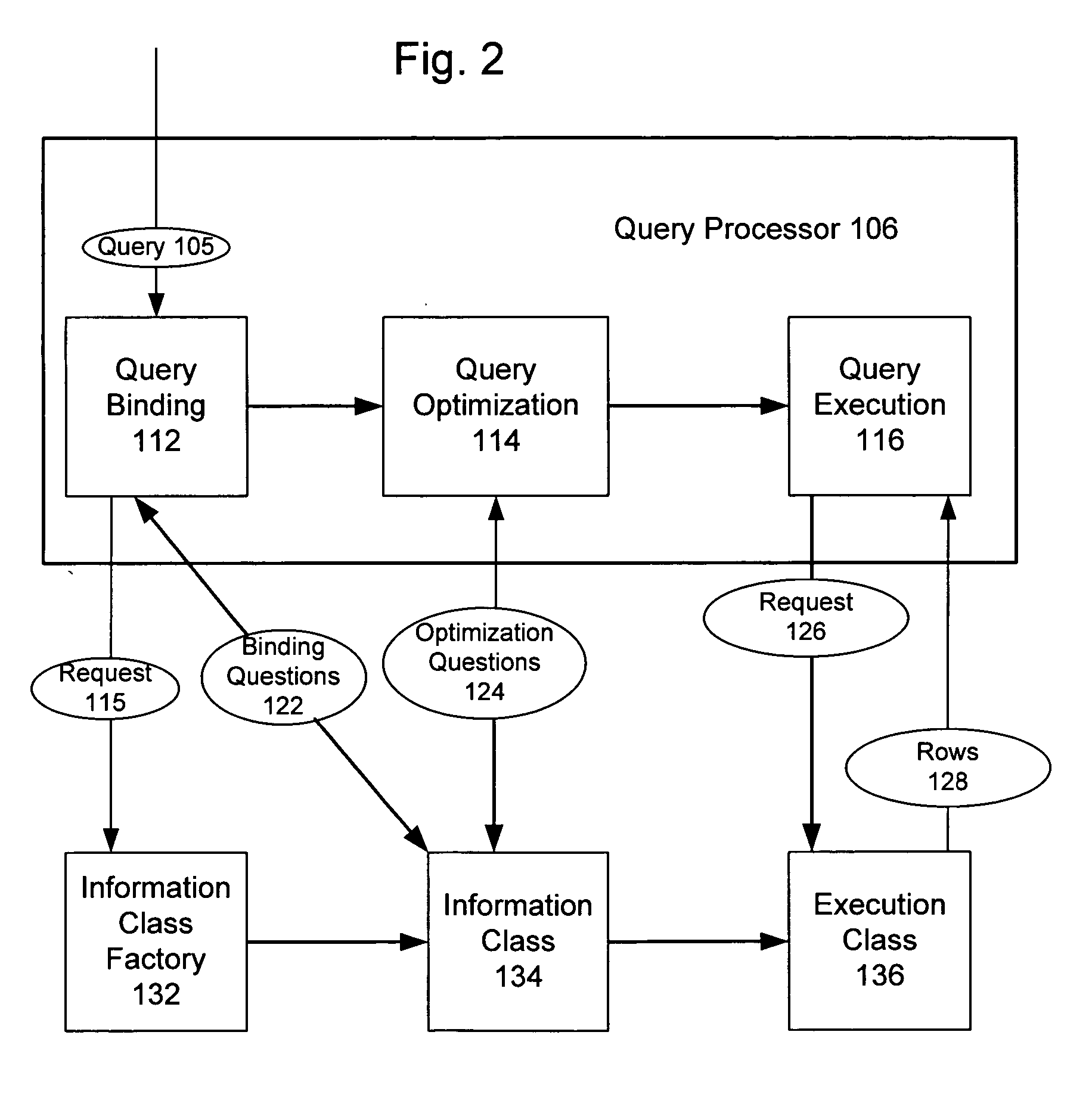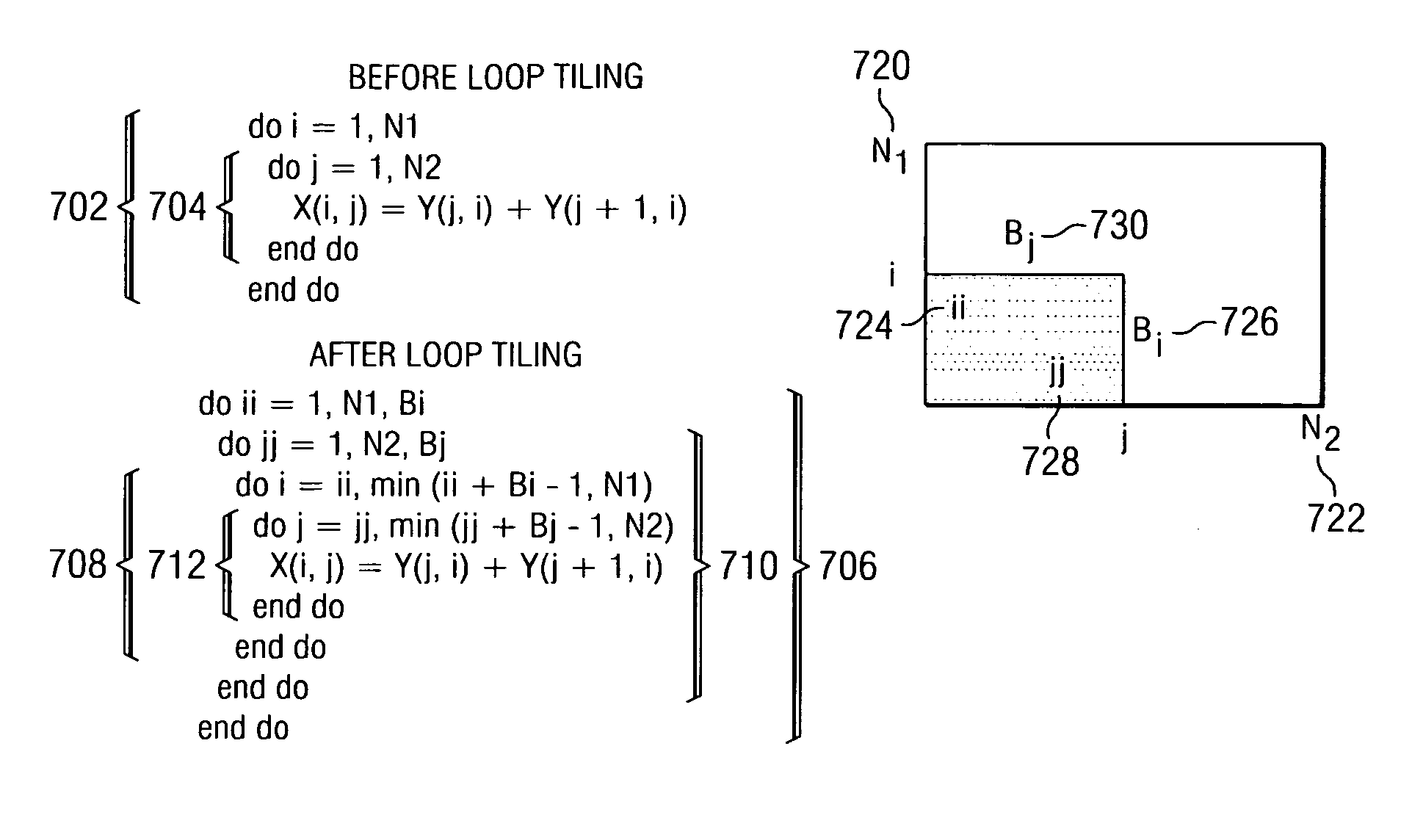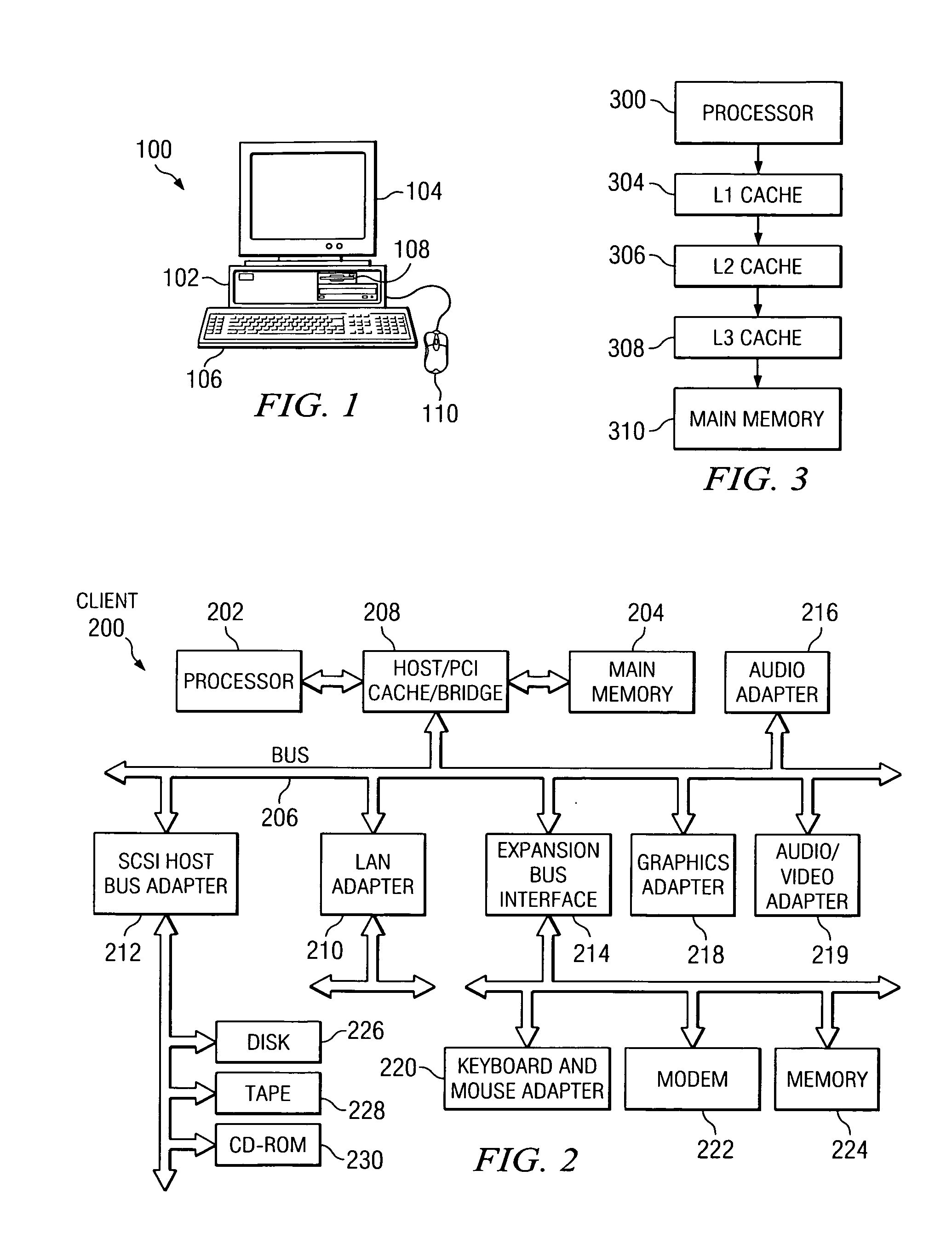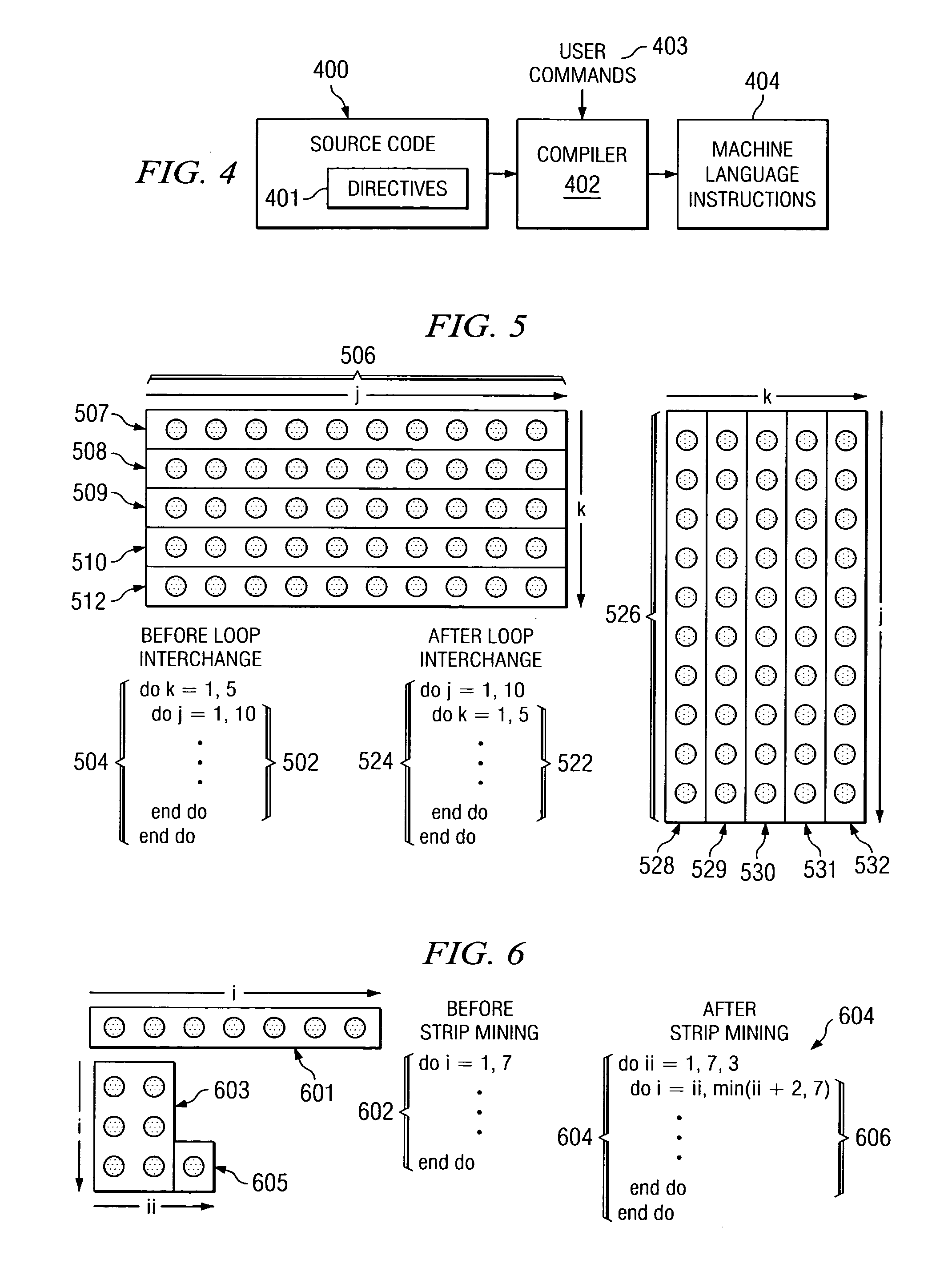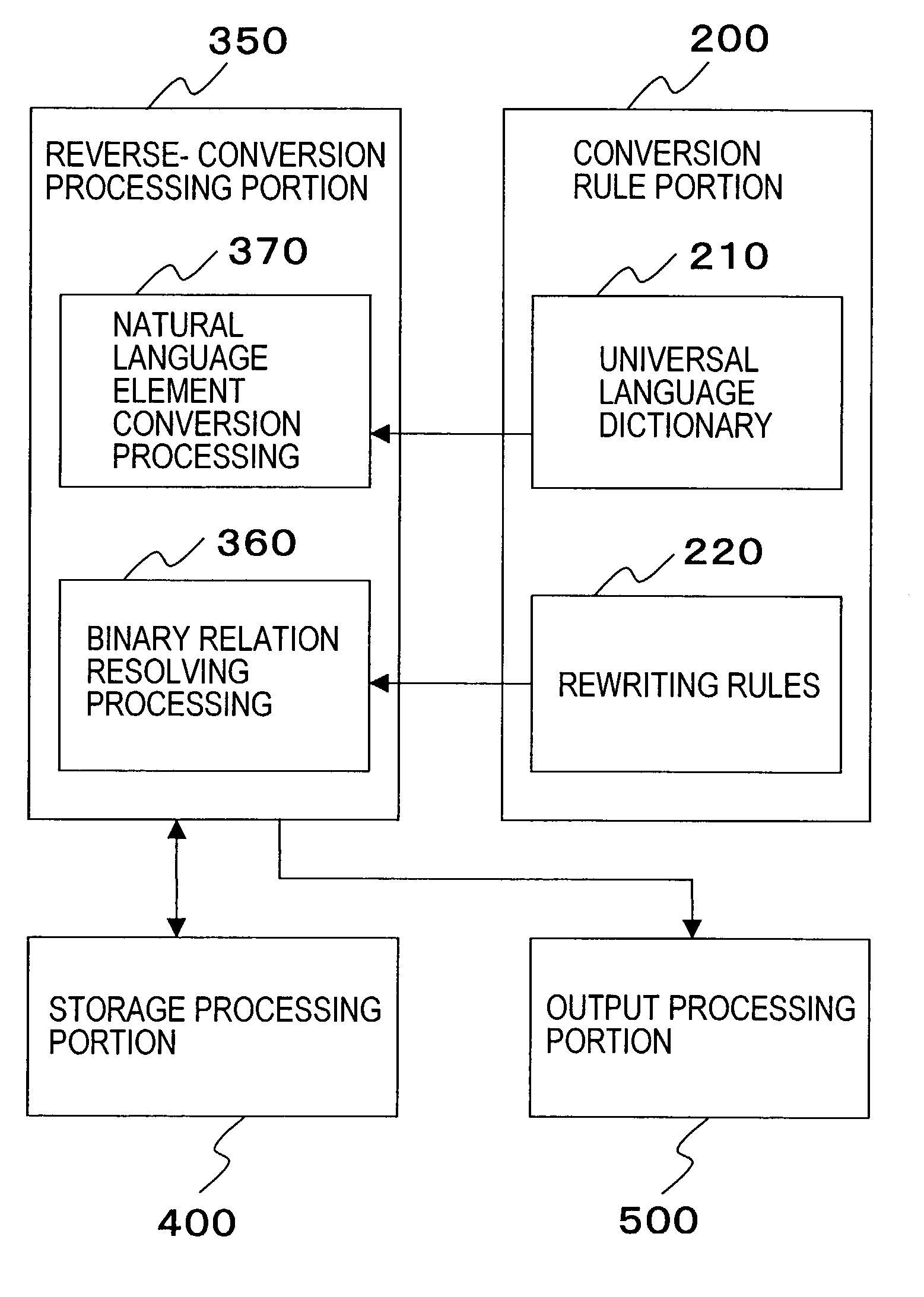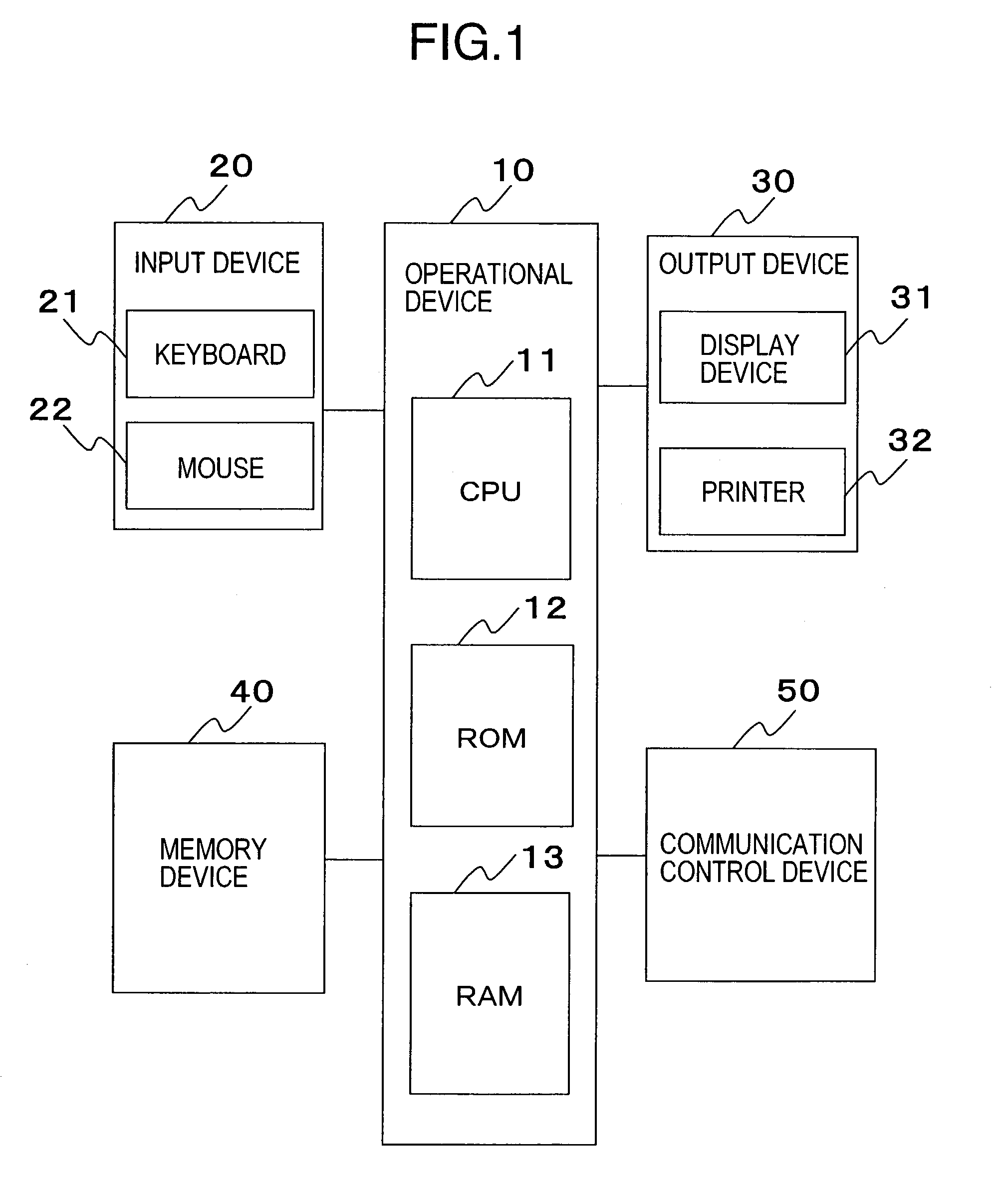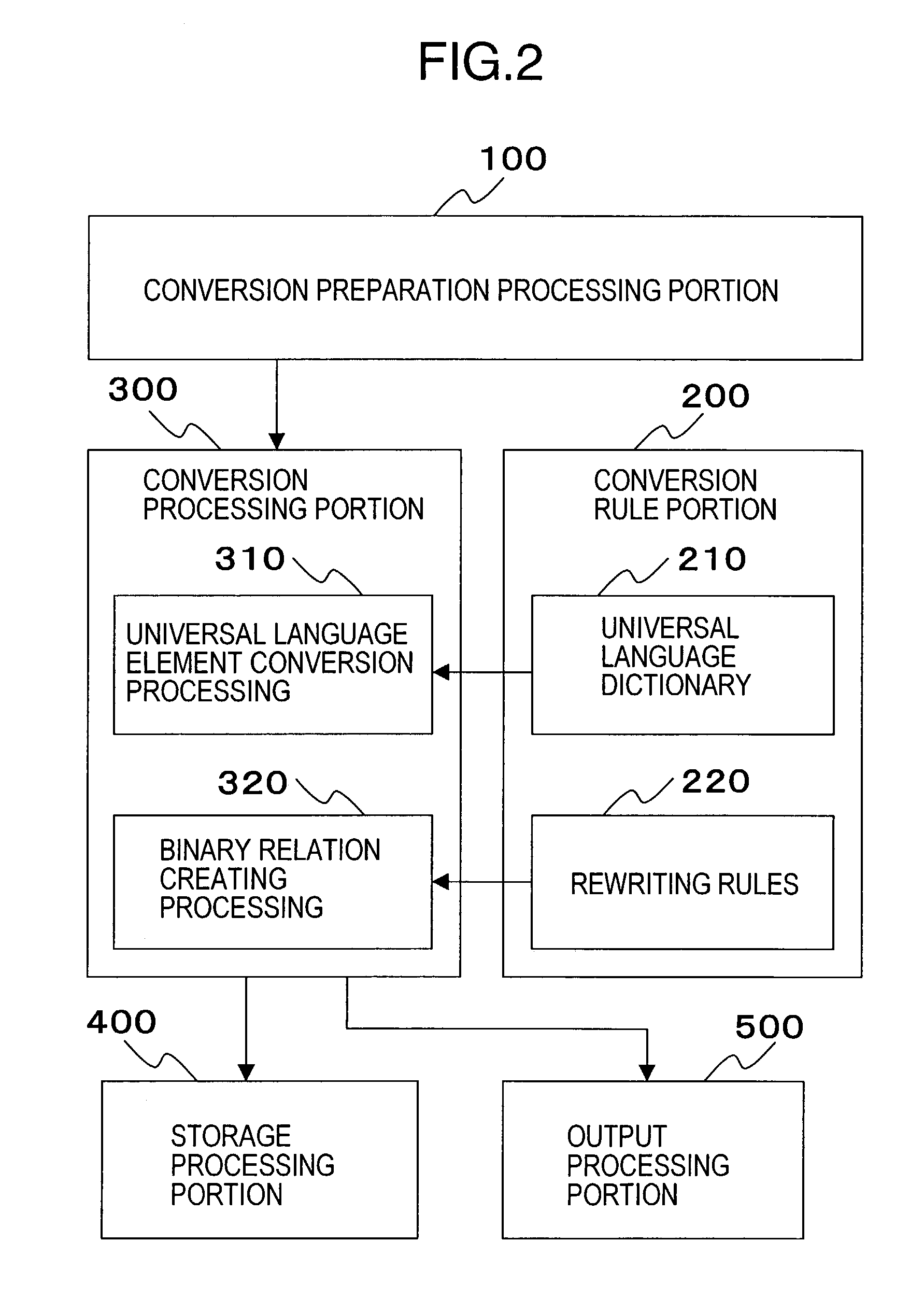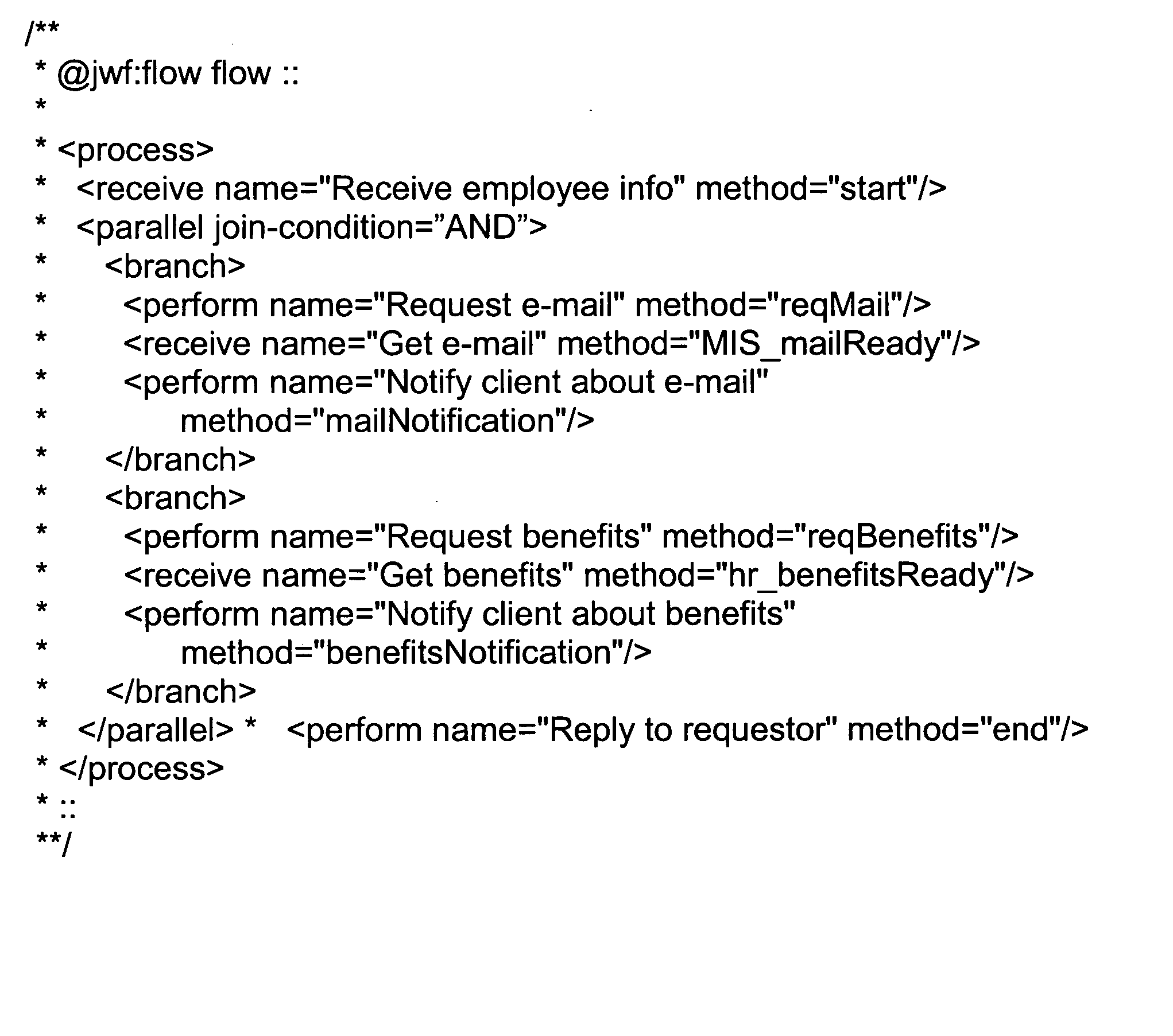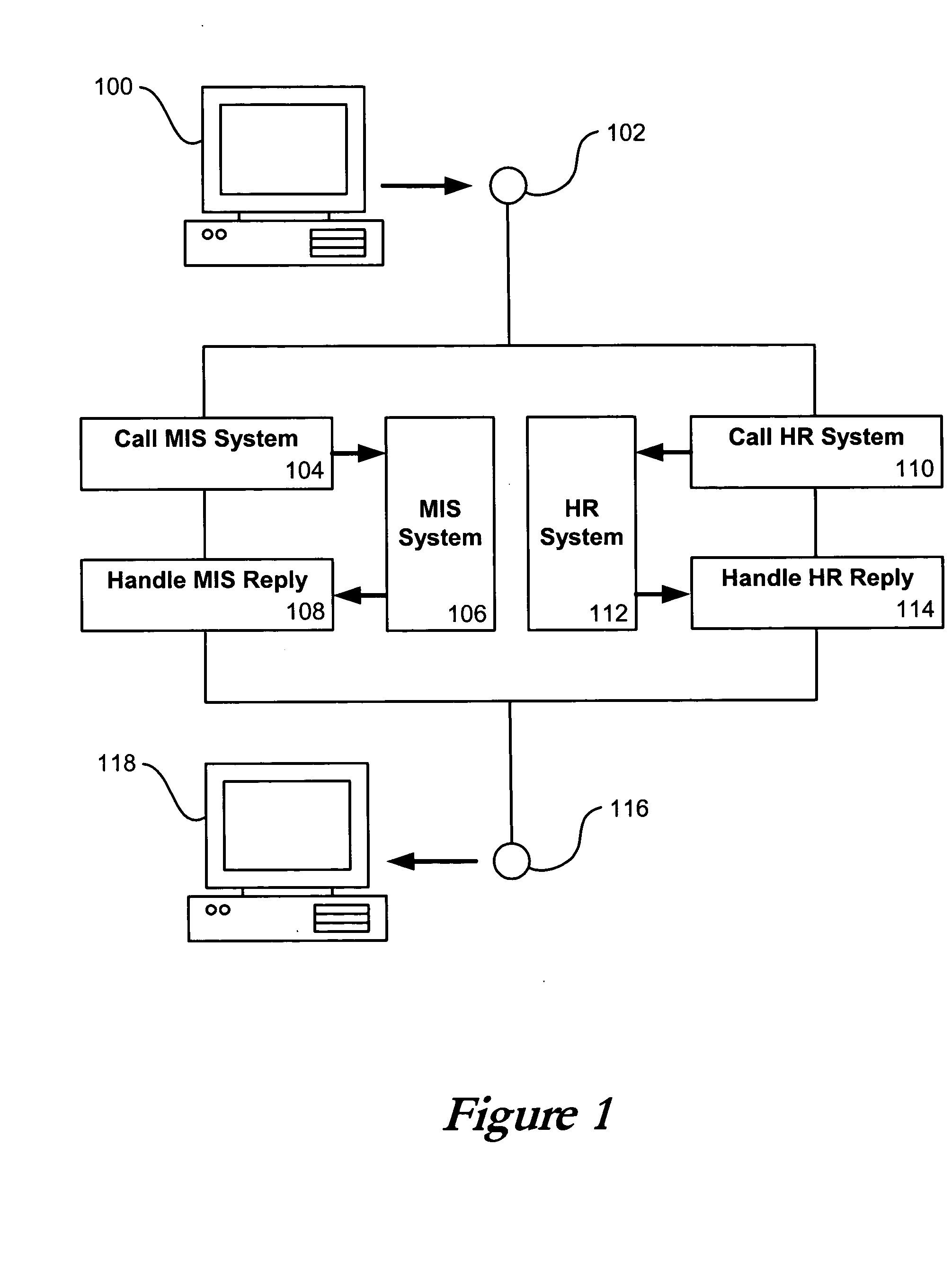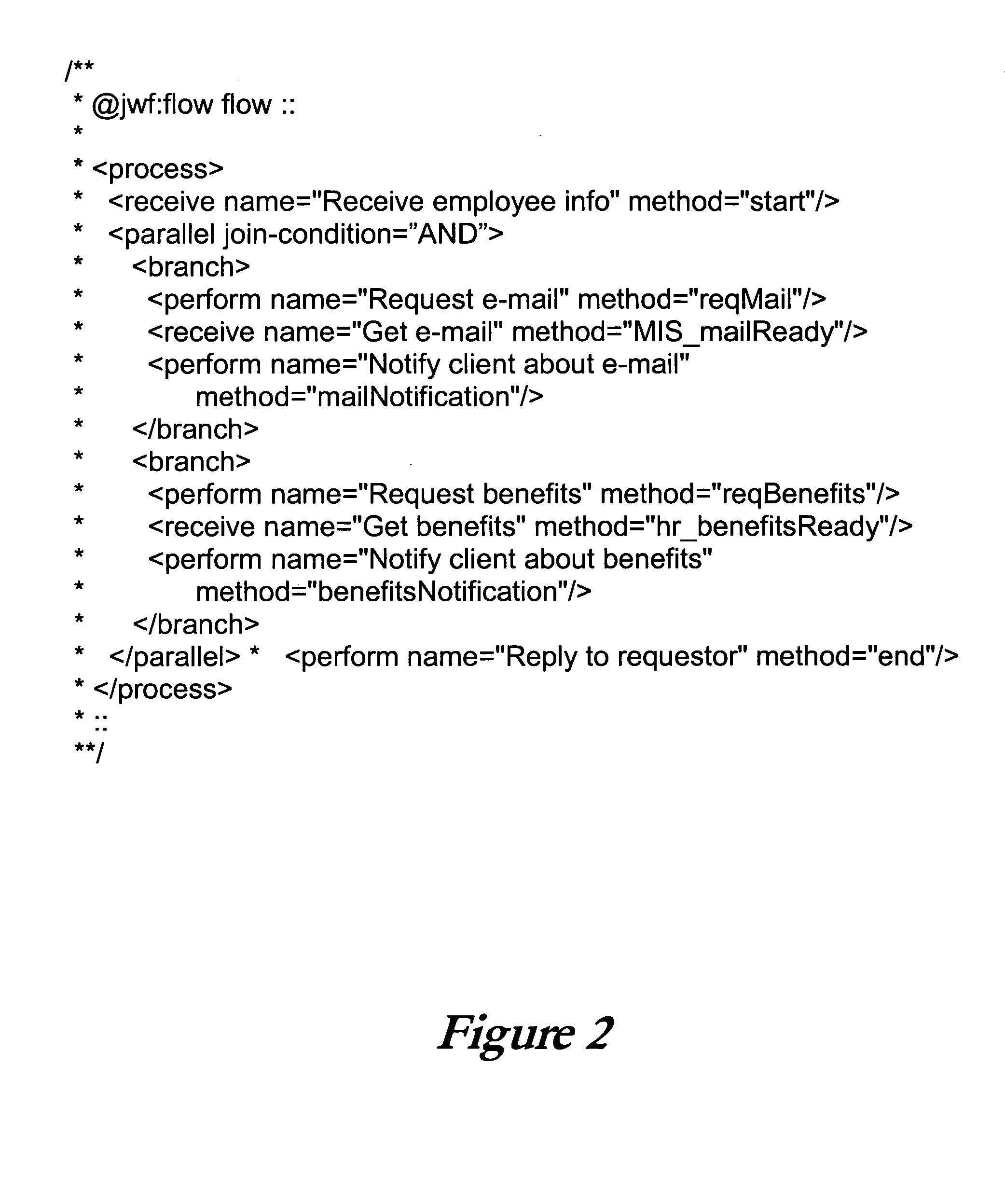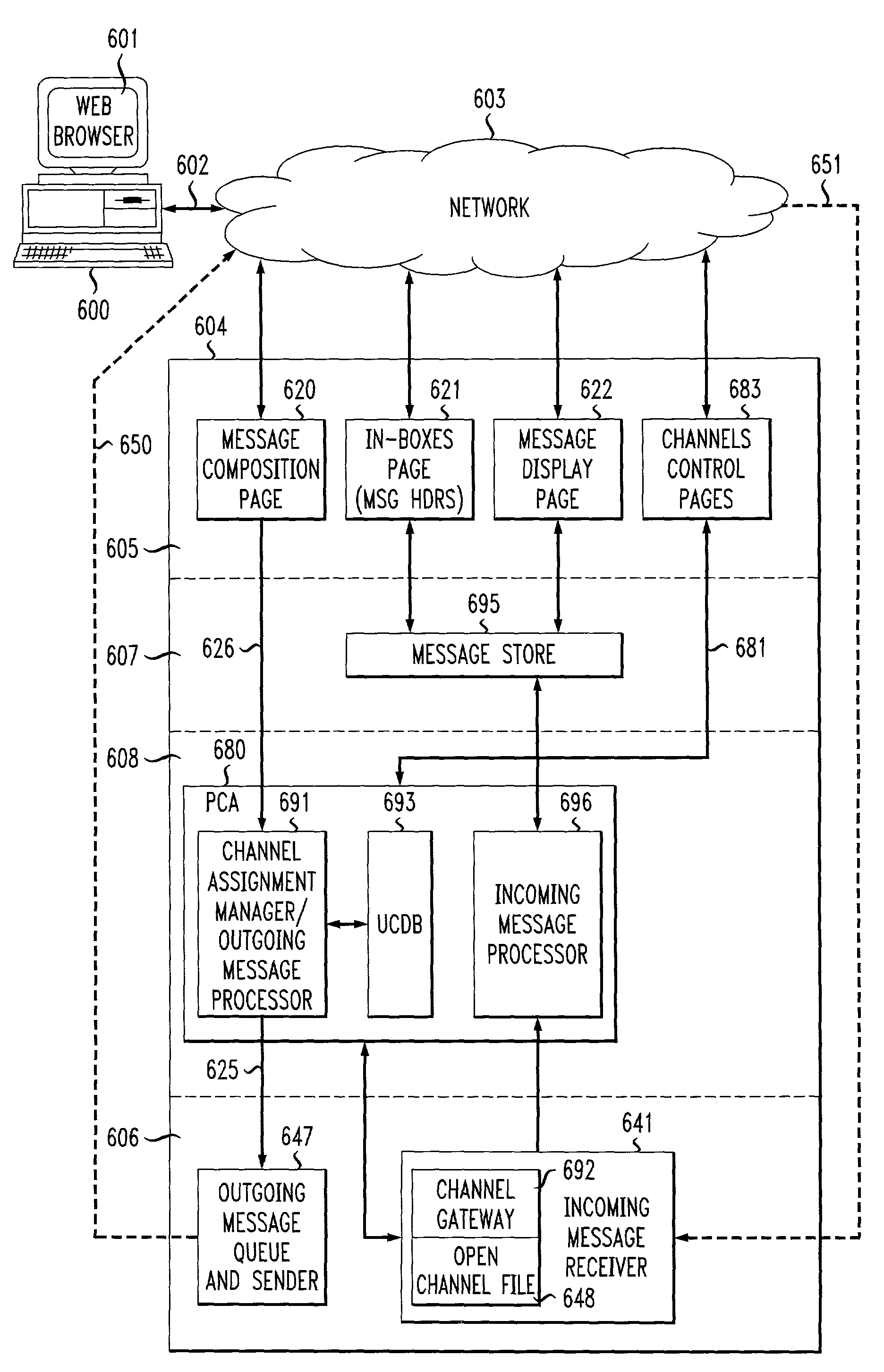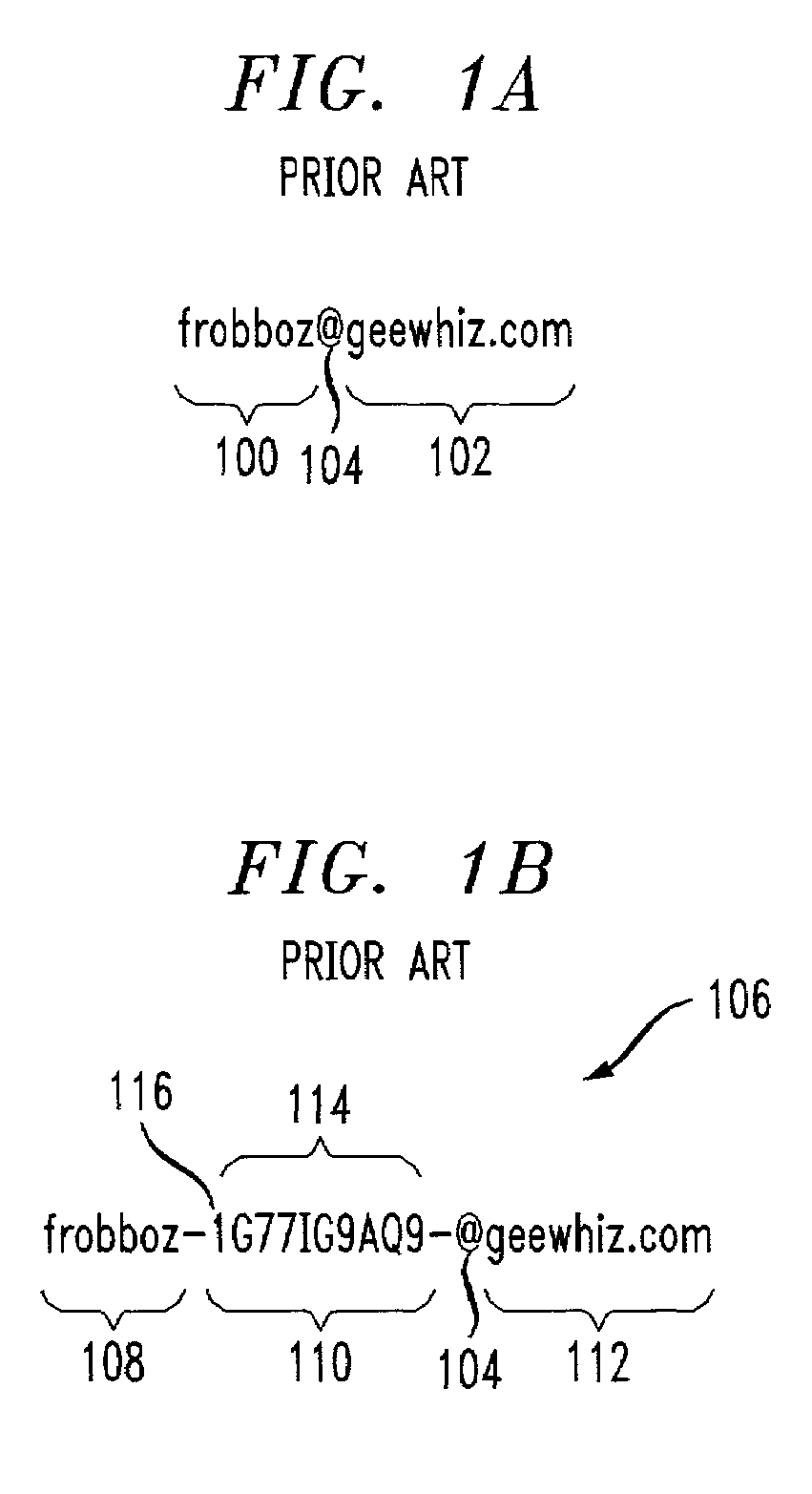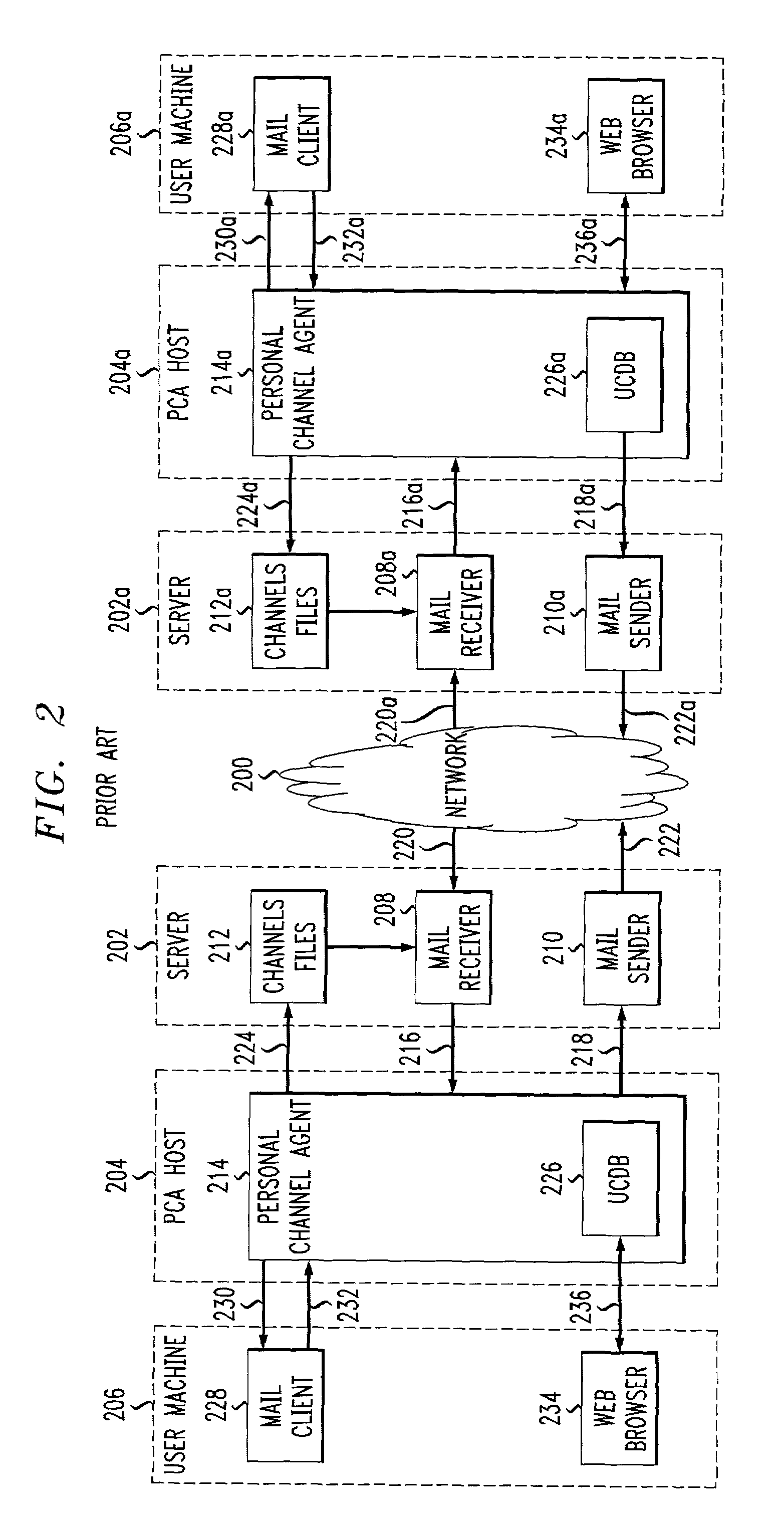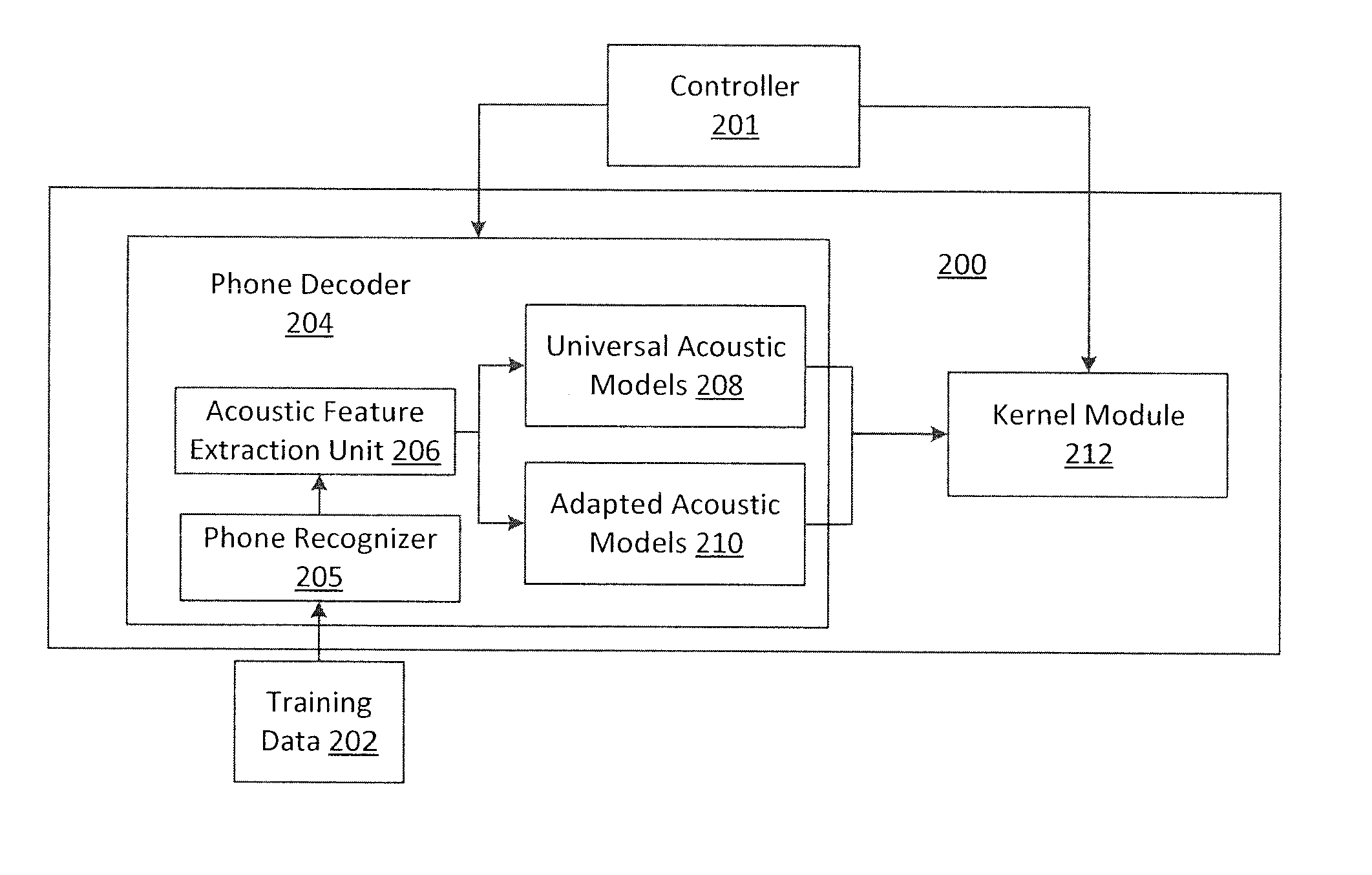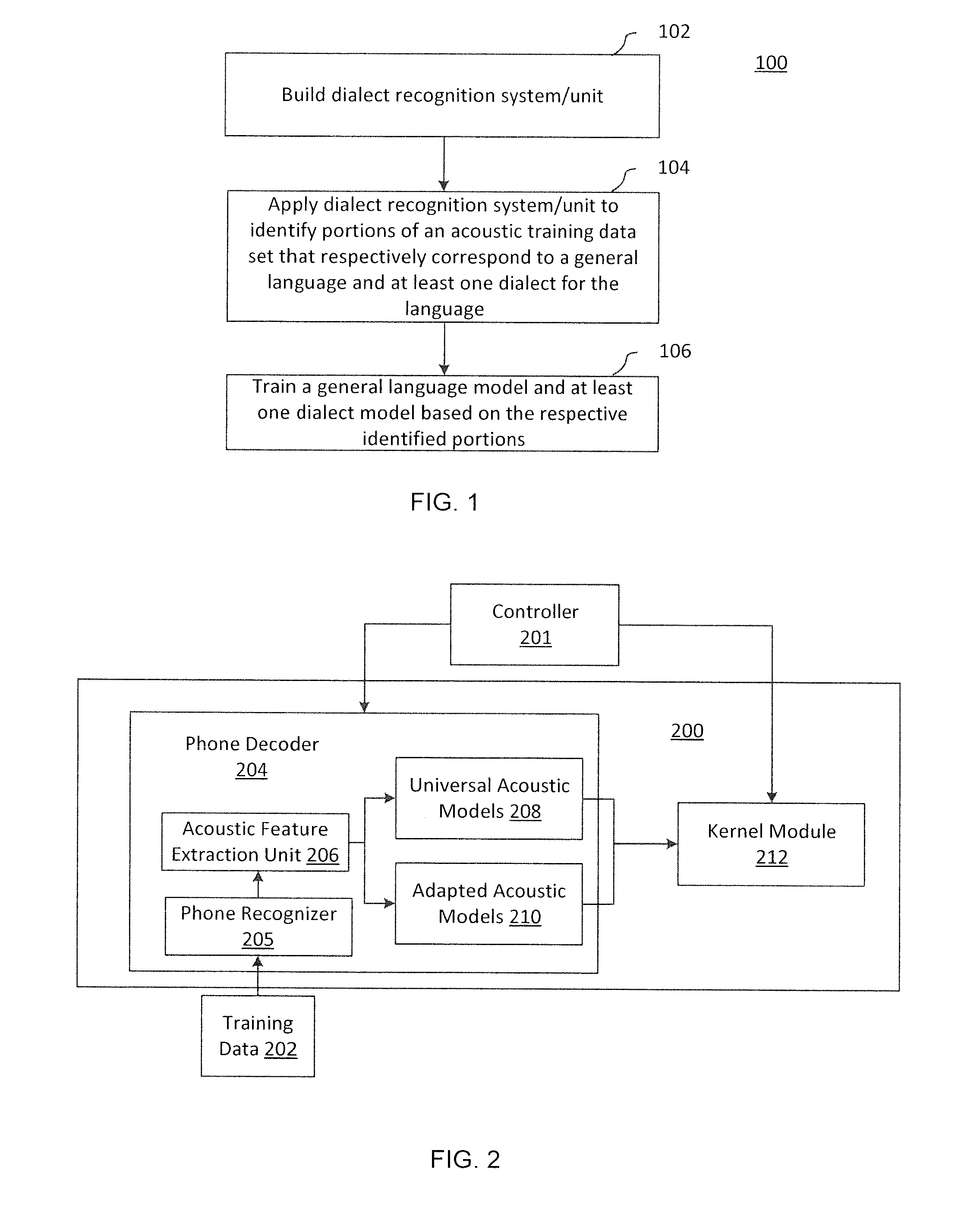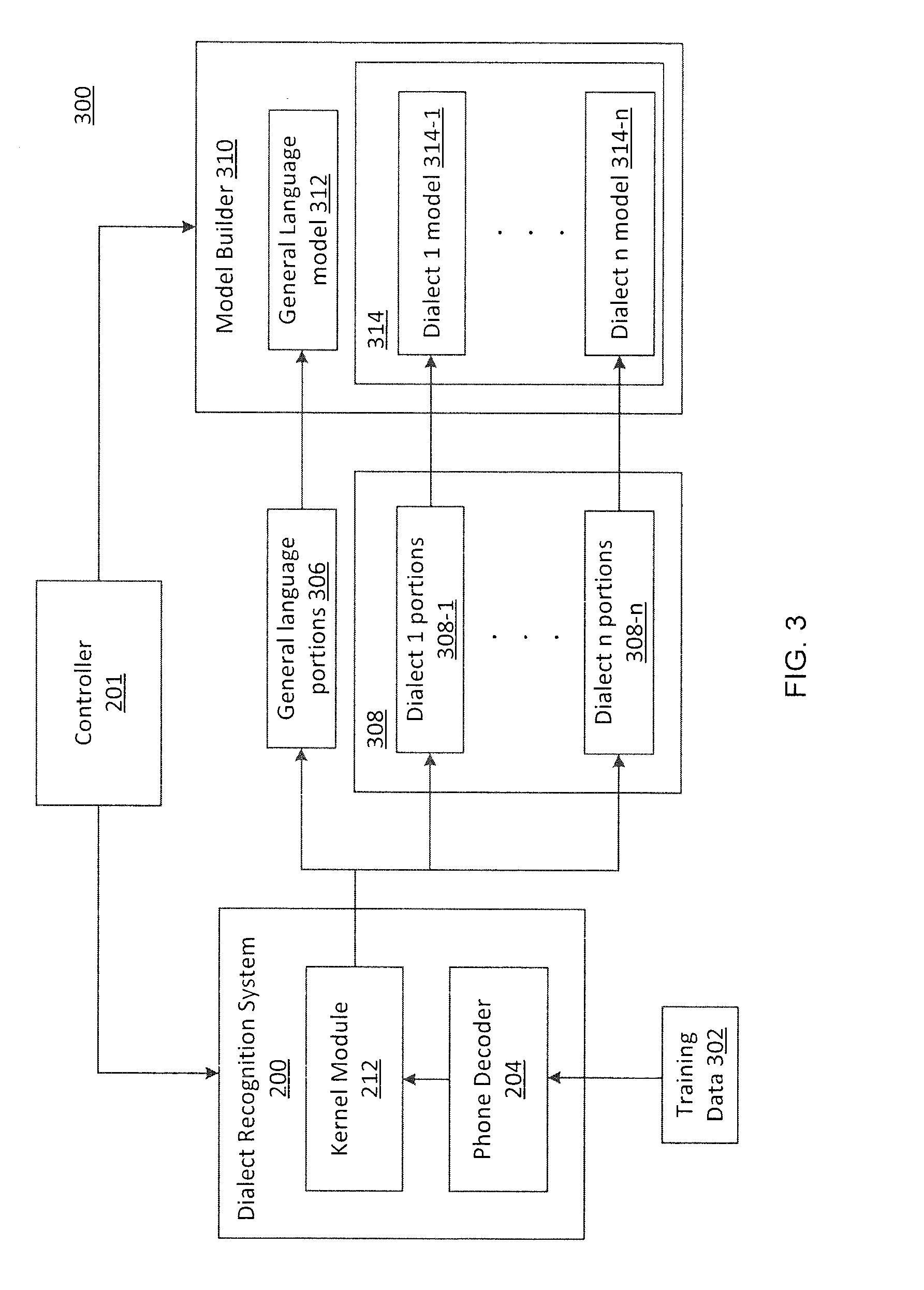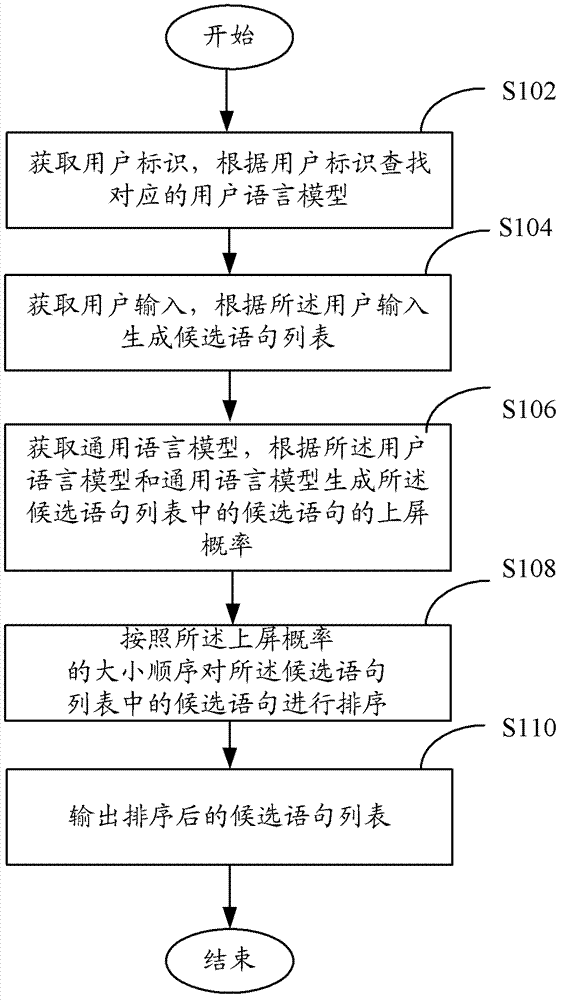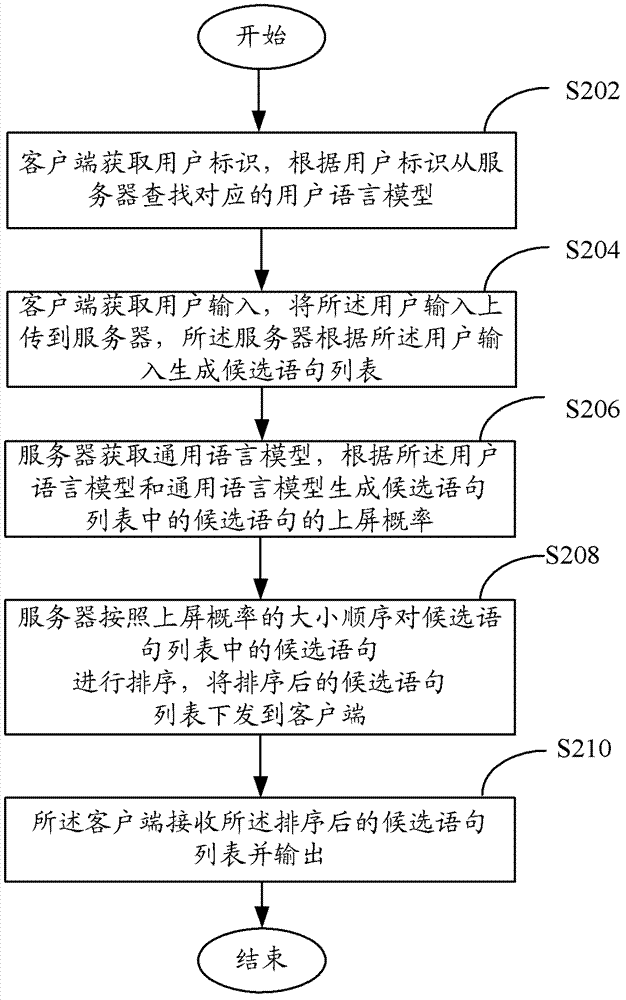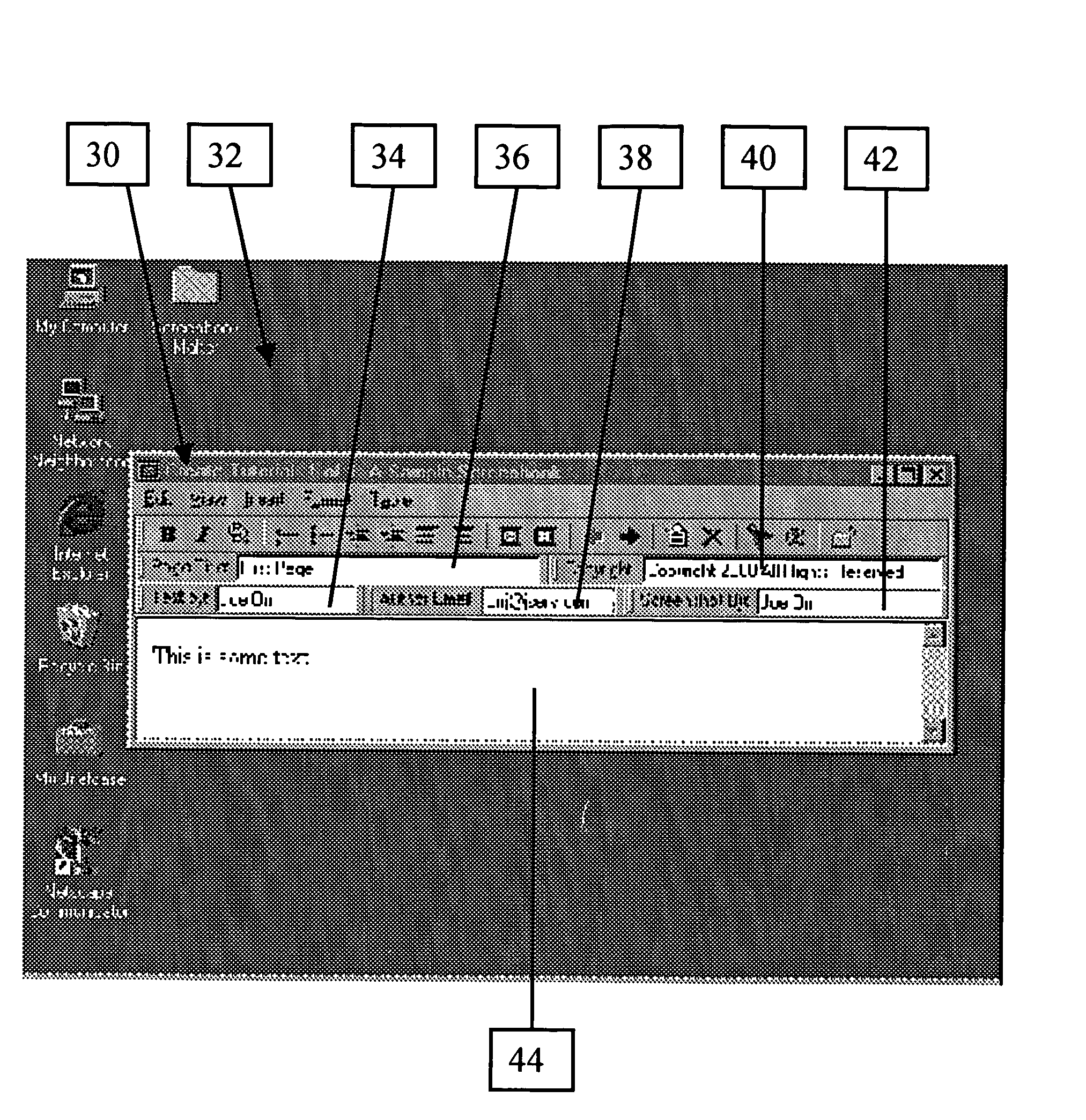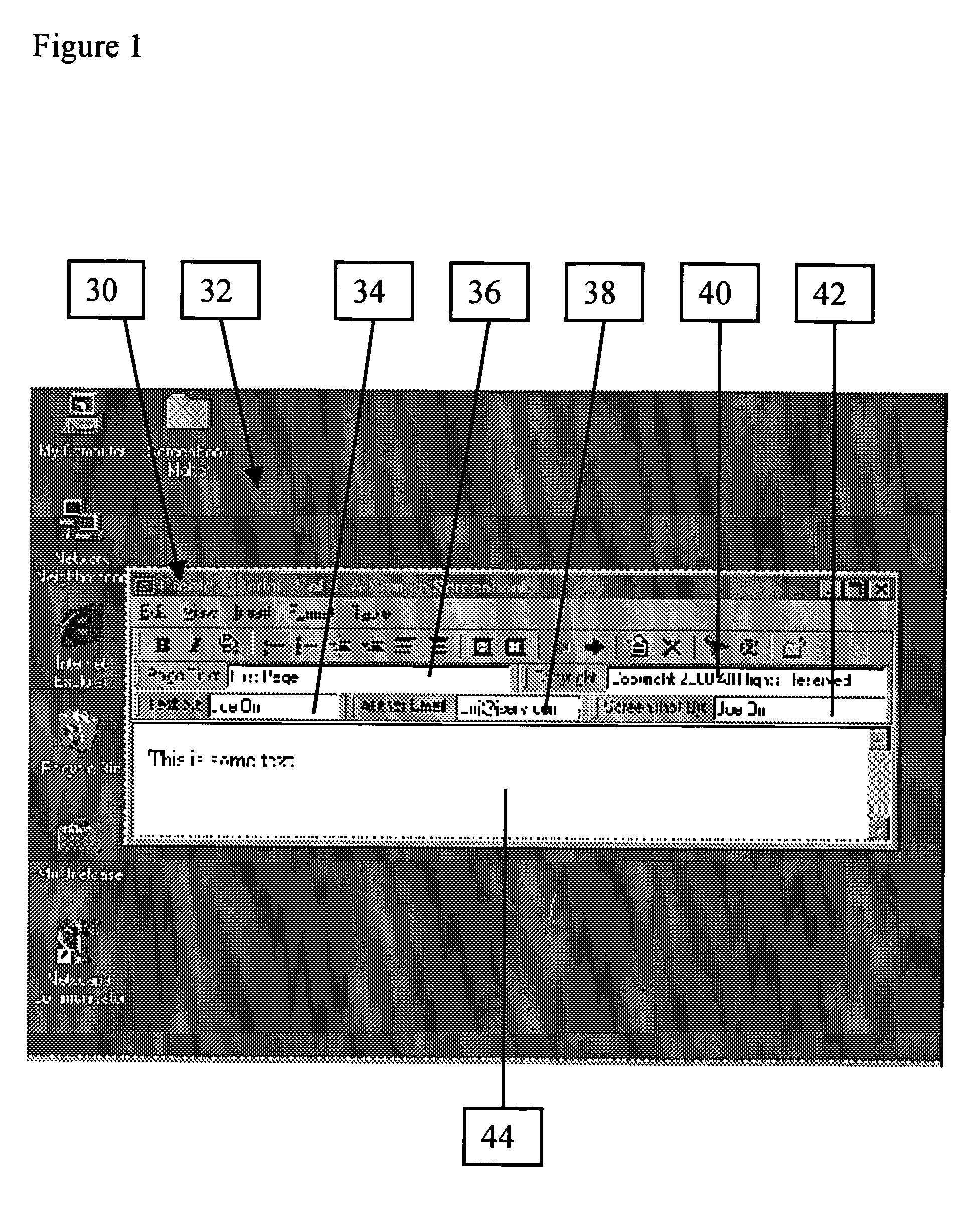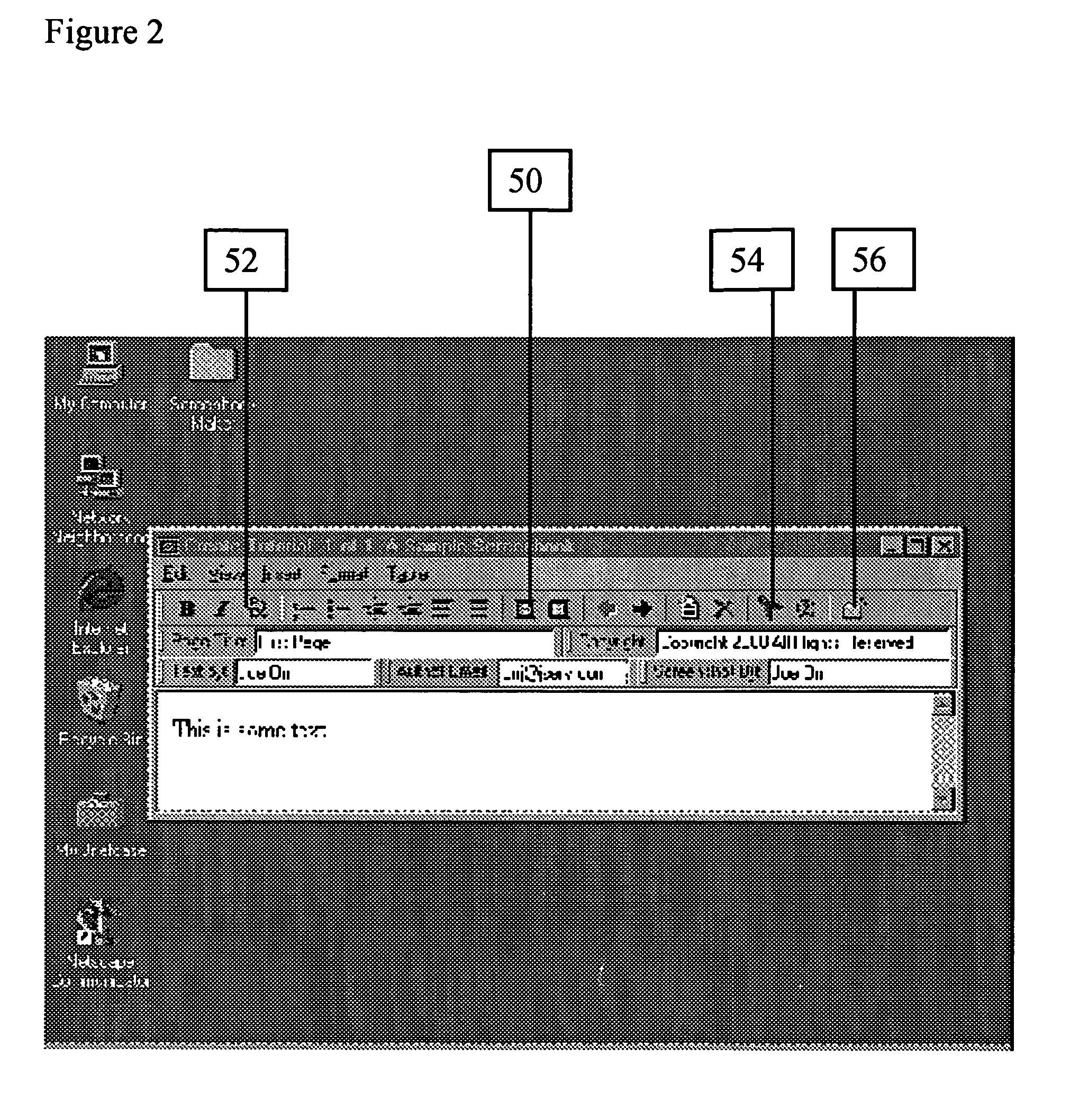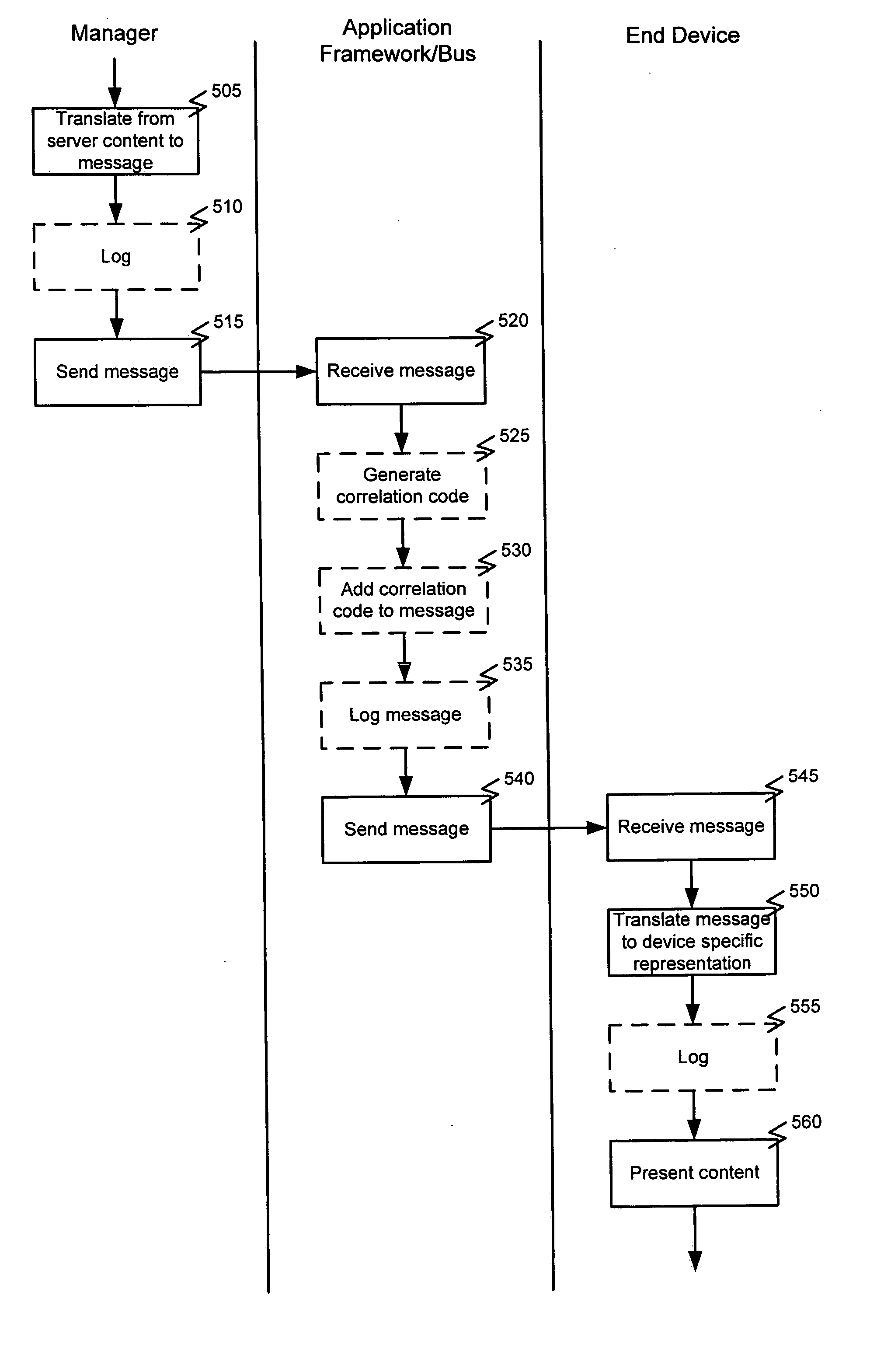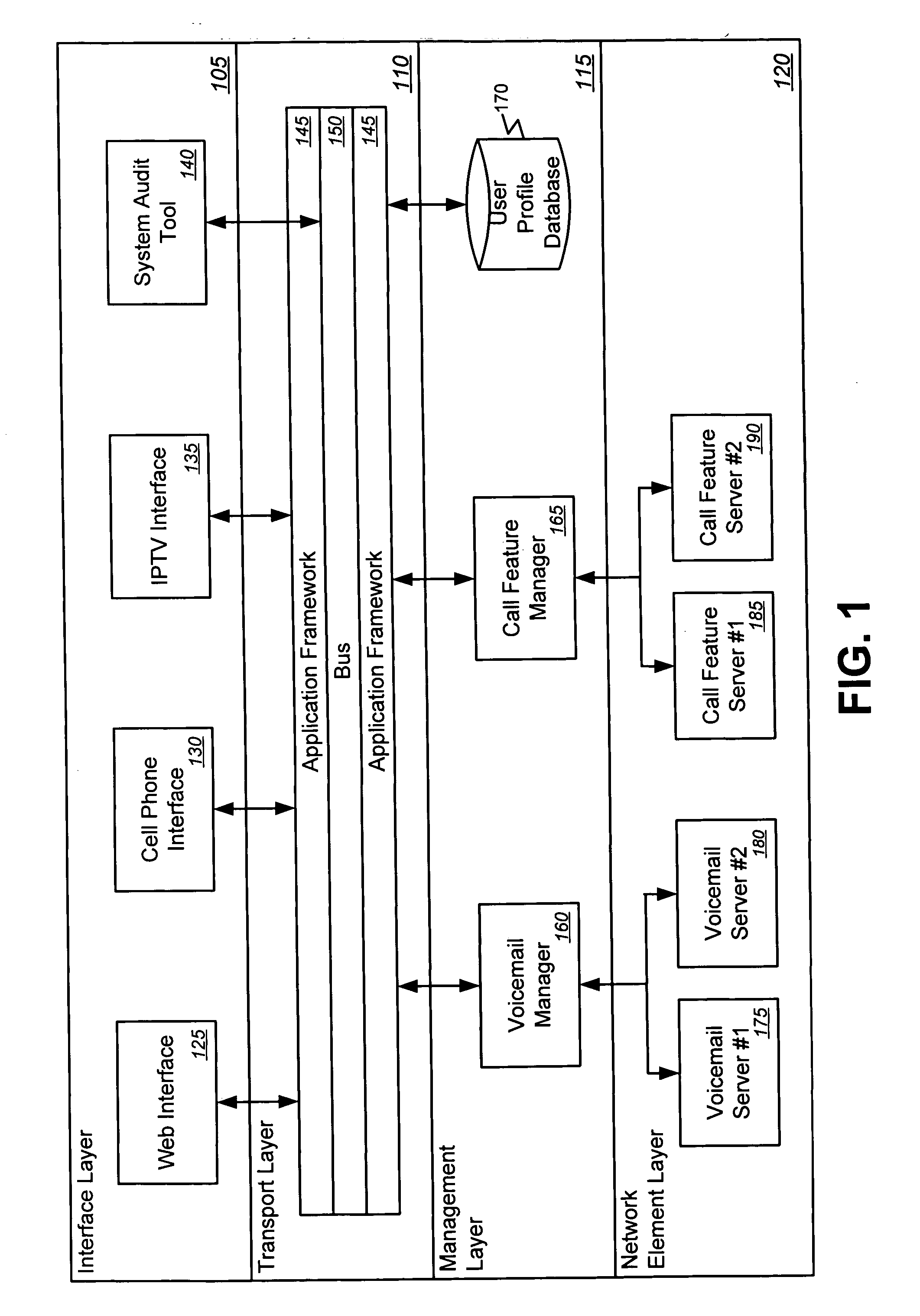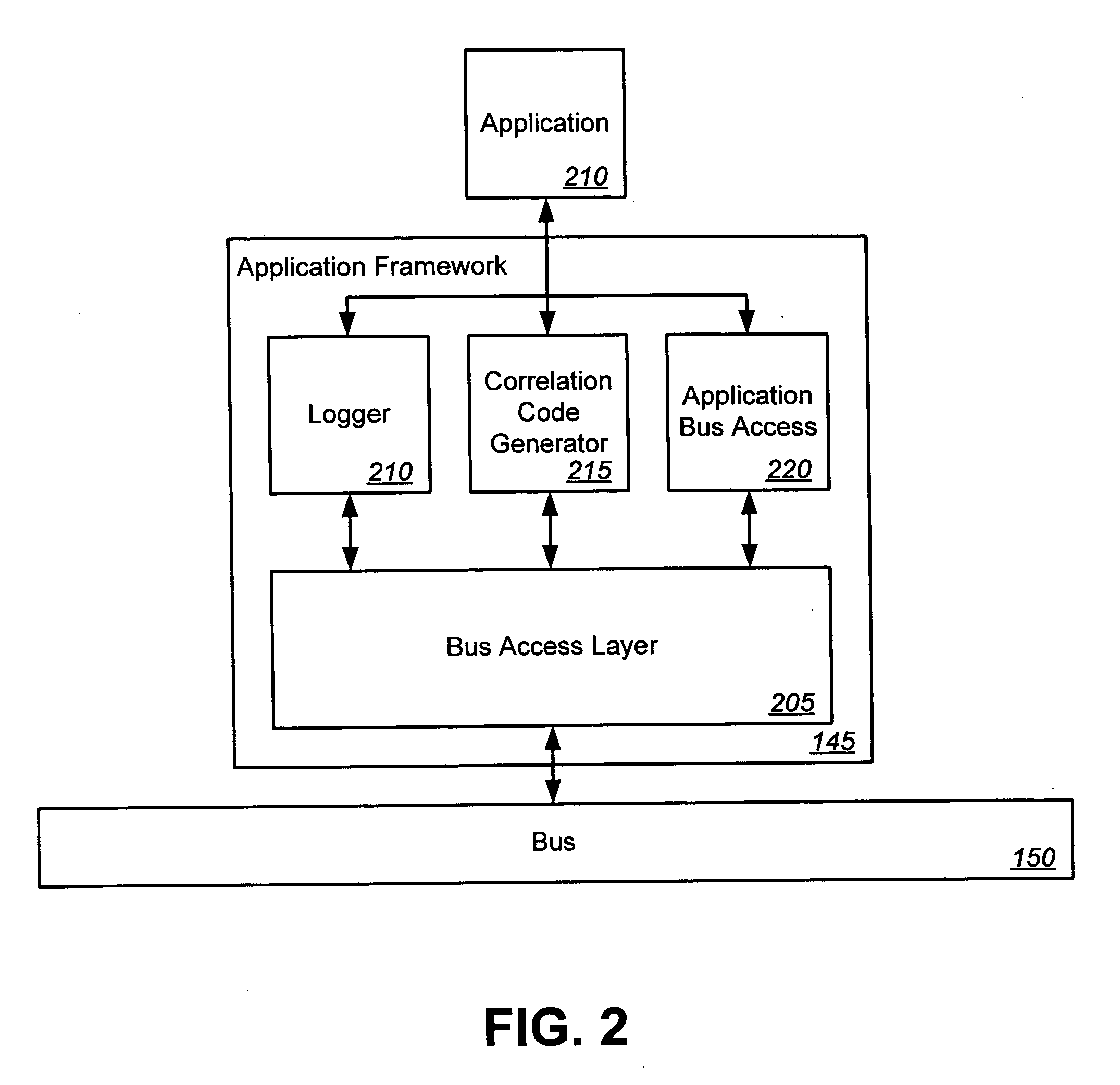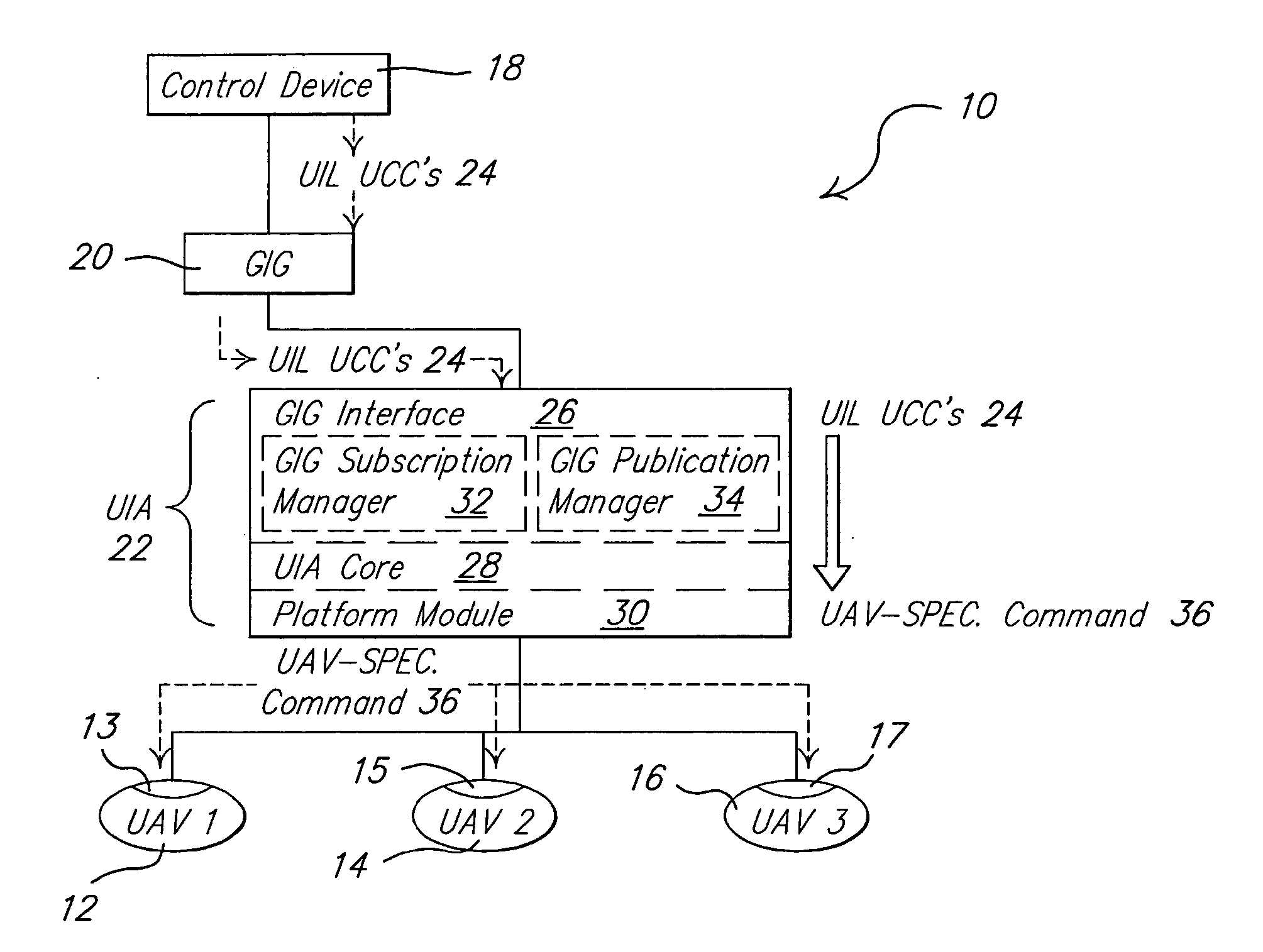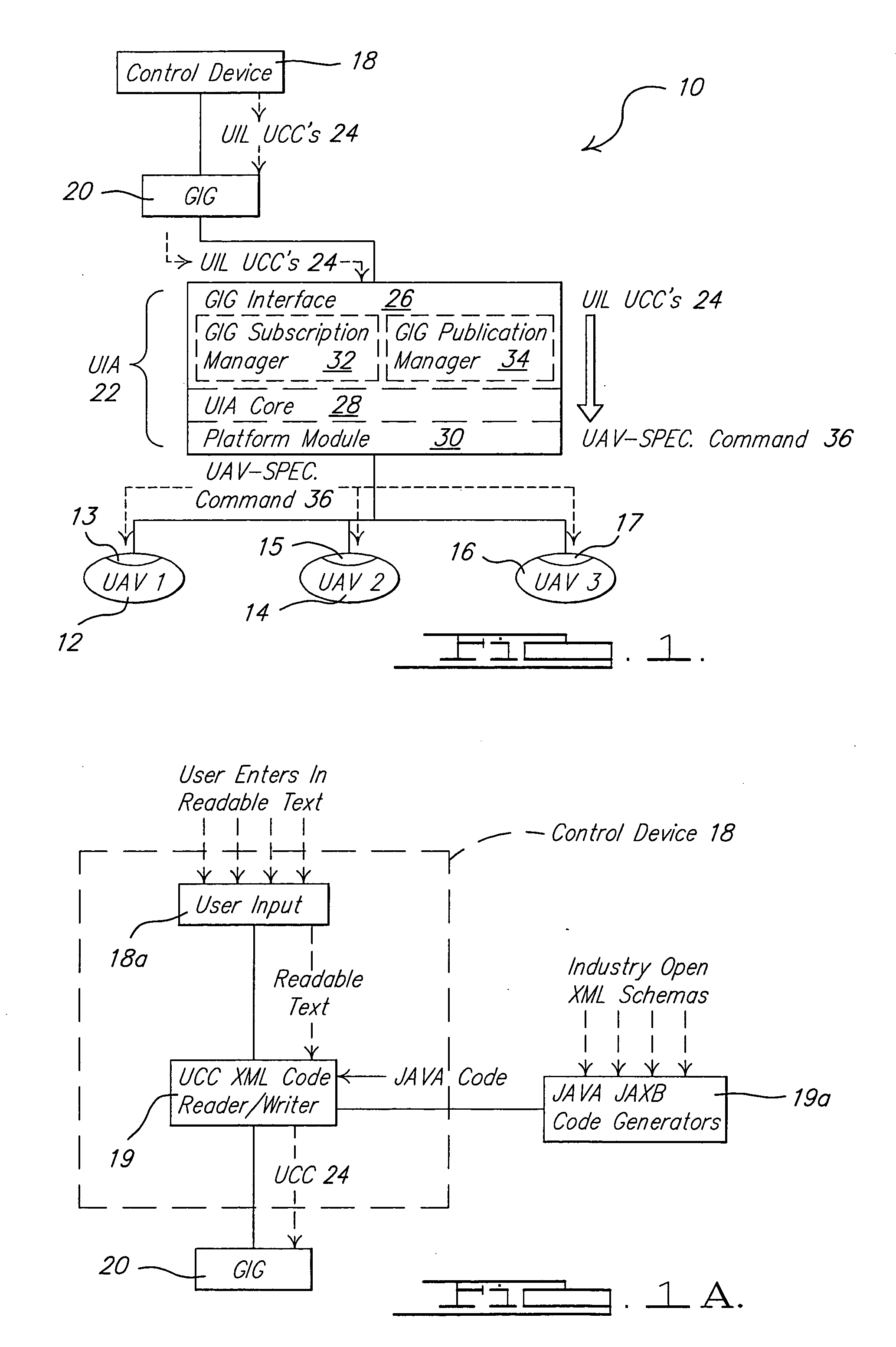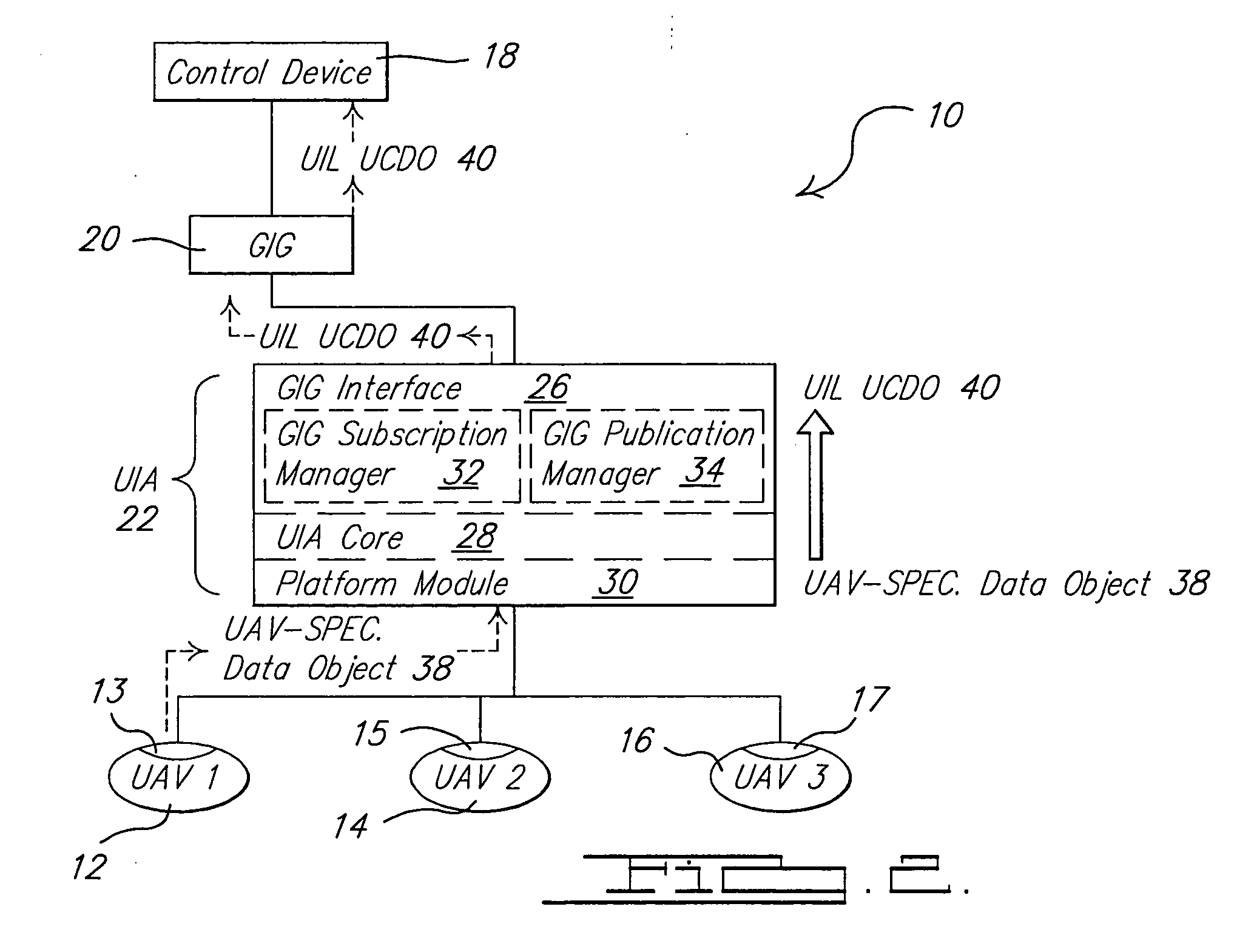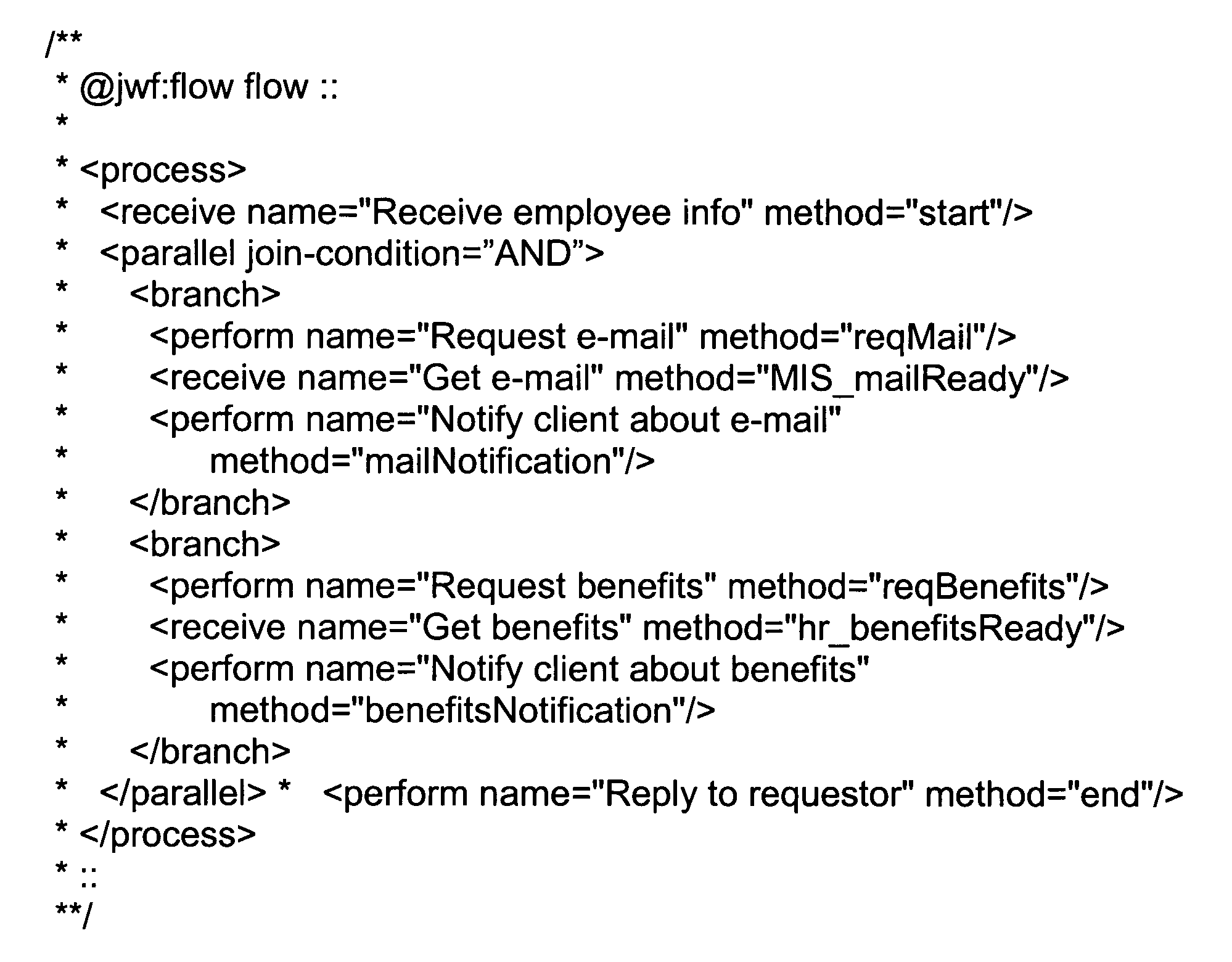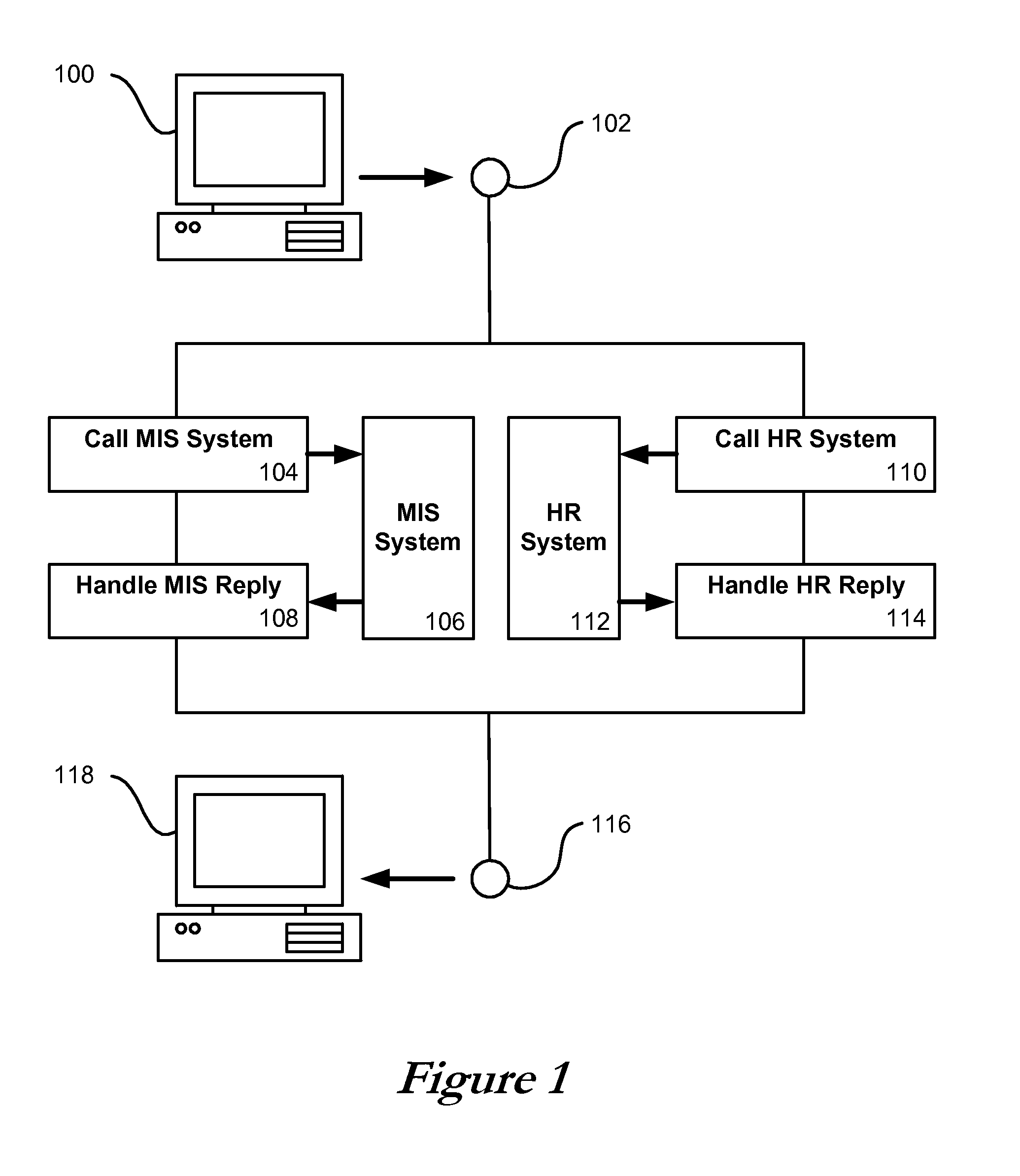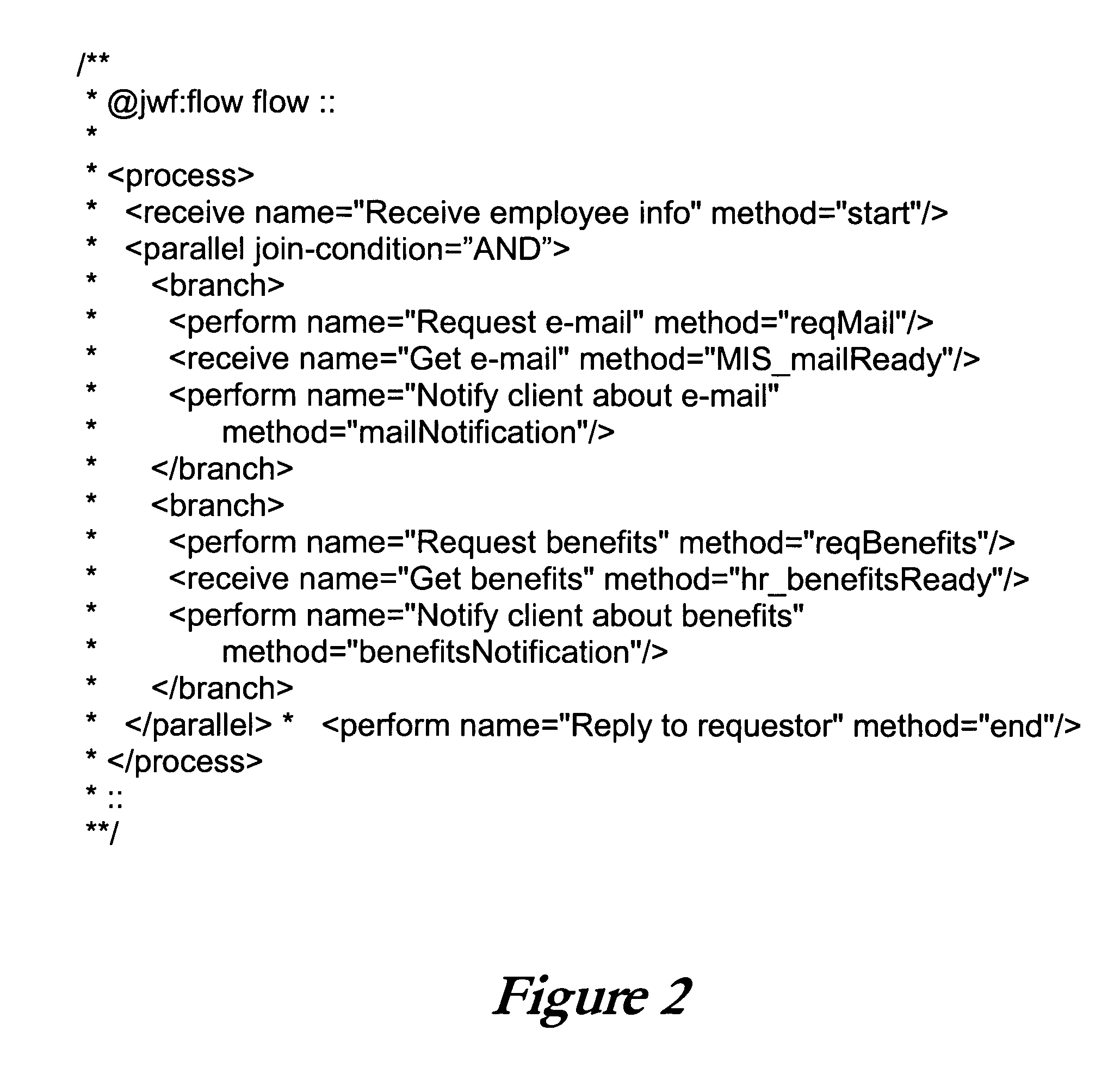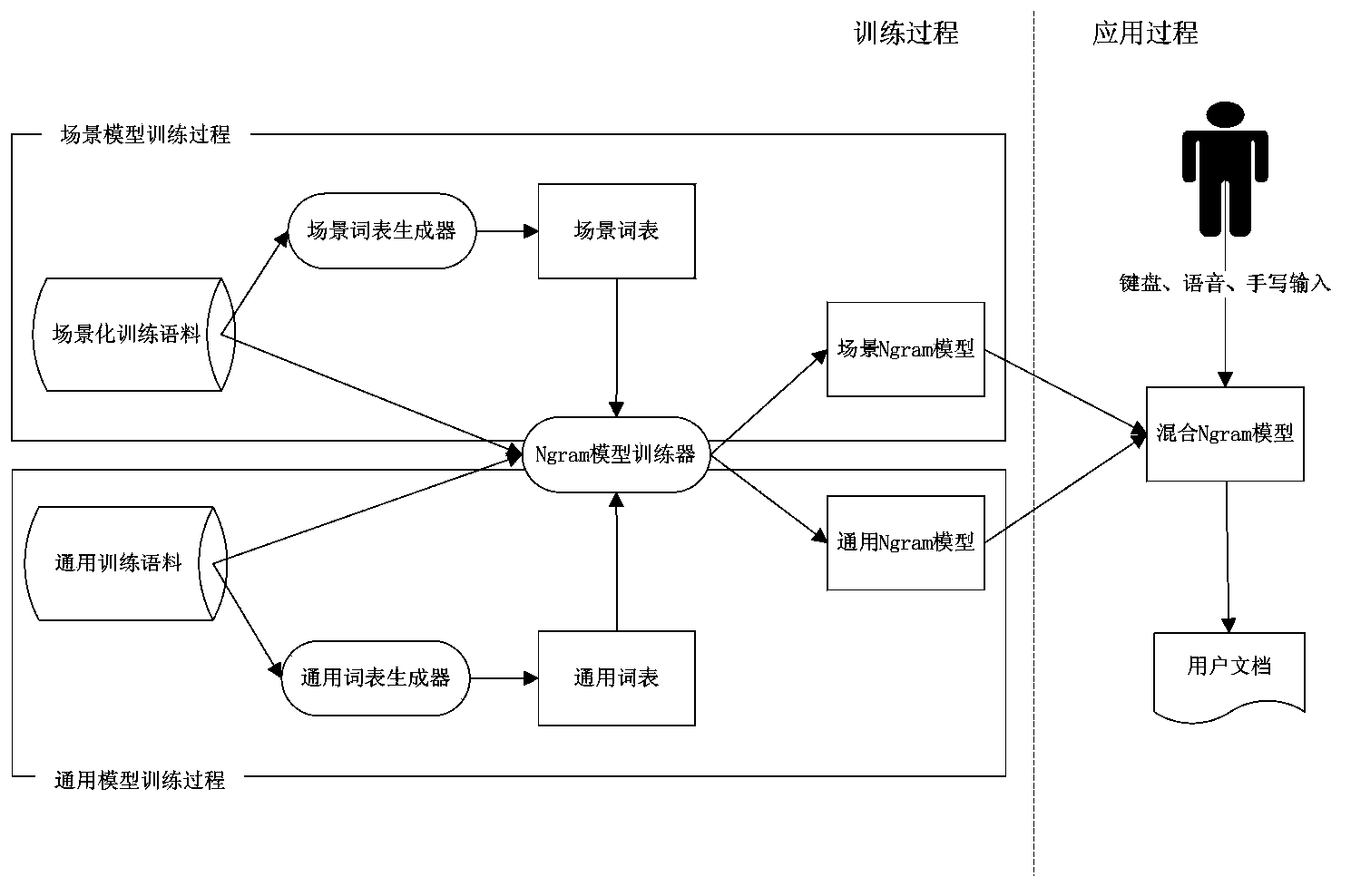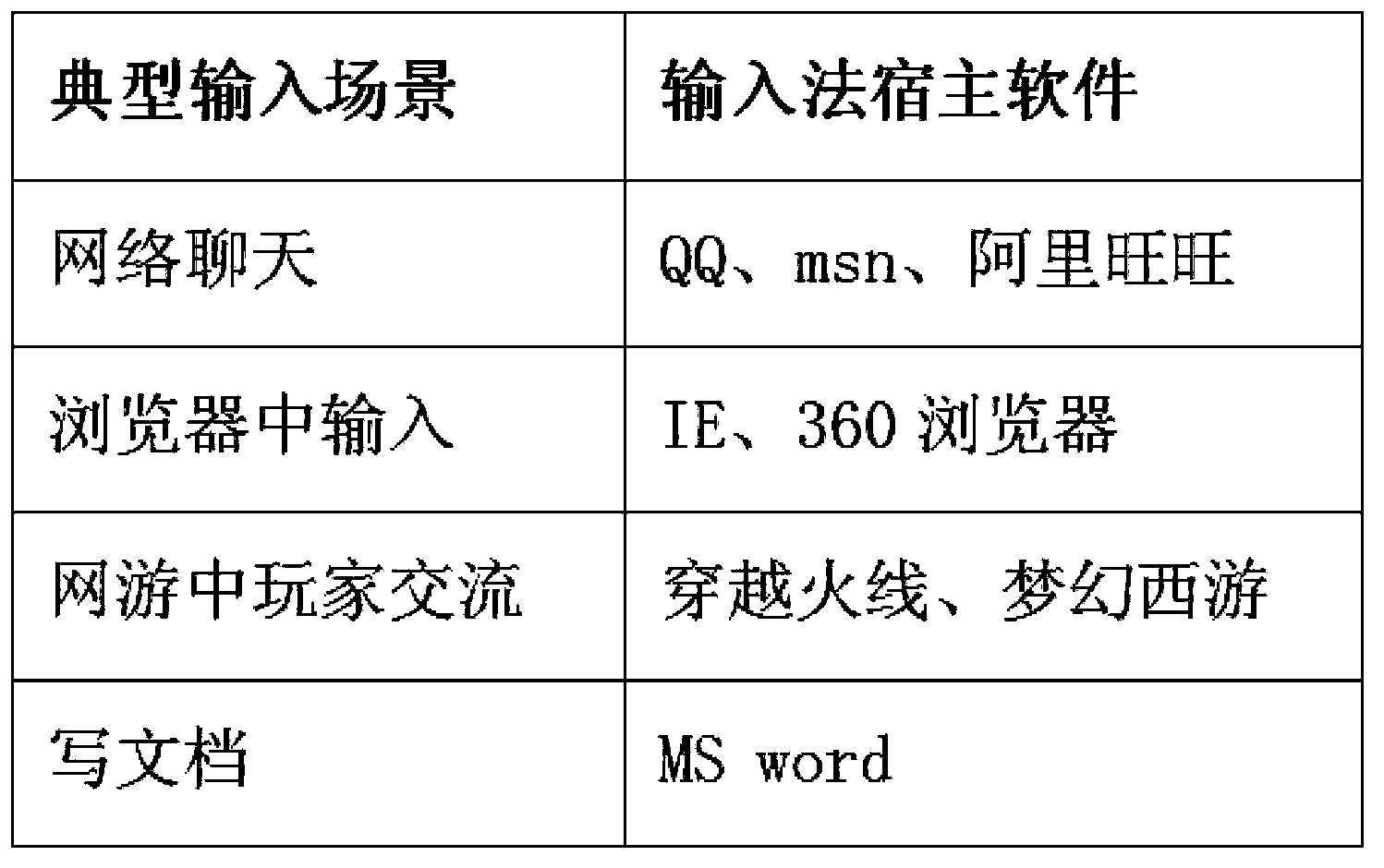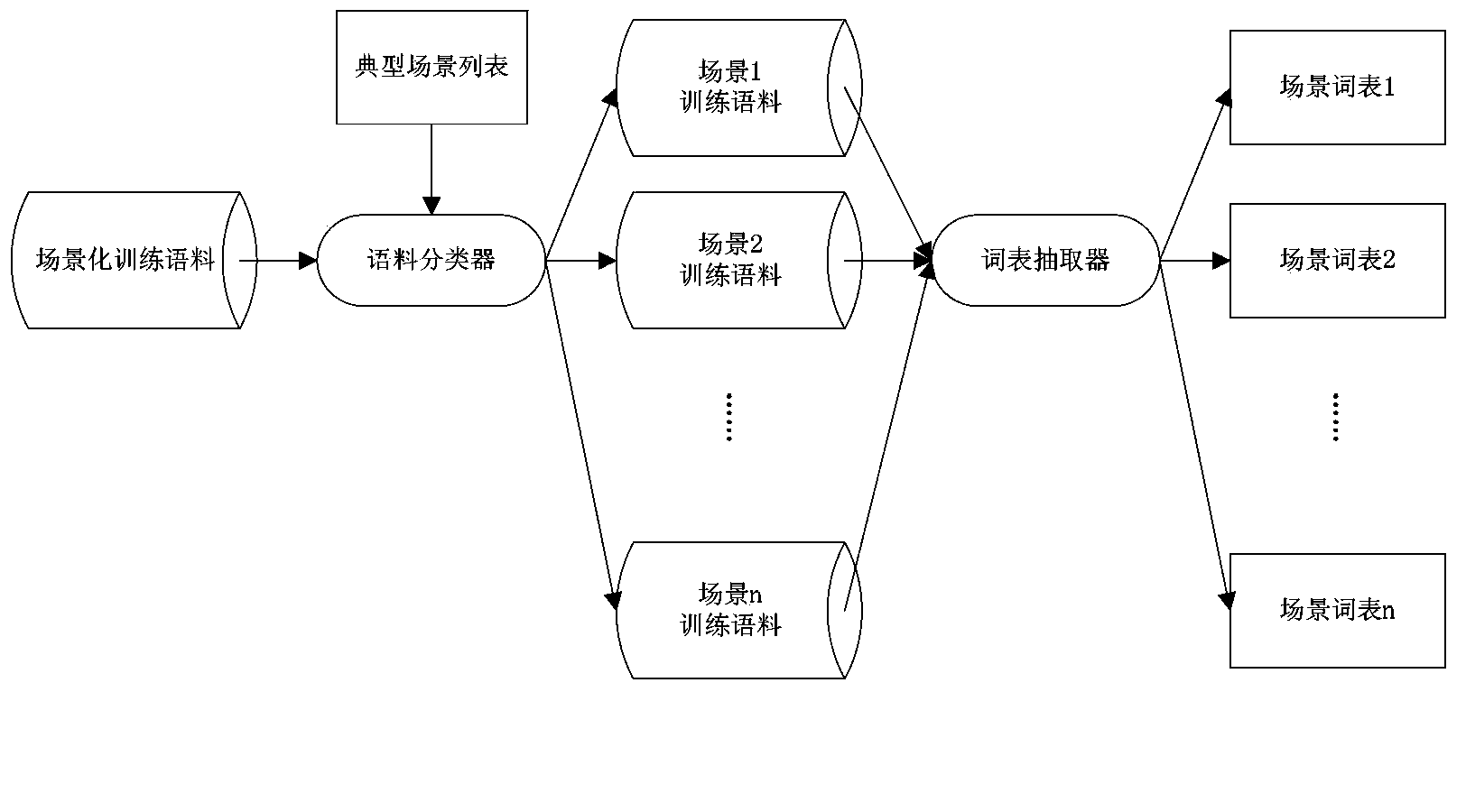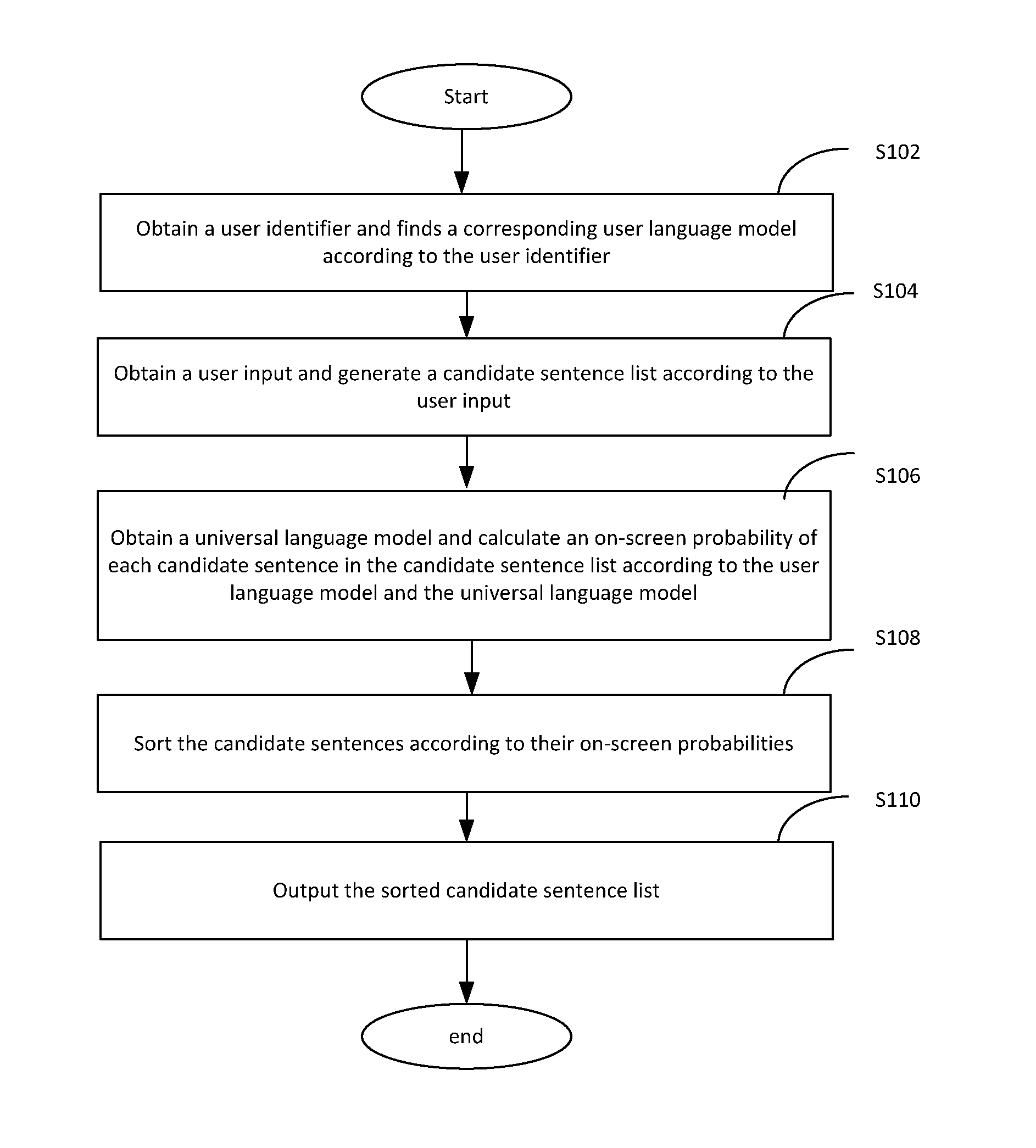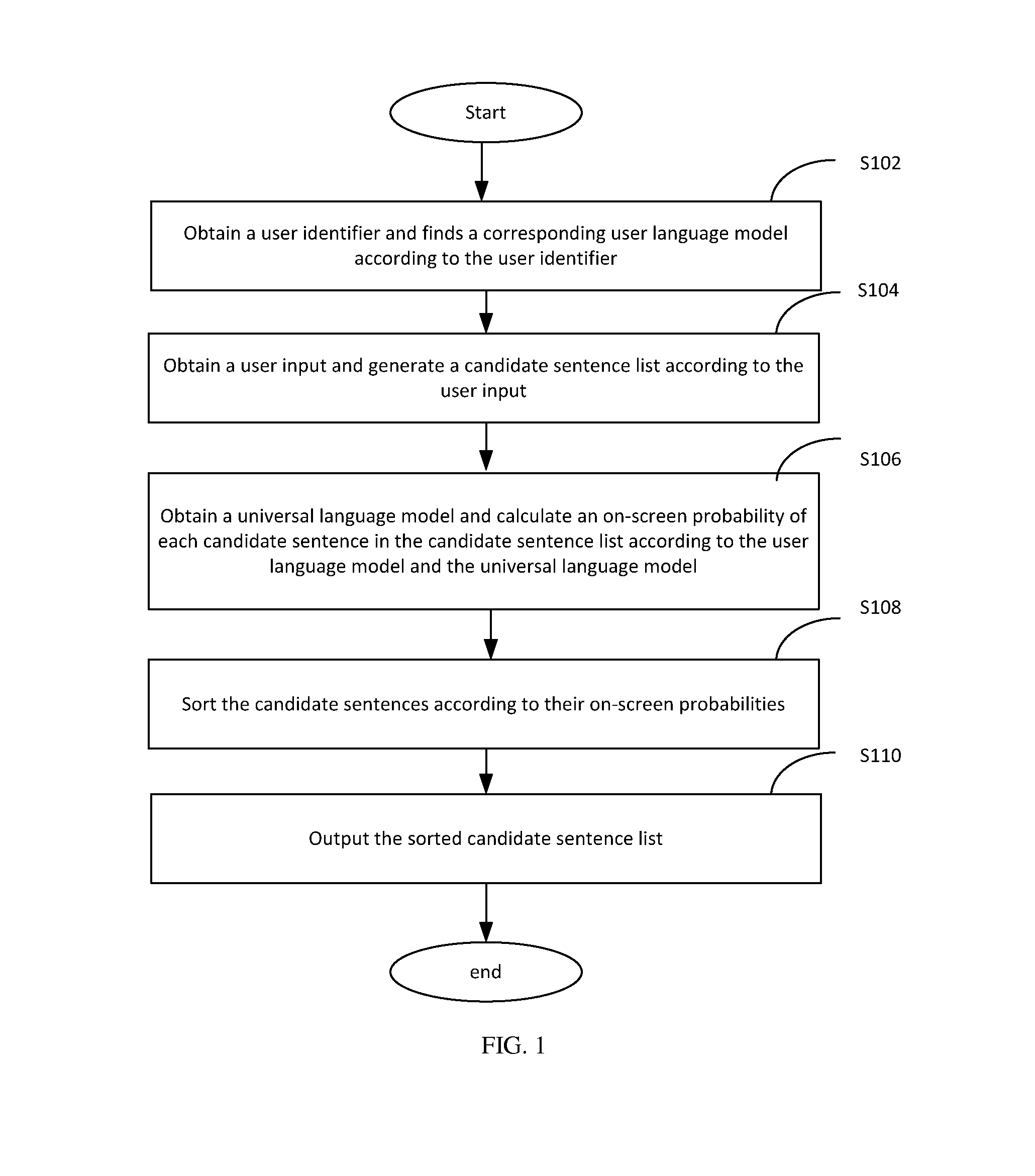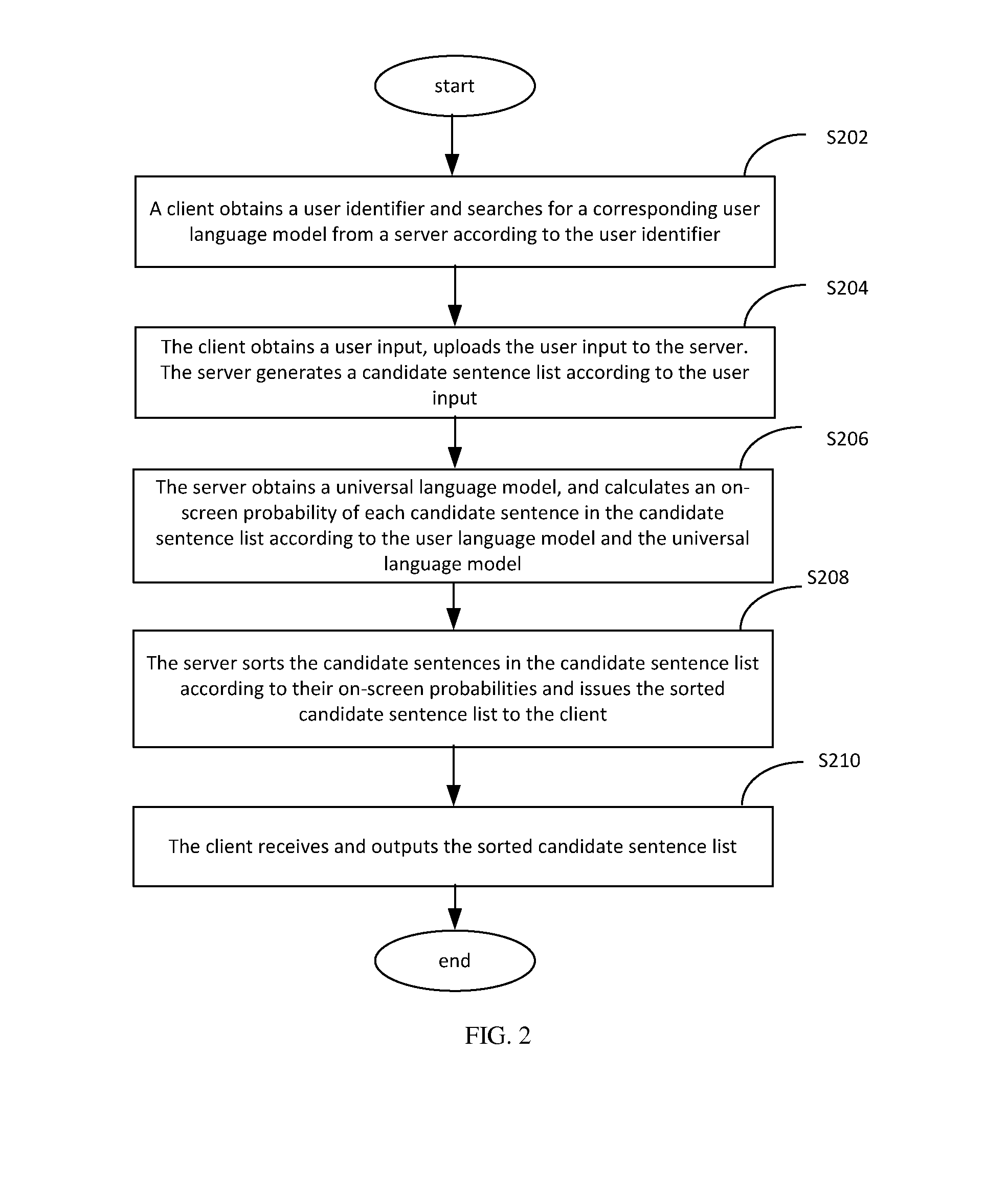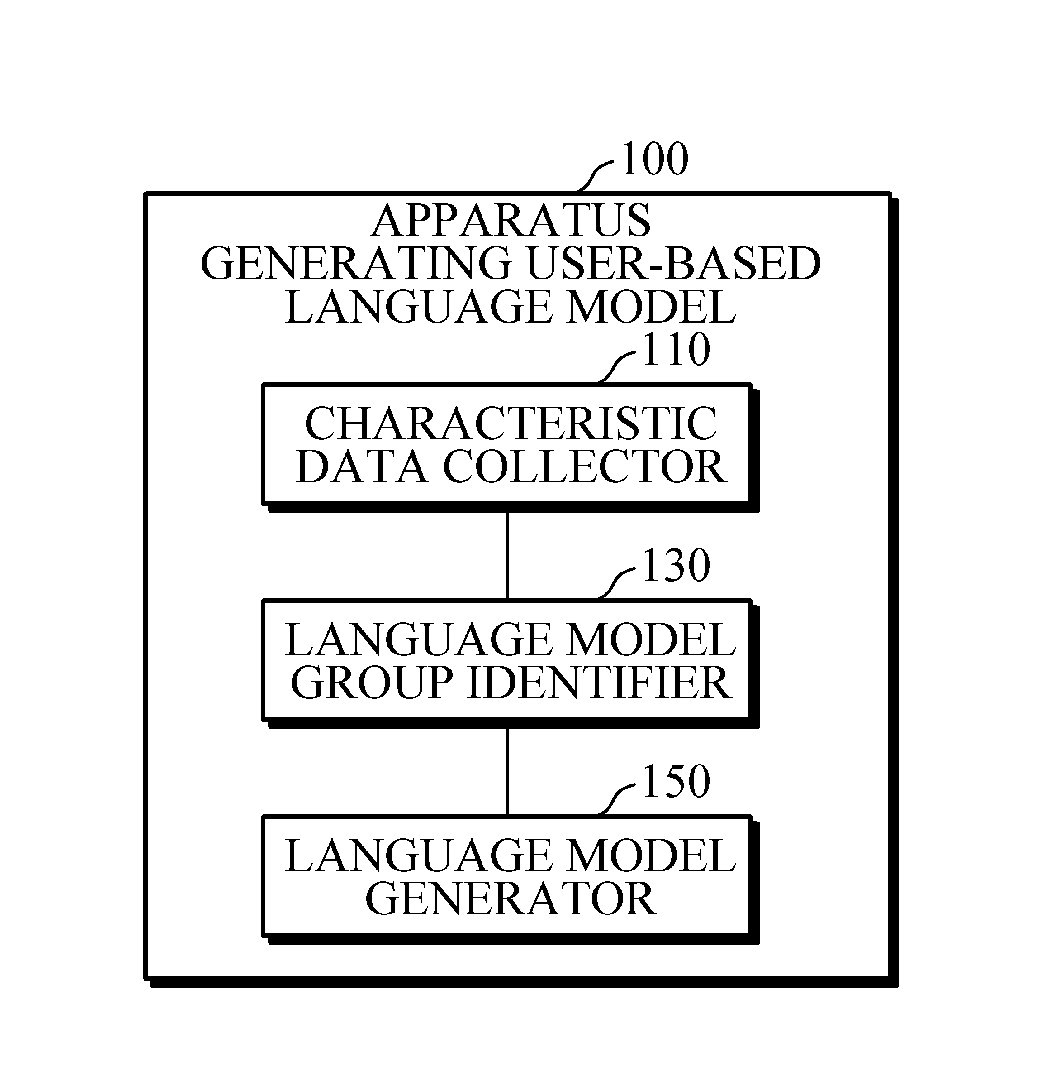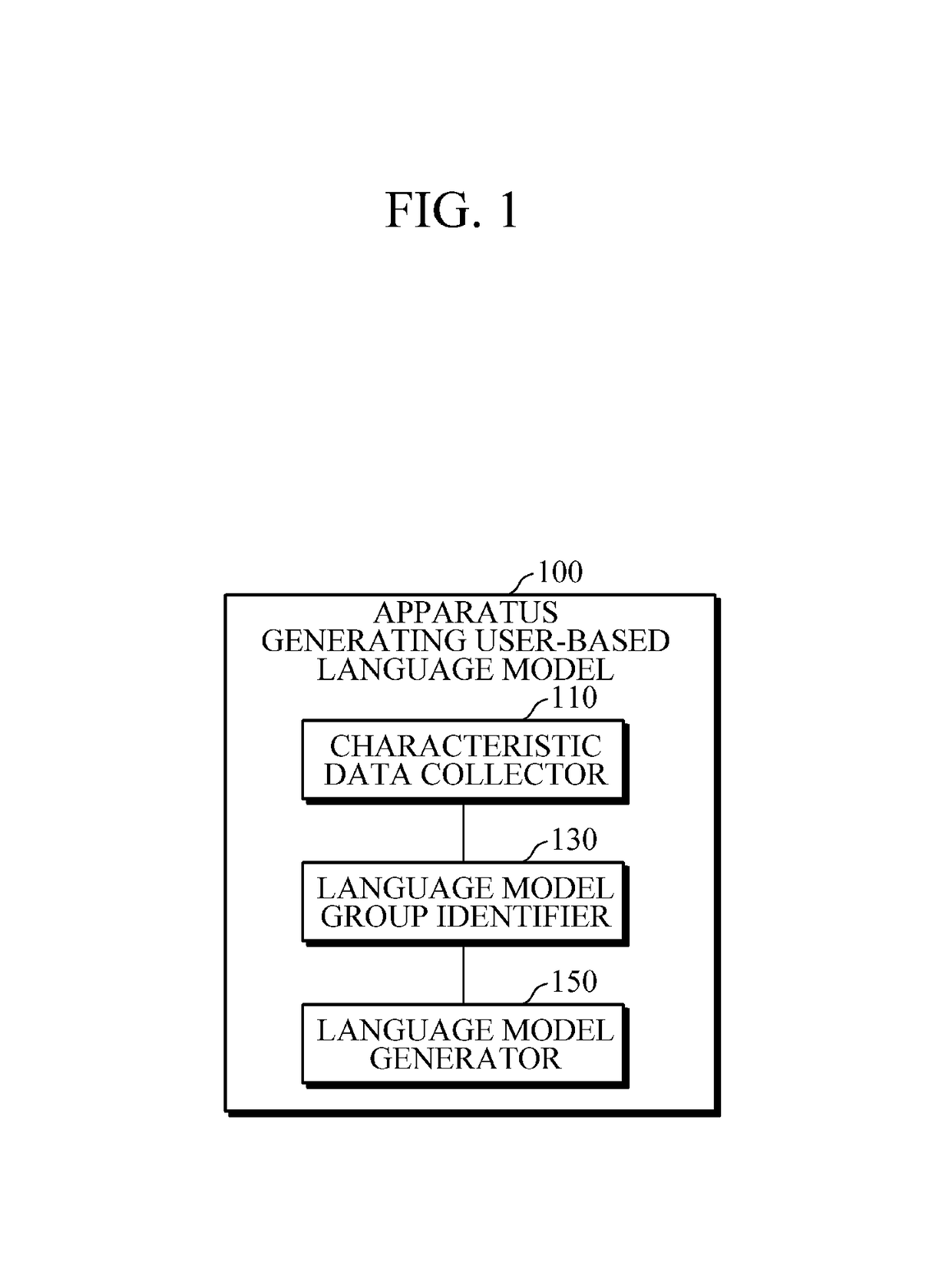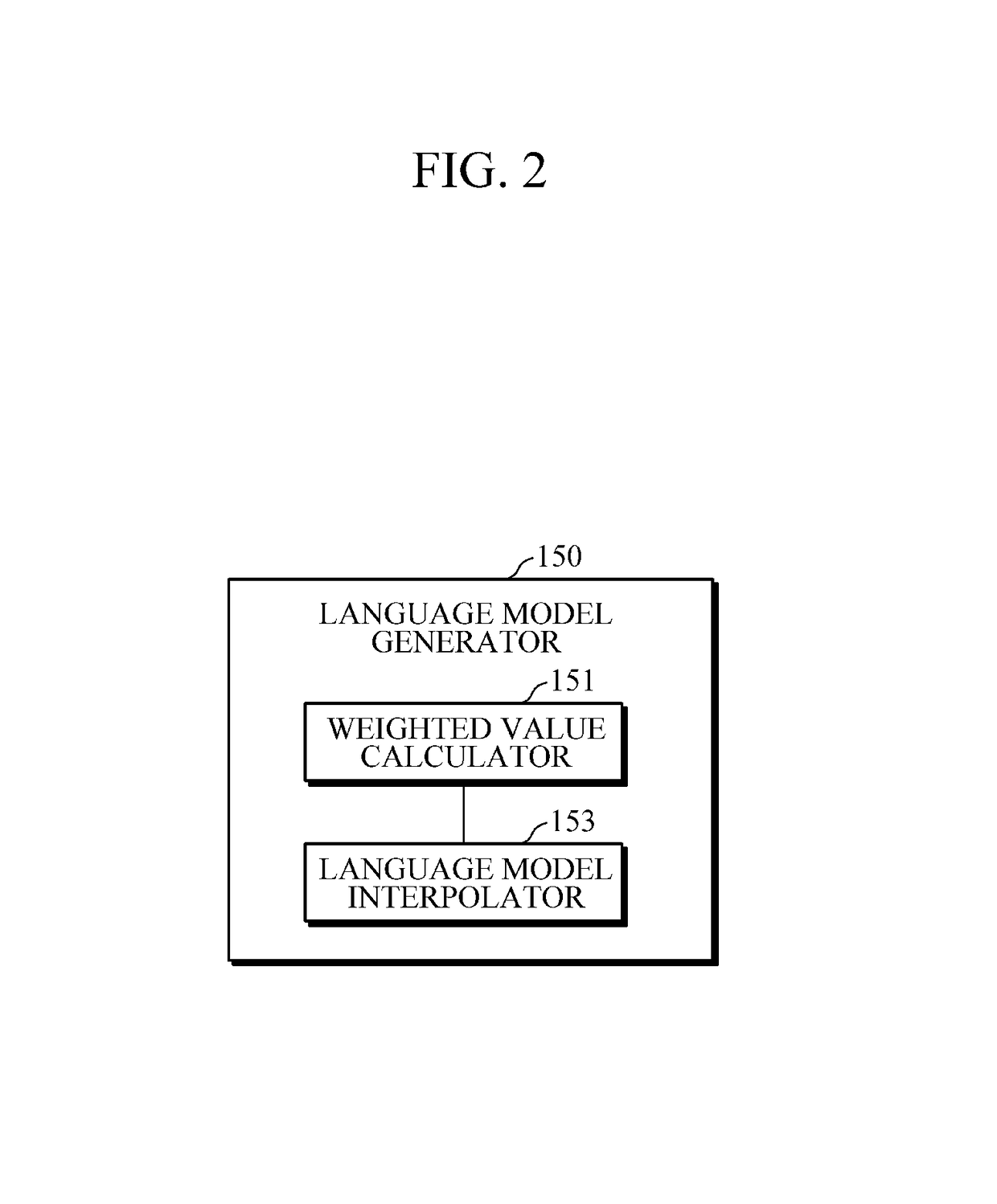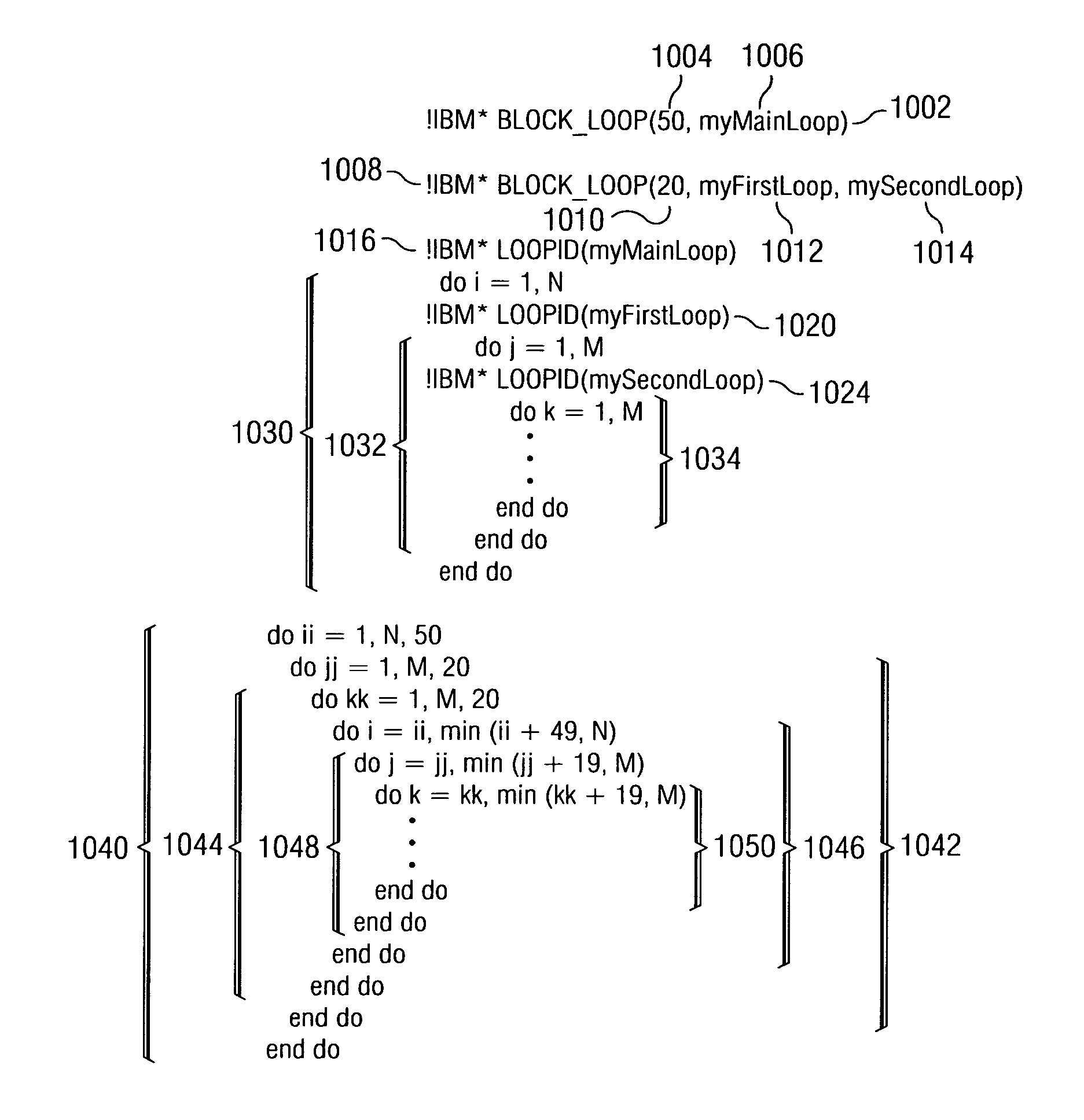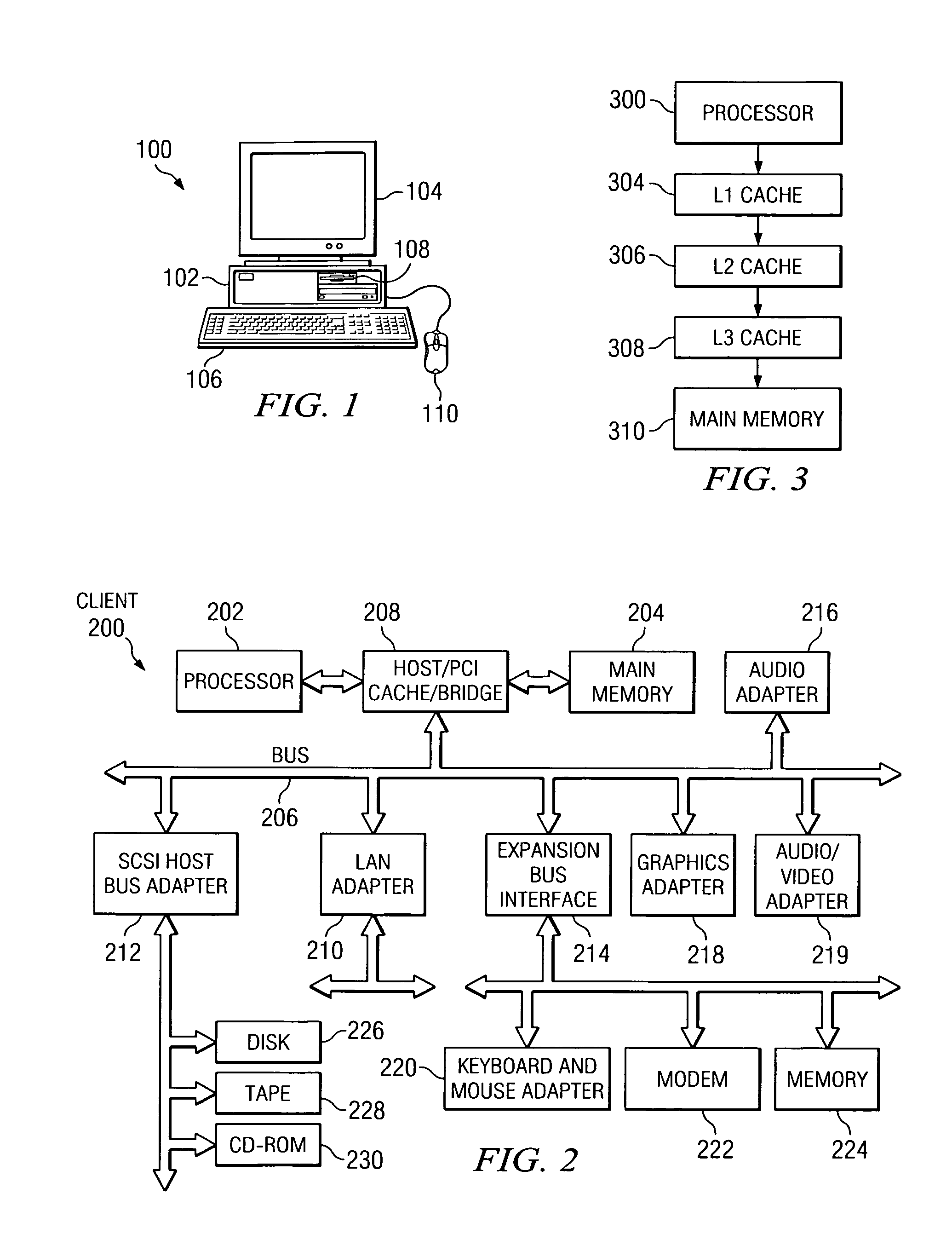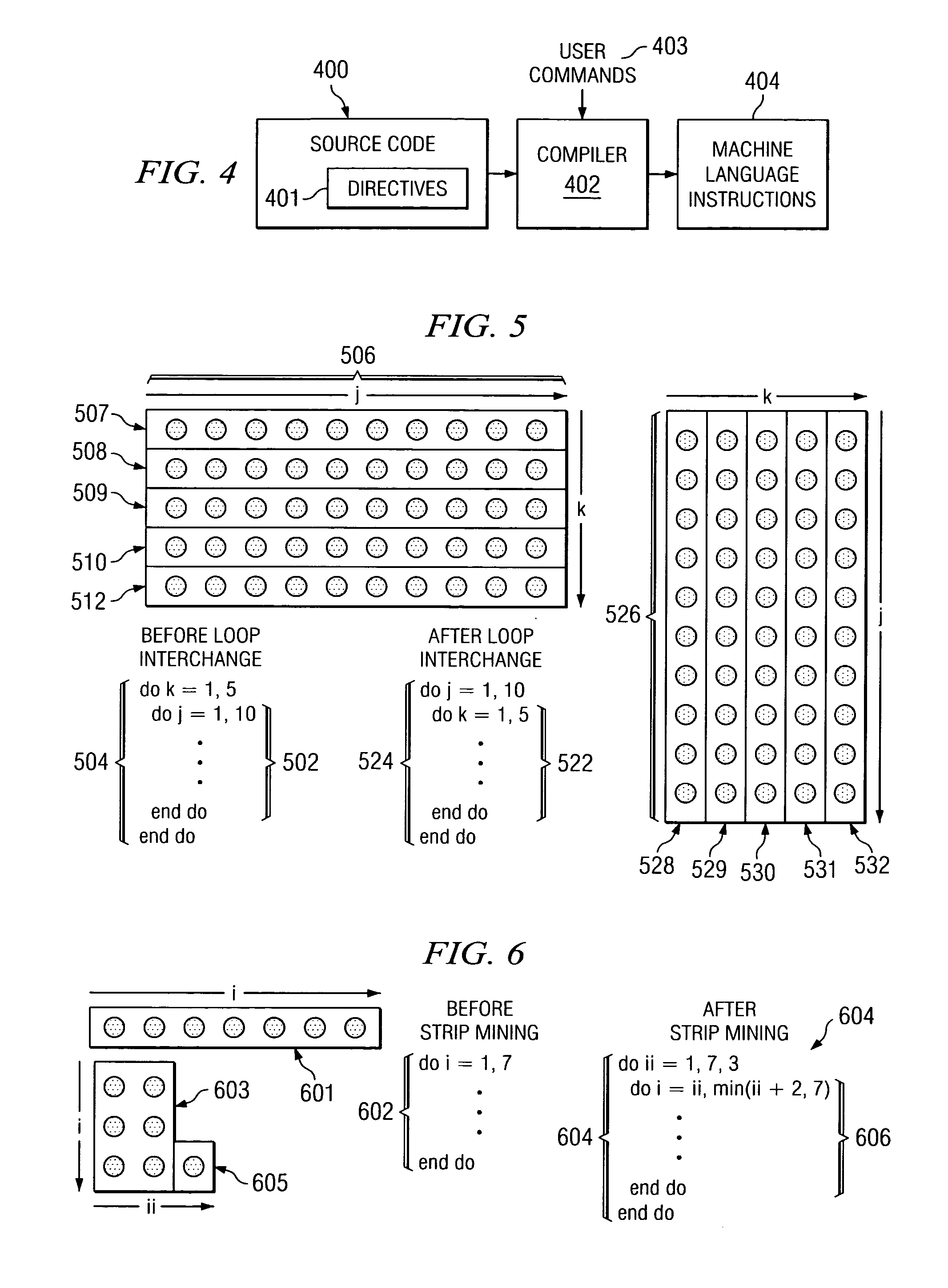Patents
Literature
120 results about "General-purpose language" patented technology
Efficacy Topic
Property
Owner
Technical Advancement
Application Domain
Technology Topic
Technology Field Word
Patent Country/Region
Patent Type
Patent Status
Application Year
Inventor
A general-purpose language is a computer language that is broadly applicable across application domains, and lacks specialized features for a particular domain. This is in contrast to a domain-specific language (DSL), which is specialized to a particular application domain. The line is not always sharp, as a language may have specialized features for a particular domain but be applicable more broadly, or conversely may in principle be capable of broad application but in practice used primarily for a specific domain.
Generic virtual personal assistant platform
ActiveUS20130152092A1Natural language translationMultiprogramming arrangementsLanguage understandingA domain
A method for assisting a user with one or more desired tasks is disclosed. For example, an executable, generic language understanding module and an executable, generic task reasoning module are provided for execution in the computer processing system. A set of run-time specifications is provided to the generic language understanding module and the generic task reasoning module, comprising one or more models specific to a domain. A language input is then received from a user, an intention of the user is determined with respect to one or more desired tasks, and the user is assisted with the one or more desired tasks, in accordance with the intention of the user.
Owner:SRI INTERNATIONAL
Generic virtual personal assistant platform
ActiveUS9082402B2Natural language translationMultiprogramming arrangementsLanguage understandingA domain
A method for assisting a user with one or more desired tasks is disclosed. For example, an executable, generic language understanding module and an executable, generic task reasoning module are provided for execution in the computer processing system. A set of run-time specifications is provided to the generic language understanding module and the generic task reasoning module, comprising one or more models specific to a domain. A language input is then received from a user, an intention of the user is determined with respect to one or more desired tasks, and the user is assisted with the one or more desired tasks, in accordance with the intention of the user.
Owner:SRI INTERNATIONAL
Universal Language Translator
InactiveUS20130030789A1Natural language translationSpeech recognitionGeneral-purpose languageLoudspeaker
A universal language translator automatically translates a spoken word or phrase between two speakers. The translator can lock onto a speaker and filter out ambient noise so as to be used in noisy environments, and to ensure accuracy of the translation when multiple speakers are present. The translator can also synthesize a speaker's voice into the dialect of the other speaker such that each speaker sounds like they're speaking the language of the other. A dialect detector could automatically select target dialects either by auto-sensing the dialect by listening to aspects of each speaker's phrases, or based upon the location of the device.
Owner:DALCE REGINALD
Generating Topic-Specific Language Models
ActiveUS20110004462A1Improve accuracyEliminate needDigital data processing detailsSpeech recognitionSpeech identificationAudio signal flow
Speech recognition may be improved by generating and using a topic specific language model. A topic specific language model may be created by performing an initial pass on an audio signal using a generic or basis language model. A speech recognition device may then determine topics relating to the audio signal based on the words identified in the initial pass and retrieve a corpus of text relating to those topics. Using the retrieved corpus of text, the speech recognition device may create a topic specific language model. In one example, the speech recognition device may adapt or otherwise modify the generic language model based on the retrieved corpus of text.
Owner:TIVO CORP
Mode supporting multiple language input for entering text
InactiveUS8463592B2Natural language translationSpecial data processing applicationsComputerized systemInput language
Strings entered into a computer system are converted to a common language. The process of converting strings to a common language comprises determining a user-selected target language, associating a user-selected primary input language with the target language and associating a user-selected secondary input language with the target language. The process further comprises obtaining a string of at least one character, converting the obtained string from the primary input language to the target language if the obtained string corresponds to a valid string in the primary input language and converting the obtained string from the secondary input language to the target language if the obtained string corresponds to a valid string in the secondary input language and is not a valid string in the primary input language.
Owner:INT BUSINESS MASCH CORP
Self-contained, on-board, CAN-to-fieldbus converter and method of using the same
A method of communicating a message between an automotive device of an automotive control area network and a non-automotive, industrial device of a non-automotive, fieldbus network includes receiving a message of a source format from one of the automotive device of the automotive control area network and the non-automotive, industrial device of the non-automotive, fieldbus network; translating the message of the source format to a common language format; processing the message of a common language format via a set of stored, configurable rules; translating the processed message of a common language format to a destination message format; and delivering the message in the appropriate destination format to one of the automotive device and the non-automotive, industrial device.
Owner:SHEPPARD MULLIN RICHTER & HAMPTON
Management of speech technology modules in an interactive voice response system
InactiveUS7082392B1Automatic exchangesSpeech recognitionInteractive voice response systemSpeech identification
This invention relates to the management, in an interactive voice response system, of a plurality of speech technology modules. In particular it relates to an apparatus and a method for dynamically determining which of a plurality of speech technology modules to use during voice interaction between the system and a user. In prior art IVR systems each speech technology module is configured for a specific application or task. Most speech technology modules have different lexicons for the range of functions but it is the full lexicon which can determine an engine's suitability for a language. For instance, one type of speech recognition engine is preferred for certain languages whereas IBM ViaVoice is a good general all rounder. Choosing one speech recognition module according to application or function alone is not entirely satisfactory and there is a need for improvement. The present solution is to select, for each interaction, one of the speech technology modules from the plurality of the modules to be used by the application according to the environment property of the interaction.
Owner:NUANCE COMM INC
Method and system for computerized searching and matching using emotional preference
ActiveUS20070233622A1Enhancement of search precisionImprove insightsMarket predictionsDigital data information retrievalComputer scienceGeneral-purpose language
A method and system for capturing emotional preference of human subjects, generating machine-readable emotional code and using the code to optimize computerized searching and matching operations between entities is disclosed. The entity can be a human user, a product, or a service. The emotional code can thus be a universal language expressing human emotion that communicates among entities. After understanding the sending parties' emotional profile, the receiving party can adapt its operation to achieve more optimum results.
Owner:THE NIELSEN CO (US) LLC
Dialect-specific acoustic language modeling and speech recognition
InactiveUS8583432B1Speech recognitionSpecial data processing applicationsAutomatic speechGeneral-purpose language
Methods and systems for automatic speech recognition and methods and systems for training acoustic language models are disclosed. One system for automatic speech recognition includes a dialect recognition unit and a controller. The dialect recognition unit is configured to analyze acoustic input data to identify portions of the acoustic input data that conform to a general language and to identify portions of the acoustic input data that conform to at least one dialect of the general language. In addition, the controller is configured to apply a general language model and at least one dialect language model to the input data to perform speech recognition by dynamically selecting between the models in accordance with each of the identified portions.
Owner:IBM CORP
Method for static security enforcement of a DSL
ActiveUS20170249130A1Improve protectionImprove securityDigital data protectionReverse engineeringSecurity policyProgram behavior
An example system and method for securing computer code of a dynamic Domain Specific Language (DSL) that leverages a General Purpose Language (GPL). An example method includes enhancing compile-time security enforcement functionality for computer code written using the DSL, in part by using a compiler to perform static analysis on the DSL computer code. The static analysis includes referencing a security policy defining one or more unacceptable program behaviors; and indicating when execution of the computer code would result in performance of the one or more unacceptable program behaviors based on results of the static analysis.
Owner:ORACLE INT CORP
Bus abstraction
InactiveUS20060168269A1Easy to controlPrivacy can be assuredInterprogram communicationMultiple digital computer combinationsSemanticsEmbedded system
Systems and methodologies that facilitate a unification of bus protocols and networks via an abstraction system that can bind device models and higher level protocols to multiple bus implementations. Such abstraction system can provide a common language among buses for message transfers according to priority—e.g., semantics provided for a messaging transport component for control messages, a streaming component for high priority, and a bulk transfer component for low priority. In addition, a discovery component can identify devices on a bus or network, with an association component for determining a trust established therebetween and authenticating the devices or services.
Owner:MICROSOFT TECH LICENSING LLC
General Dictionary for All Languages
InactiveUS20140180670A1Natural language translationCharacter and pattern recognitionGeolocationOptical character recognition
Disclosed are implementations of methods and systems for displaying definitions and translations of words by searching for a translation simultaneously in various languages according to a query in a general language dictionary. The invention removes the need to specify a source language for the word or word combination when translated into a target language. The target language may be preset. Translation is possible for word combinations in multiple sources languages. Source words may be entered manually or captured by an imaging component of an electronic device. When captured, a word combination is selected, and subjected to optical character recognition (OCR) and translation. Source language and OCR language may be suggested via geolocation of the electronic device.
Owner:ABBYY PRODUCTION LLC
Name entity extraction using language models
ActiveUS7299180B2Shorten the timeSave expenseNatural language data processingSpeech recognitionNatural language understandingAlgorithm
A name entity extraction technique using language models is provided. A general language model is provided for the natural language understanding domain. A language model is also provided for each name entity. The name entity language models are added to the general language model. Each language model is considered a state. Probabilities are applied for each transition within a state and between each state. For each word in an utterance, the name extraction process determines a best current state and a best previous state. When the end of the utterance is reached, the process traces back to find the best path. Each series of words in a state other than the general language model state is identified as a name entity. A technique is provided to iteratively extract names and retrain the general language model until the probabilities do not change. The name entity extraction technique of the present invention may also use a general language model with uniform probabilities to save the time and expense of training the general language model.
Owner:NUANCE COMM INC
Mode supporting multiple language input for entering text
InactiveUS20120029902A1Natural language translationSpecial data processing applicationsComputerized systemInput language
Strings entered into a computer system are converted to a common language. The process of converting strings to a common language comprises determining a user-selected target language, associating a user-selected primary input language with the target language and associating a user-selected secondary input language with the target language. The process further comprises obtaining a string of at least one character, converting the obtained string from the primary input language to the target language if the obtained string corresponds to a valid string in the primary input language and converting the obtained string from the secondary input language to the target language if the obtained string corresponds to a valid string in the secondary input language and is not a valid string in the primary input language.
Owner:IBM CORP
Mixed language simulator
InactiveUS7035781B1Simple interfaceAnalogue computers for electric apparatusDetecting faulty computer hardwareData accessApplication software
An HDL simulator having an automated interface to compiled or interpreted application code written in a general purpose language. The interface enables the HDL code to have a direct data access to and from the application code. The simulator automatically maps and converts HDL data types to and from programming language data types, such as the arguments of routine calls or direct data accesses. Further, the simulator provides a programming language calling mechanism and automatically does data type mapping of arguments, which enables the HDL to call application code routines compiled with a standard compiler, and enables such routines to call functions in the HDL. The simulator automatically generates wrappers for the interface which automatically map data types for direct data access when the application code is compiled, and can output messages upon the occurrence of calls or returns. The automatically generated wrappers also provide automatic threading, which enables compiled application code to call tasks in the HDL.
Owner:SYNOPSYS INC
System and method for efficient evaluation of a query that invokes a table valued function
InactiveUS20050209988A1Performance degradation can be minimizedEfficiently and dynamically extendData processing applicationsDigital data information retrievalExtensibilityRelational database
The present invention describes an efficient and fast framework for implementing table-valued functions (TVF's) in a relational database server. The framework provides desirable extensibility properties and has the ability to minimize performance degradations by integrating tightly with the optimization infrastructure in a query processor. The present invention also enables a managed execution environment (MEE) such as the Common-Language-Runtime (CLR), to efficiently and dynamically extend the logic of the database engine with user-supplied code.
Owner:MICROSOFT TECH LICENSING LLC
Method and apparatus for a generic language interface to apply loop optimization transformations
A generic language interface is provided to apply a number of loop optimization transformations. The language interface includes two new directives. The present invention detects the directives in a computer program, and generates code that has been applied at least one loop transformation based on the directives.
Owner:GOOGLE LLC
Language conversion system
InactiveUS7107206B1Low costNatural language translationSpecial data processing applicationsRewrite ruleGeneral-purpose language
A system is disclosed which allows communication between various kinds of languages. The conversion processing portion (300) rewrites components of the representation in the natural language constructing given natural language representation to universal language elements corresponding thereto in the universal language dictionary (210). The conversion processing portion (300) joins multiple rewritten universal language elements by applying the rewriting rules (220) in accordance with an order in universal language element and creates representation in universal language, which is represented in the binary relation. A reverse-conversion processing portion (350) resolves representation in universal language represented in the binary relation to universal language elements constructing joins therein with reference to the rewriting rules (220) in accordance with rules for representation in the binary relation, which are included in the rules. The reverse-conversion processing portion (350) rewrites the resolved universal language elements to components constructing the natural language representation with reference to the universal language dictionary (120) in order to create representation in natural language.
Owner:UNITED NATIONS
Systems and methods utilizing a workflow definition language
InactiveUS20050022164A1Overcome deficienciesProgramming languages/paradigmsSpecific program execution arrangementsJava syntaxGeneral-purpose language
An easy-to-use workflow language can be created by extending an existing, common language such as Java. The language can be extended by adding those constructs that are missing but desirable. Such desirable constructs can include parallelism, asynchrony, loops over asynchronous events, and flexible handling of XML. Such constructs can allow a user to define a virtual program using the extended Java syntax. For example, XML can be placed inside a Java class that defines the high-level orchestration logic a workflow should follow. That orchestration logic can refer to the Java class to carry out work, such that the logic to handle an incoming message is really in Java. This description is not intended to be a complete description of, or limit the scope of, the invention. Other features, aspects, and objects of the invention can be obtained from a review of the specification, the figures, and the claims.
Owner:BEA SYST INC
Web-based communications addressing system and method
InactiveUS6993574B2Multiple digital computer combinationsData switching networksGeneral-purpose languageWorld Wide Web
A system and method is provided for sending and receiving authorized messages from a sender to a recipient in a network utilizing a Web-based mail server. The Web-based mail server communicates with a user via HTML or another general purpose language. The mail system makes use of a channelized address to send the message from the sender to the recipient. The channelized address comprises a common address portion that indicates the identity of the recipient in the network and a channel identifier portion for verifying that the message is authorized for delivery to the recipient.
Owner:CALLAHAN CELLULAR L L C
Dialect-specific acoustic language modeling and speech recognition
Methods and systems for automatic speech recognition and methods and systems for training acoustic language models are disclosed. In accordance with one automatic speech recognition method, an acoustic input data set is analyzed to identify portions of the input data set that conform to a general language and to identify portions of the input data set that conform to at least one dialect of the general language. In addition, a general language model and at least one dialect language model is applied to the input data set to perform speech recognition by dynamically selecting between the models in accordance with each of the identified portions. Further, speech recognition results obtained in accordance with the application of the models is output.
Owner:IBM CORP
Text input method and system
ActiveCN102902362AImprove accuracyIncrease typing speedSpecial data processing applicationsInput/output processes for data processingTest inputUser input
A text input method includes the steps of acquiring a user identifier, and searching a corresponding user language model according to the user identifier; acquiring user input, and generating a candidate sentence list according to the user input; acquiring a universal language model, and calculating on-screen probabilities of candidate sentences in the candidate sentence list according to the user language model and the universal language model; sorting the candidate sentences in the candidate sentence list according a sequence of the on-screen probabilities; and outputting a list of sorted candidate sentences. By the text input method, accuracy and speed in text input can be increased. In addition, the invention provides a test input system.
Owner:SHENZHEN SHI JI GUANG SU INFORMATION TECH
Screen maker
InactiveUS7124357B1Easy accessImprove distributionData processing applicationsDigital computer detailsText entryThe Internet
A computer program and method for the direct creation of a page having text and image. The program accepts input of text, and the input of an image and directly combines the text and image to a page in an internet common language. The invention also provides a testing method which allows the retrieval of a portion of a previously created master page, provides program code to allow a student to input data in response to the retrieved portion and to directly create an answer page. Program code also allows the master page and the answer page to be retrieved and compared.A system and method for on-line creation, storage and retrieval of books or pages on books having pages with text and related images. The system can also provide for the on-line testing by the retrieval of a portion the pages of a master book and the creation of an answer page, and permit the comparison of the master and answer page.
Owner:ORR JOSEPH K
Cross-platform support for a variety of media types
Systems, methods, and machine-readable media are disclosed to provide cross-platform support for a variety of media types. In one embodiment, a method of providing cross-platform support for a variety of media types can comprise translating content provided by one or more servers from one or more media types to one or more common language messages. Each common language message can be one of a plurality of message types. Each message type can represent a different user-facing service provided by the server. The one or more common language messages can be sent to one or more end devices of one or more different device types. The common language messages can be translated to a format specific to one or more of the end devices based on the device type.
Owner:QWEST
Unmanned air vehicle interoperability agent
ActiveUS20070235584A1Aircraft controlMultiple digital computer combinationsUncrewed vehicleUnmanned air vehicle
A method of coordinating communications between a plurality of Unmanned Air Vehicles (UAVs) operating in connection with differing communication languages. A common language is provided which includes common language commands and common language data objects. Common language commands are communicated from a user to a plurality of UAVs through a UAV Interoperability Agent (UIA), which converts the common language commands to UAV-specific commands which can be understood by the specific UAV. Additionally, UAVs send data in a native platform format to the UIA, which converts the native platform data to common language format for collection and interpretation by the user.
Owner:THE BOEING CO
Systems and methods extending an existing programming language with constructs
ActiveUS7752599B2Programming languages/paradigmsSpecific program execution arrangementsJava syntaxJava classes
An easy-to-use workflow language can be created by extending an existing, common language such as JAVA. The language can be extended by adding those constructs that are missing but desirable. Such desirable constructs can include parallelism, asynchrony, loops over asynchronous events, and flexible handling of XML. Such constructs can allow a user to define a virtual program using the extended JAVA syntax. For example, XML can be placed inside a JAVA class that defines the high-level orchestration logic a workflow should follow. That orchestration logic can refer to the JAVA class to carry out work, such that the logic to handle an incoming message is really in JAVA. This description is not intended to be a complete description of, or limit the scope of, the invention. Other features, aspects, and objects of the invention can be obtained from a review of the specification, the figures, and the claims.
Owner:ORACLE INT CORP
Method and device for dynamically loading language model based on user input scene
ActiveCN103577386AEasy to handleNatural language data processingSpecial data processing applicationsUser inputAlgorithm
The invention relates to a method and a device for dynamically loading a language model based on a user input scene. The method comprises the following steps: judging a current user input scene; selecting a corresponding scene language model according to the user input scene; fusing the scene language model with a universal language model into a hybrid language model; loading the hybrid language model to process the user input, wherein the scene language model and the universal language model are obtained through training. The user input scene is dynamically judged in a user input process by training the scene language model; the user input is treated together by loading the corresponding scene language model and the universal language model; human-computer interaction software is improved, particularly the processing capacity of input method software on user input requirements under a typical scene is improved.
Owner:TENCENT TECH (SHENZHEN) CO LTD
Text inputting method, apparatus and system
ActiveUS20140136970A1Increase typing speedImprove accuracyNatural language translationSpecial data processing applicationsText entryUser input
A text inputting method includes: obtaining a user identifier, finding a user language module corresponding to the user identifier according to the user identifier; obtaining a user input, generating a candidate sentence list according to the user input; obtaining a universal language model, calculating an on-screen probability of each candidate sentence in the candidate sentence list according to the user language model and the universal language model; sorting candidate sentences in the candidate sentence list according to their on-screen probabilities; and outputting the sorted candidate sentence list. The method increases a text inputting accuracy ratio and an inputting speed. In addition, a text inputting system and an apparatus are also provided.
Owner:SHENZHEN SHI JI GUANG SU INFORMATION TECH
Speech recognition apparatus and method
An apparatus includes a language model group identifier configured to identify a language model group based on determined characteristic data of a user, and a language model generator configured to generate a user-based language model by interpolating a general language model for speech recognition based on the identified language model group.
Owner:SAMSUNG ELECTRONICS CO LTD
Method and apparatus for a generic language interface to apply loop optimization transformations
A generic language interface is provided to apply a number of loop optimization transformations. The language interface includes two new directives. The present invention detects the directives in a computer program, and generates code that has been applied at least one loop transformation based on the directives.
Owner:GOOGLE LLC
Features
- R&D
- Intellectual Property
- Life Sciences
- Materials
- Tech Scout
Why Patsnap Eureka
- Unparalleled Data Quality
- Higher Quality Content
- 60% Fewer Hallucinations
Social media
Patsnap Eureka Blog
Learn More Browse by: Latest US Patents, China's latest patents, Technical Efficacy Thesaurus, Application Domain, Technology Topic, Popular Technical Reports.
© 2025 PatSnap. All rights reserved.Legal|Privacy policy|Modern Slavery Act Transparency Statement|Sitemap|About US| Contact US: help@patsnap.com
